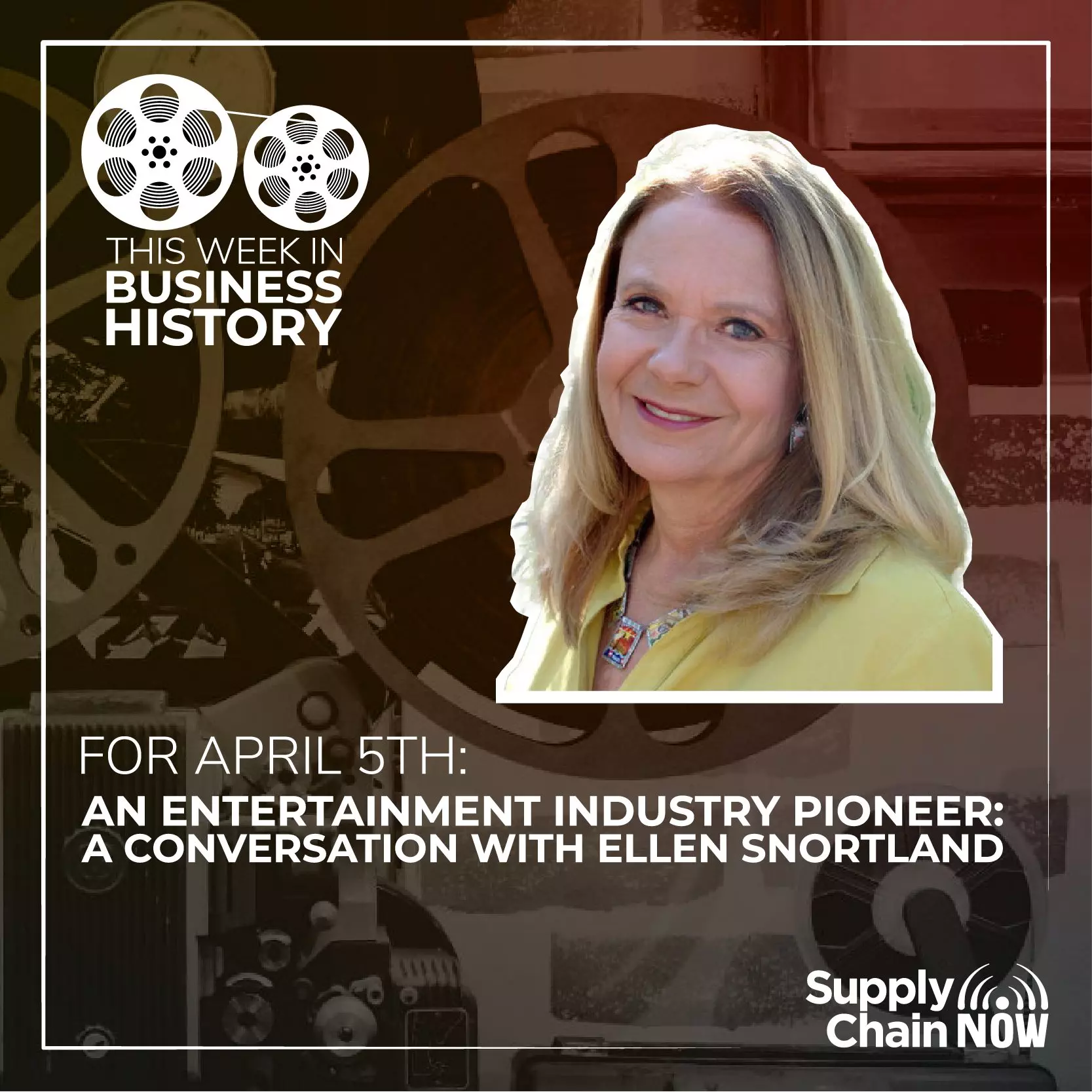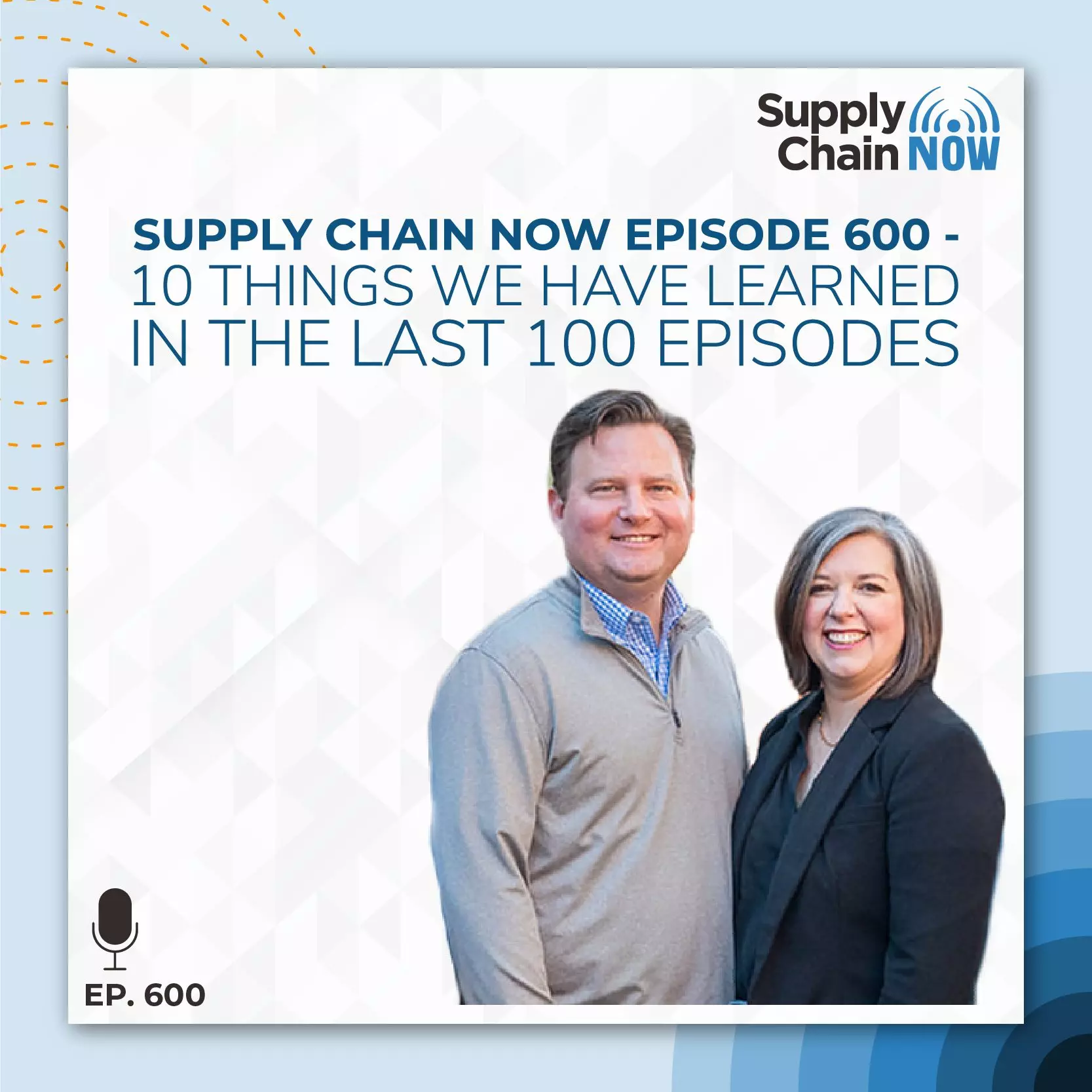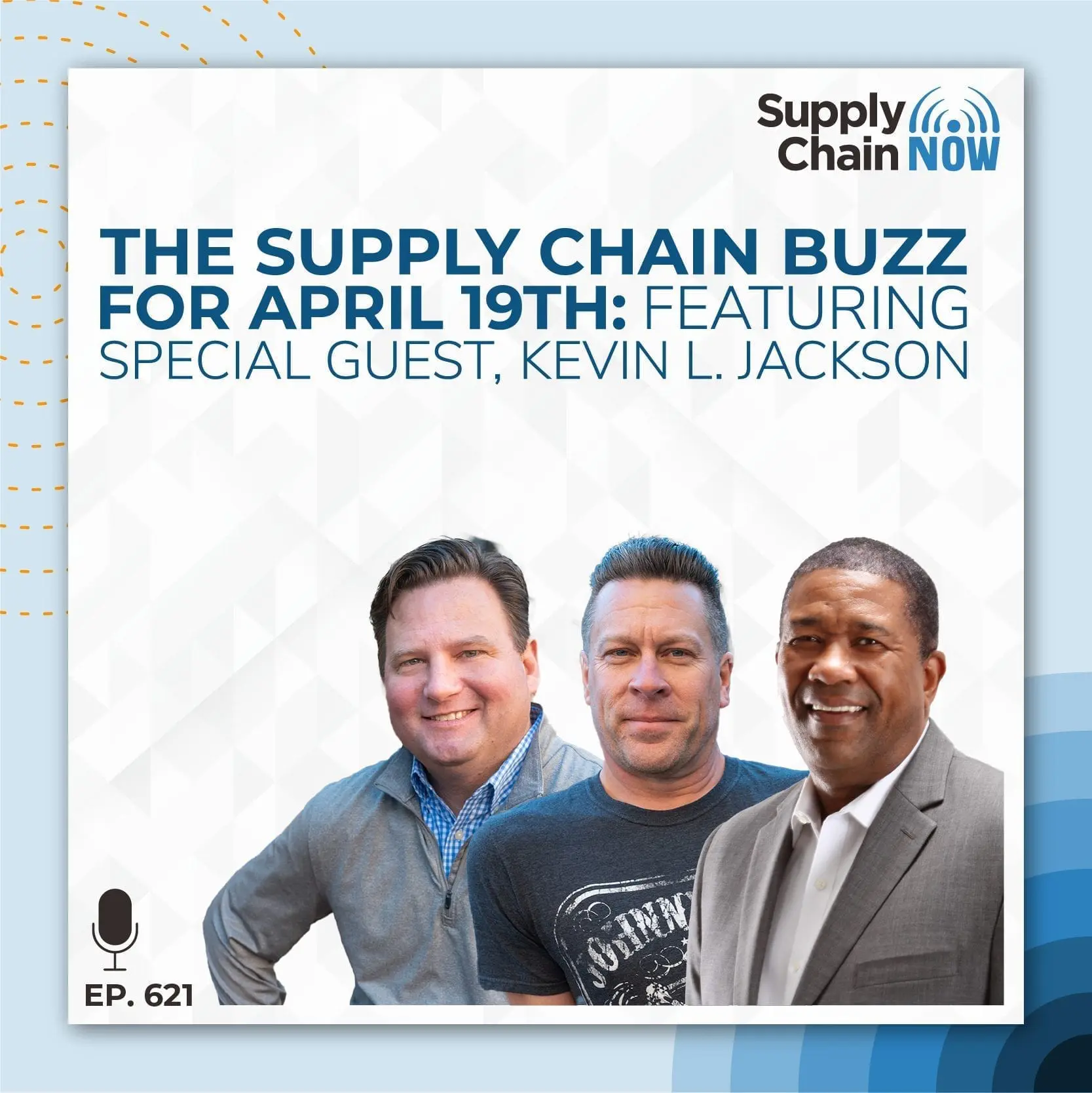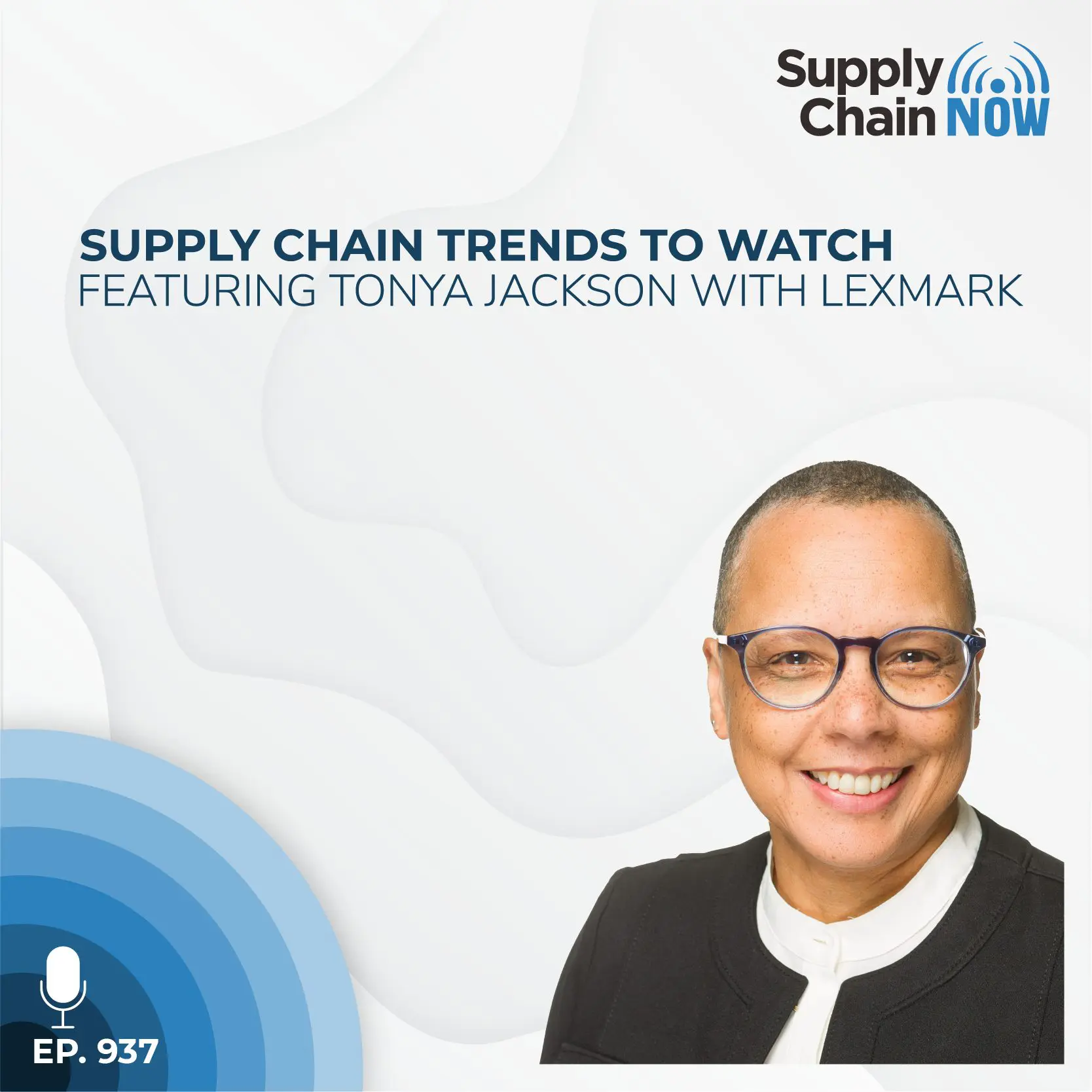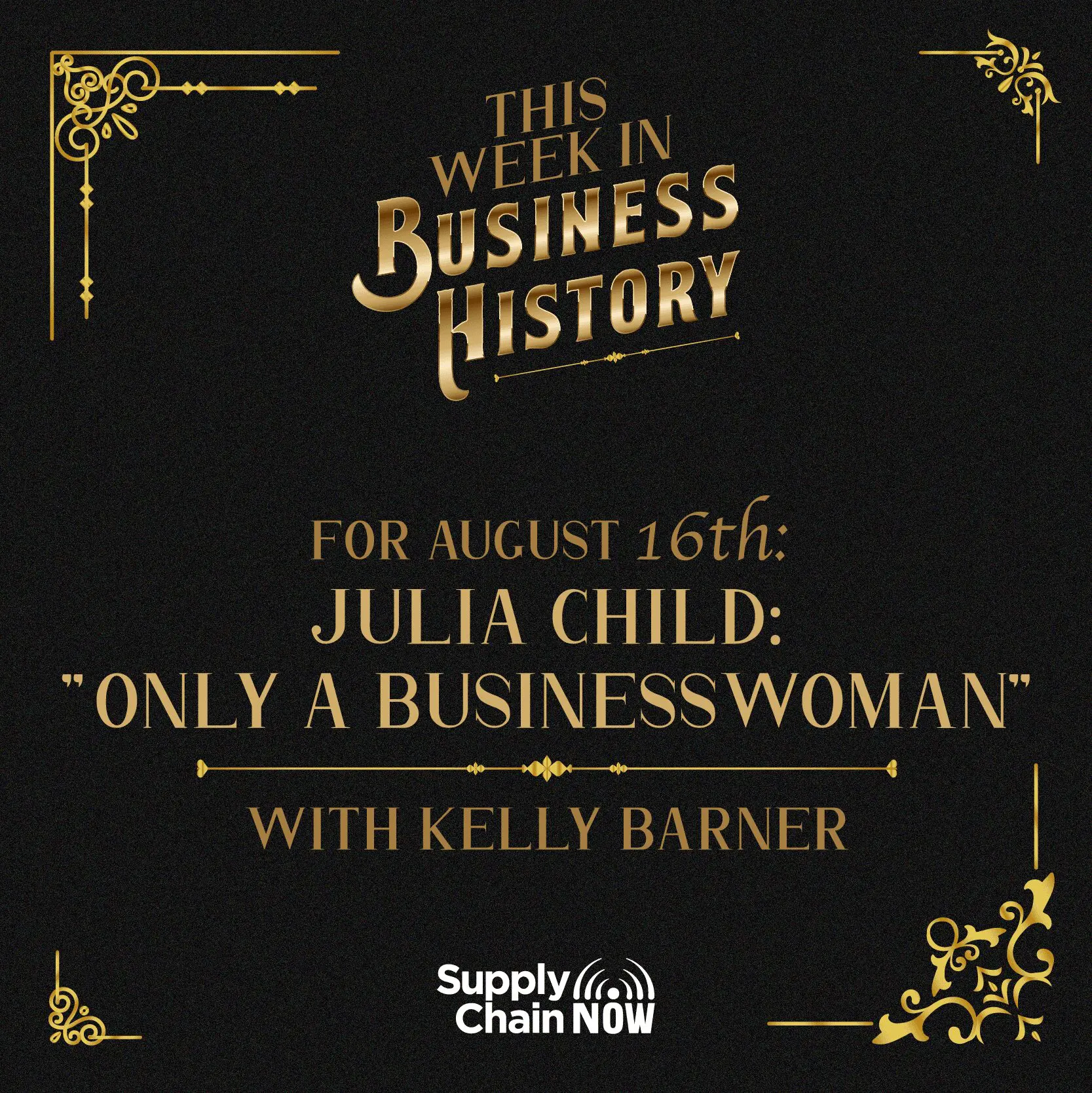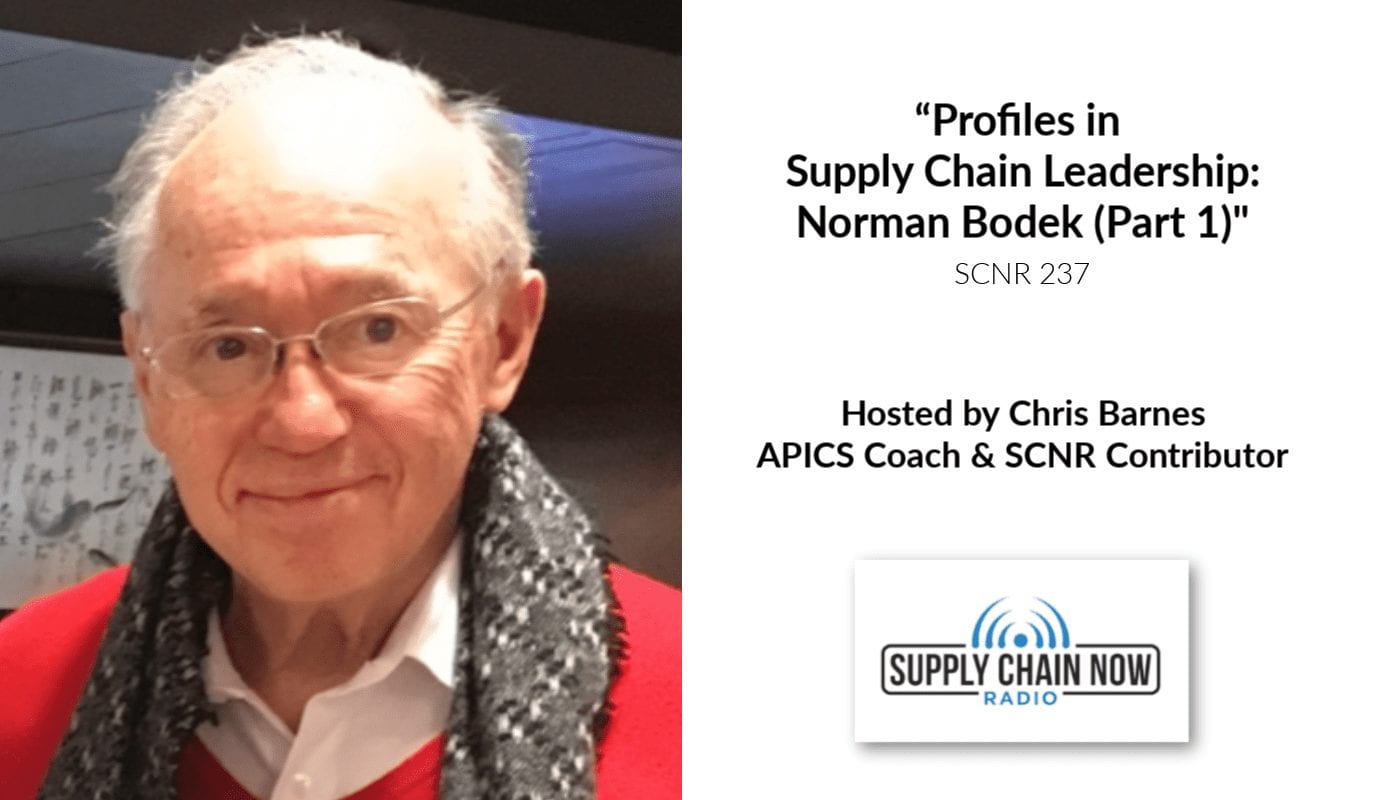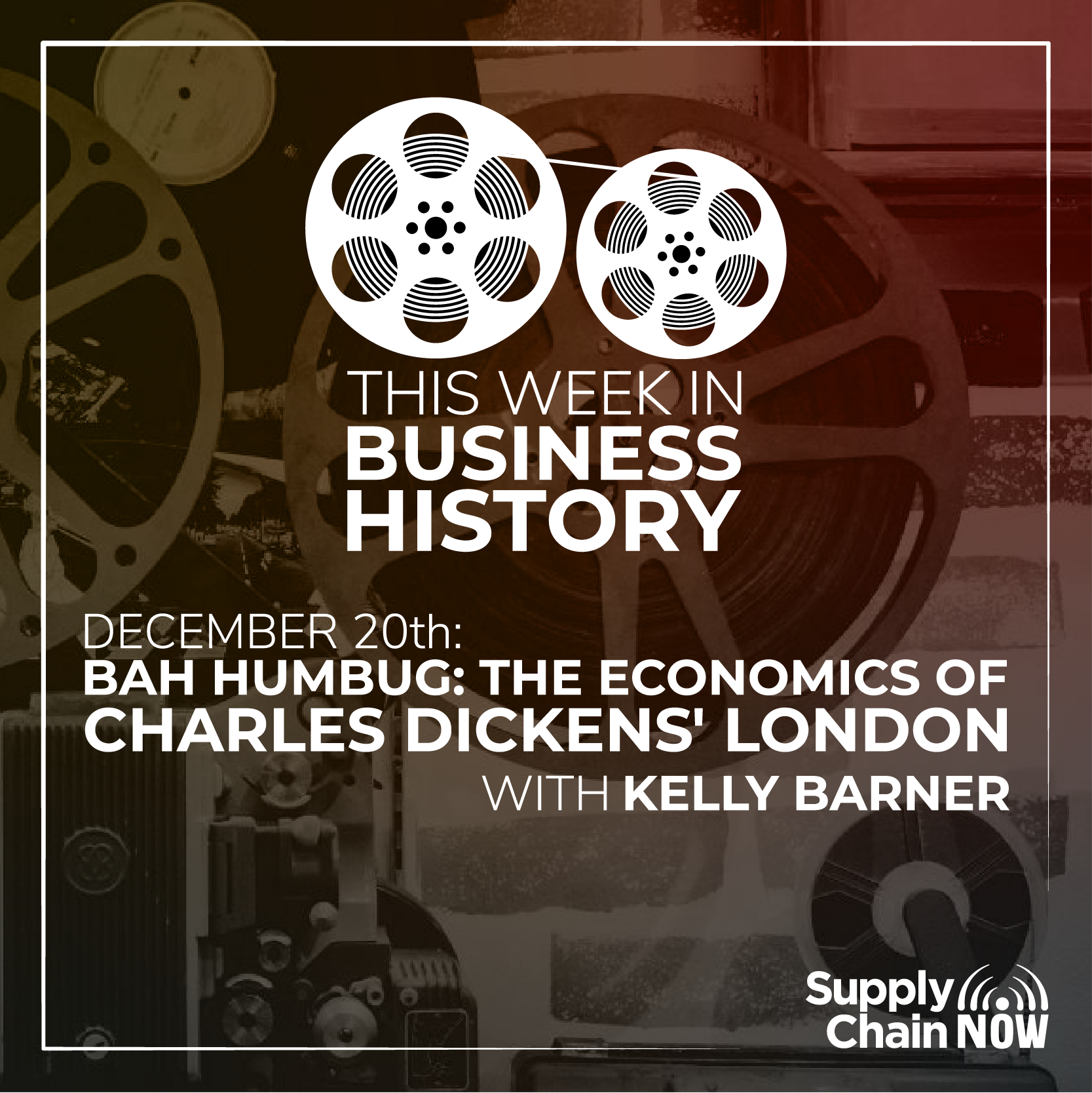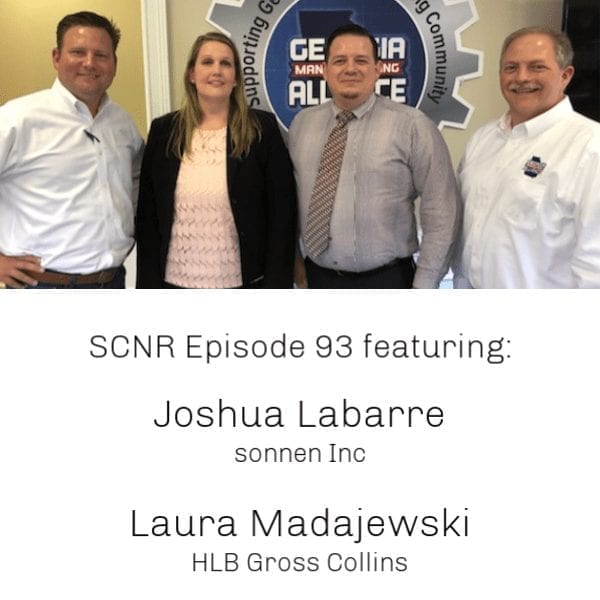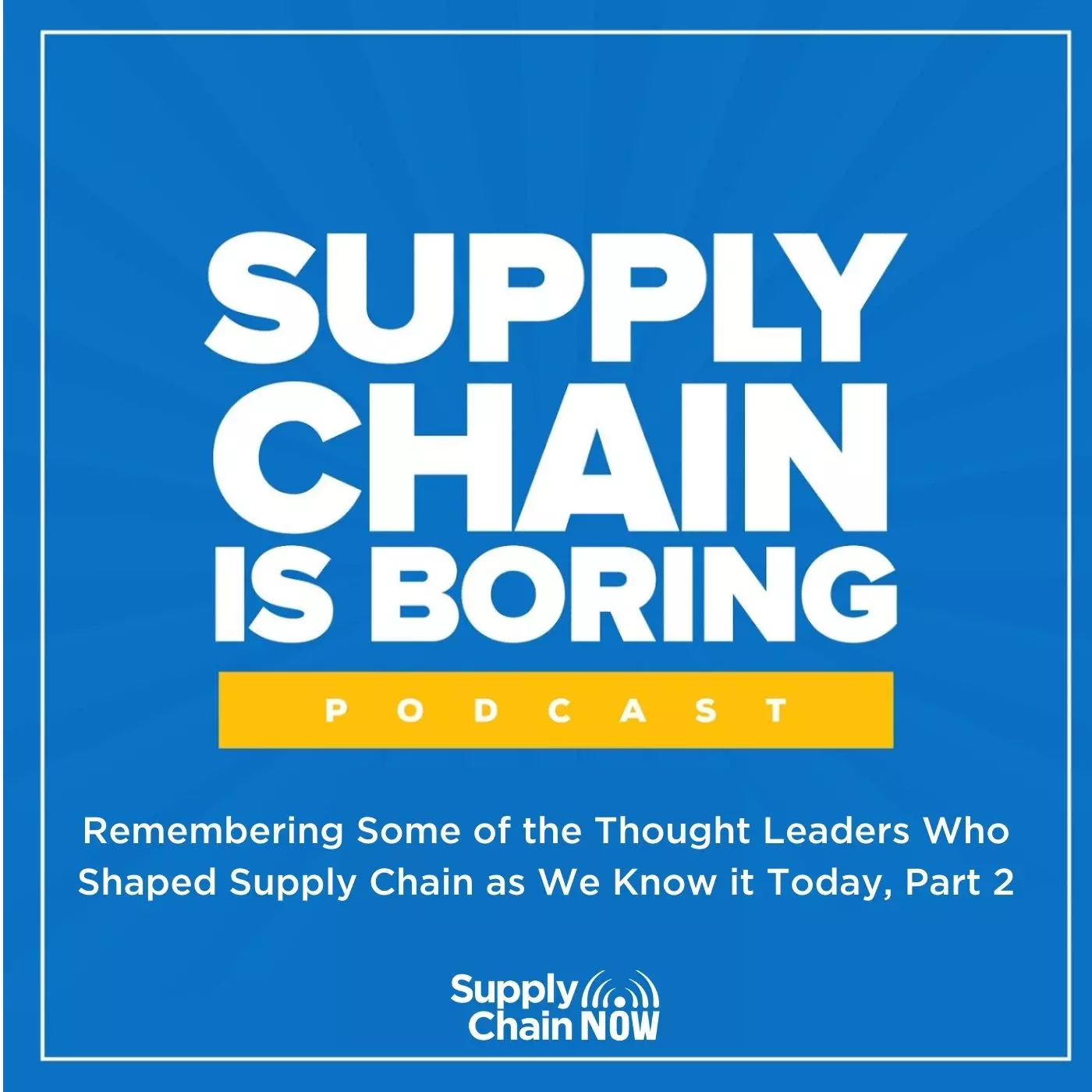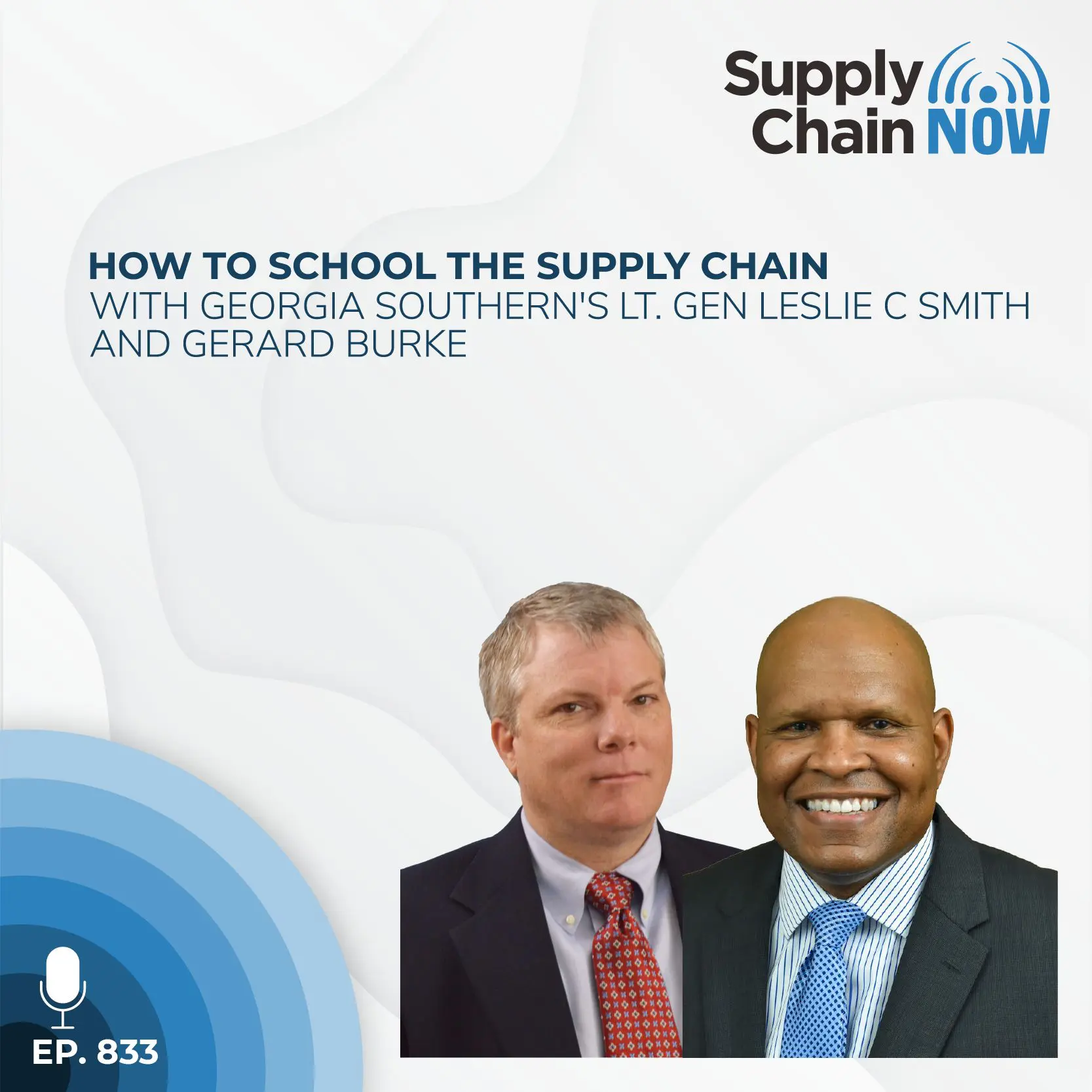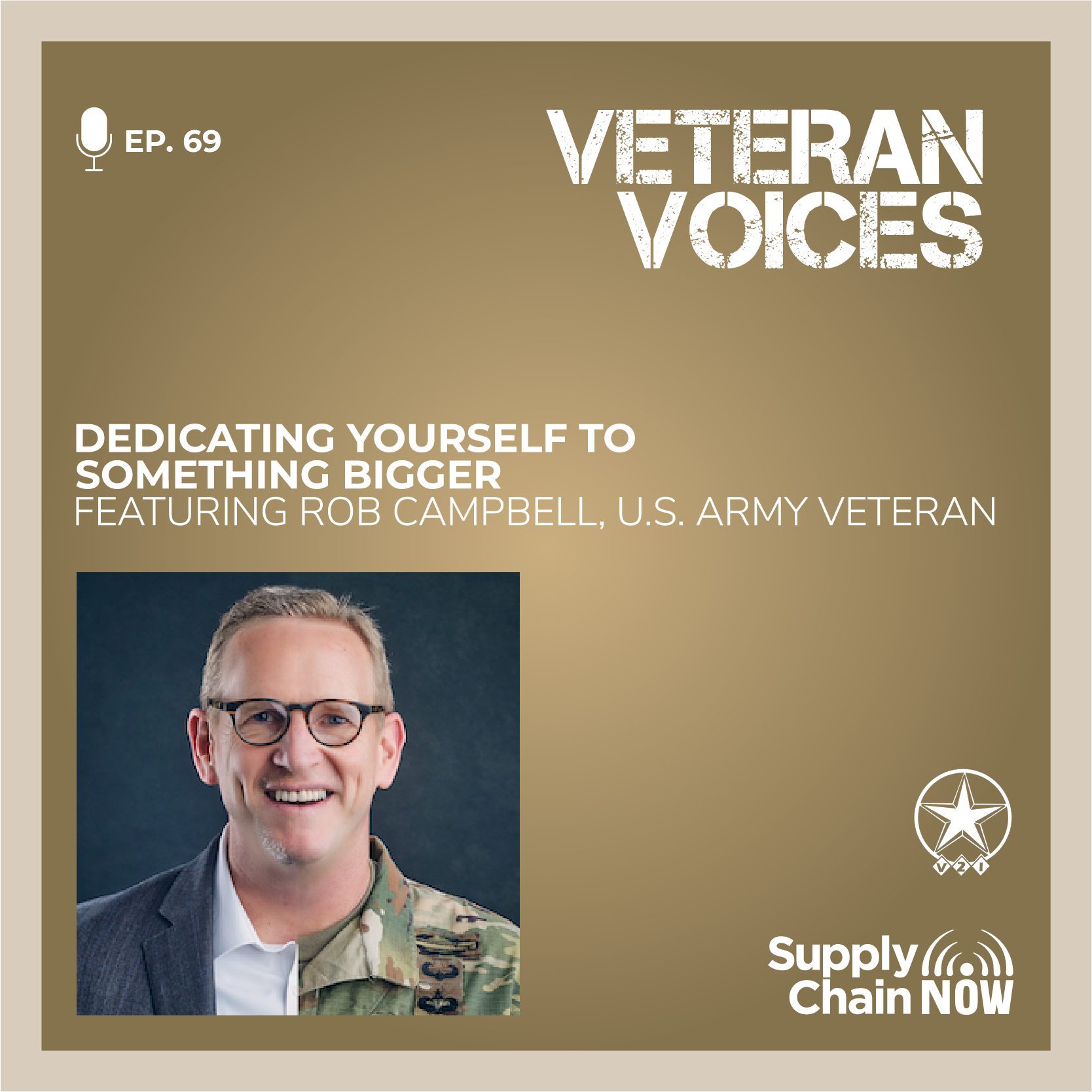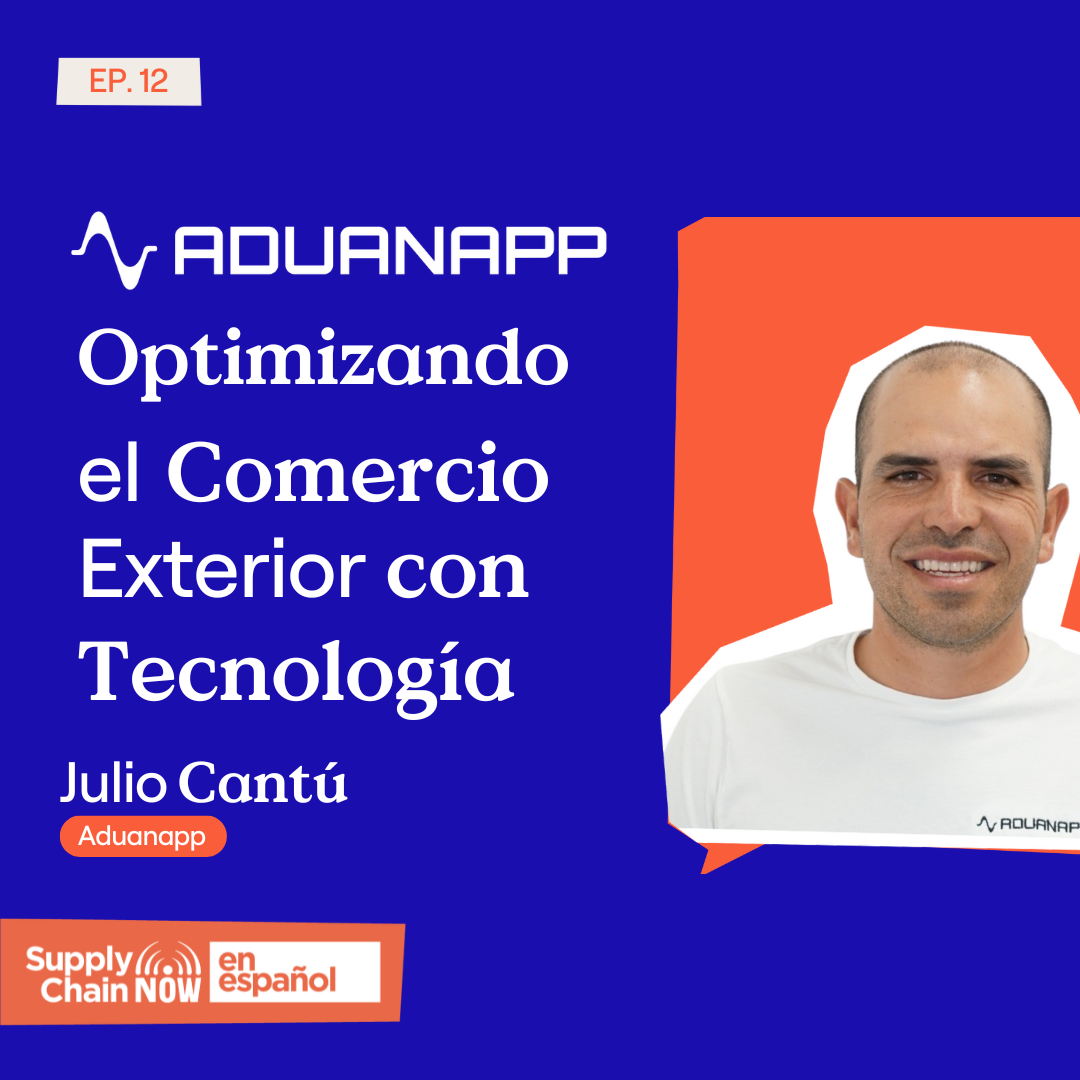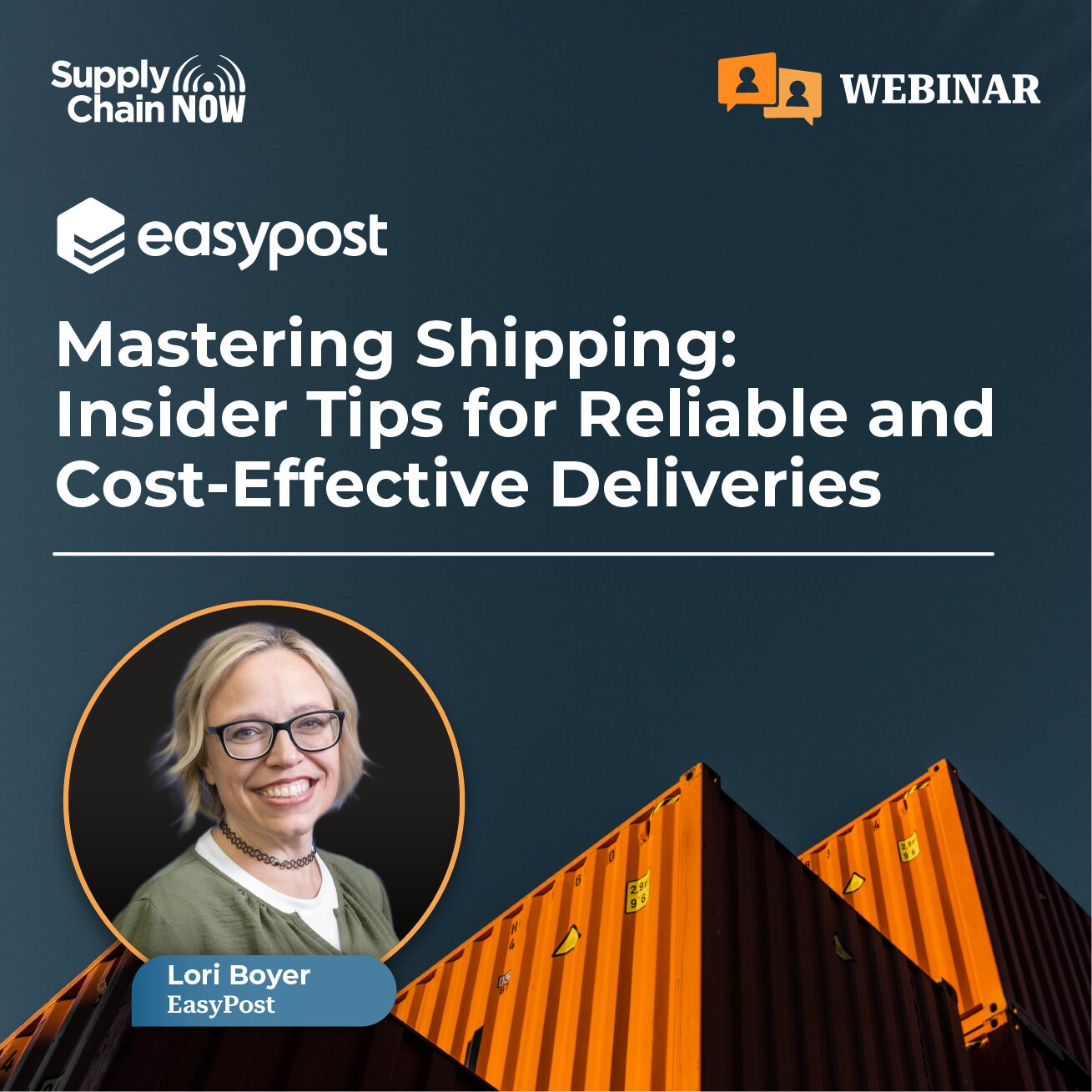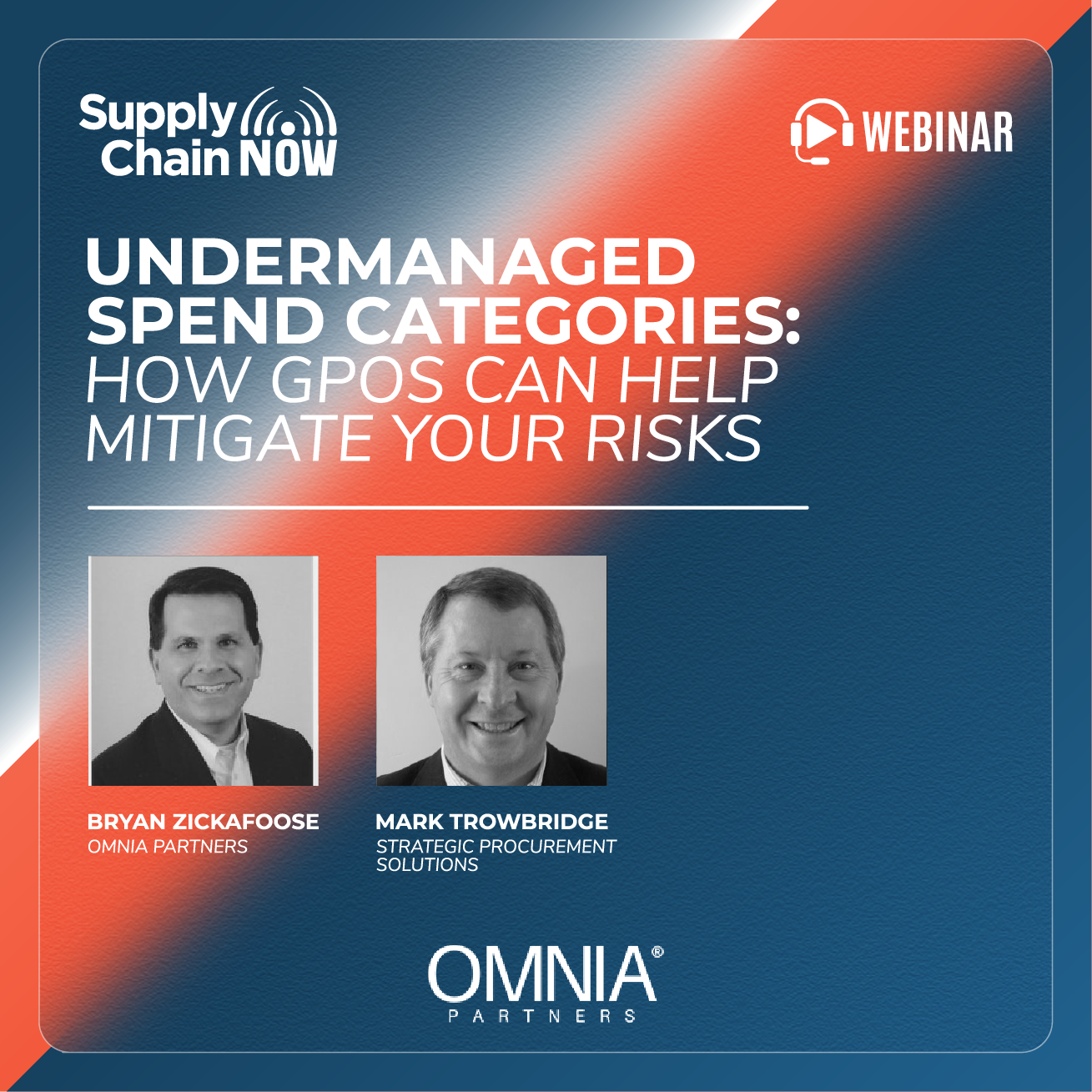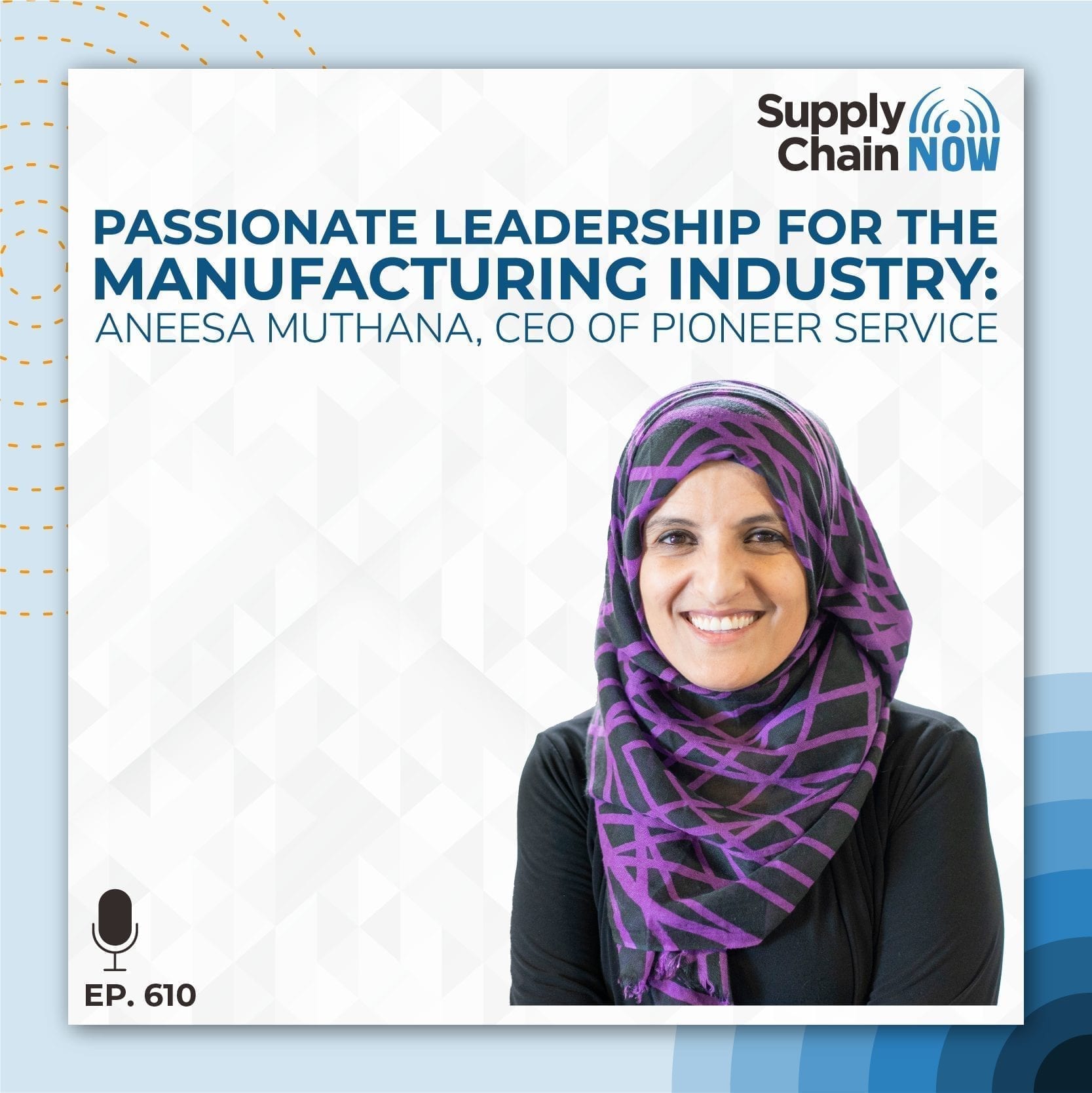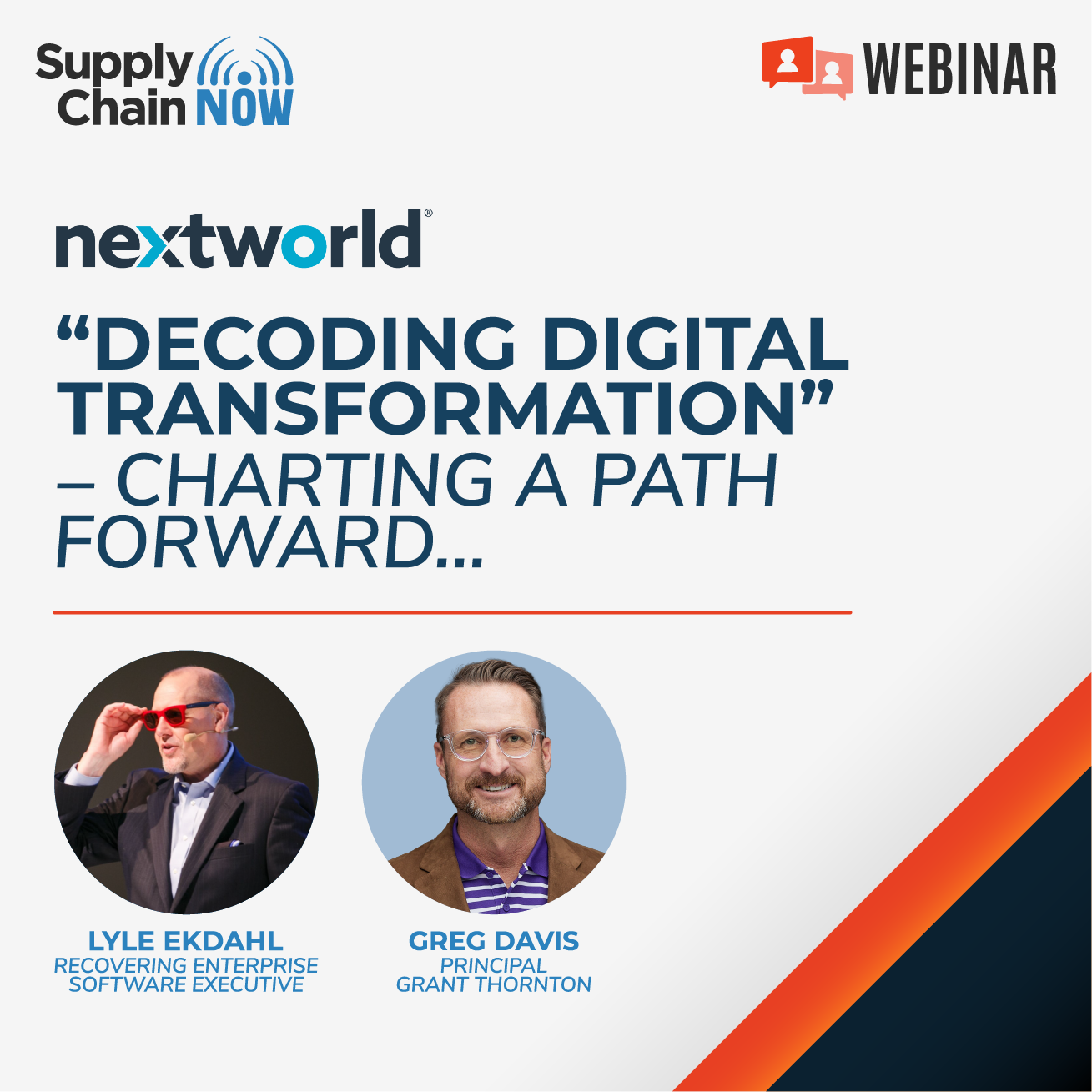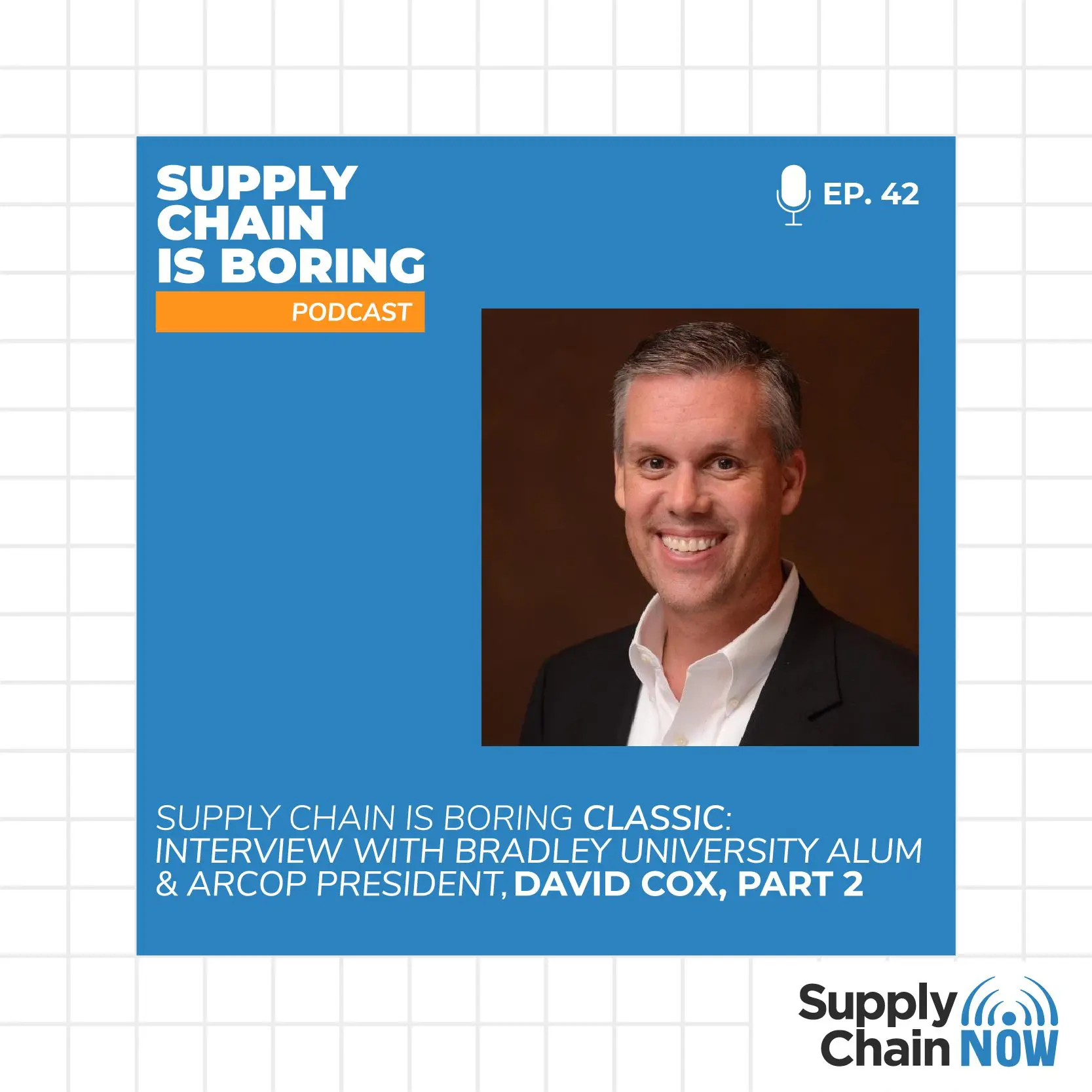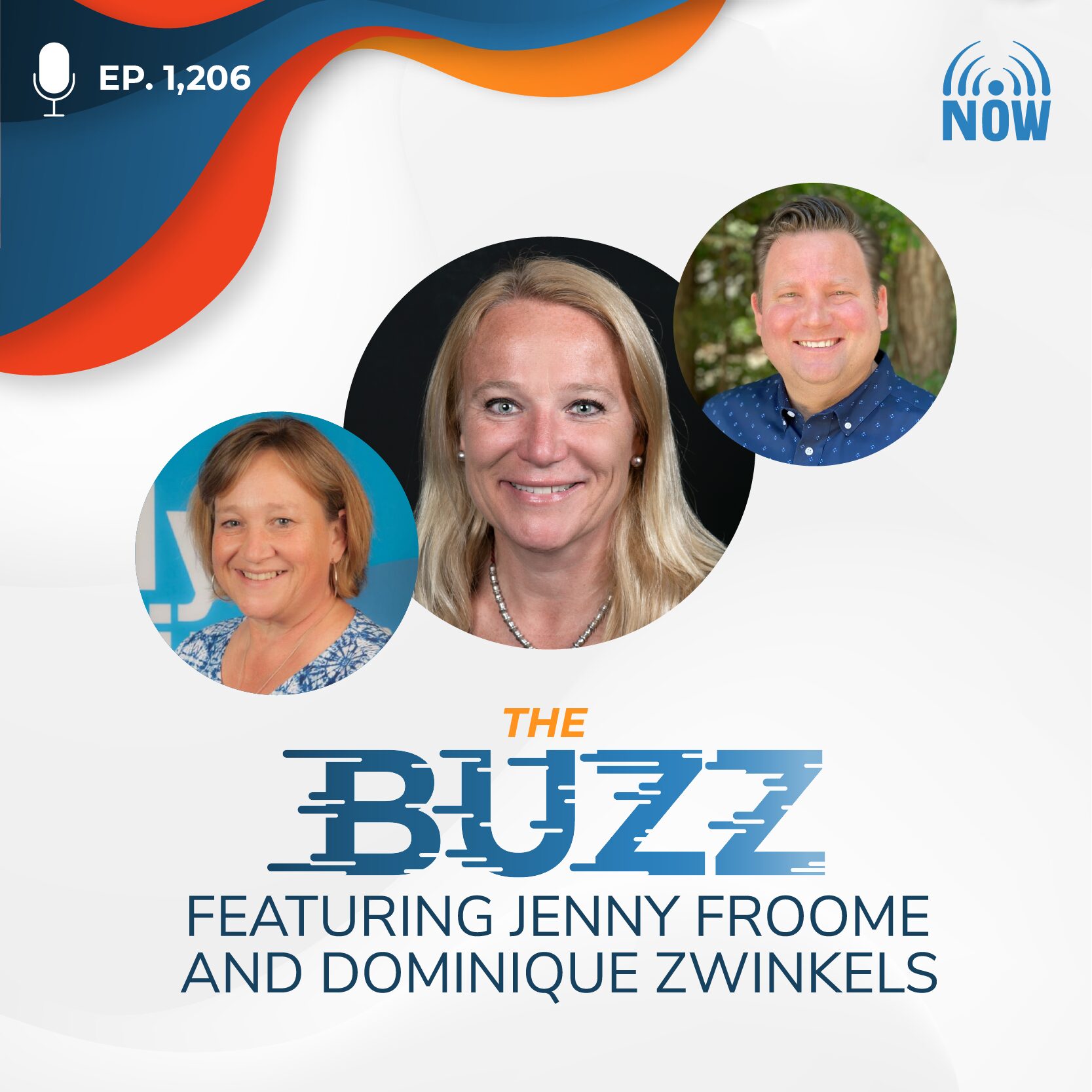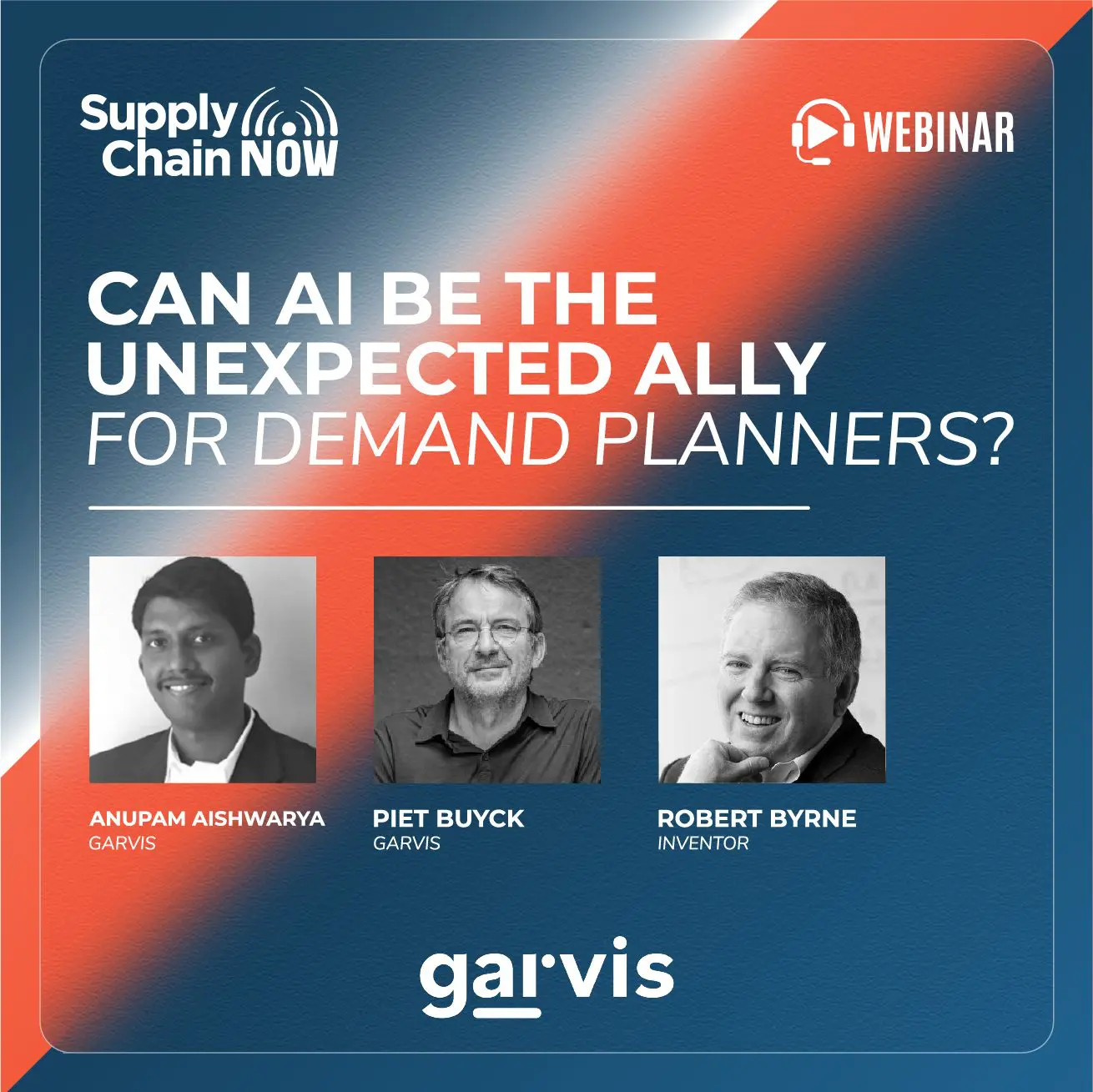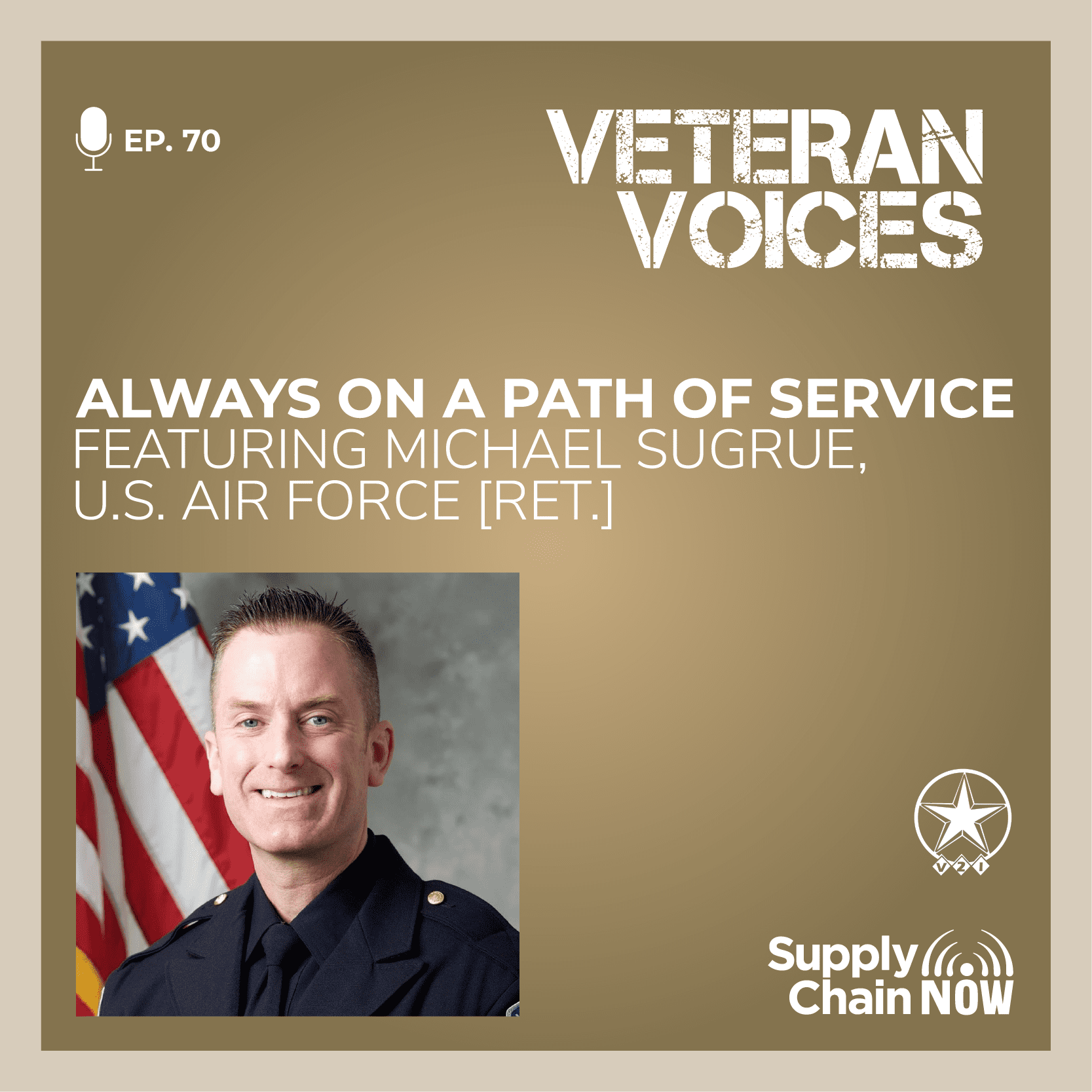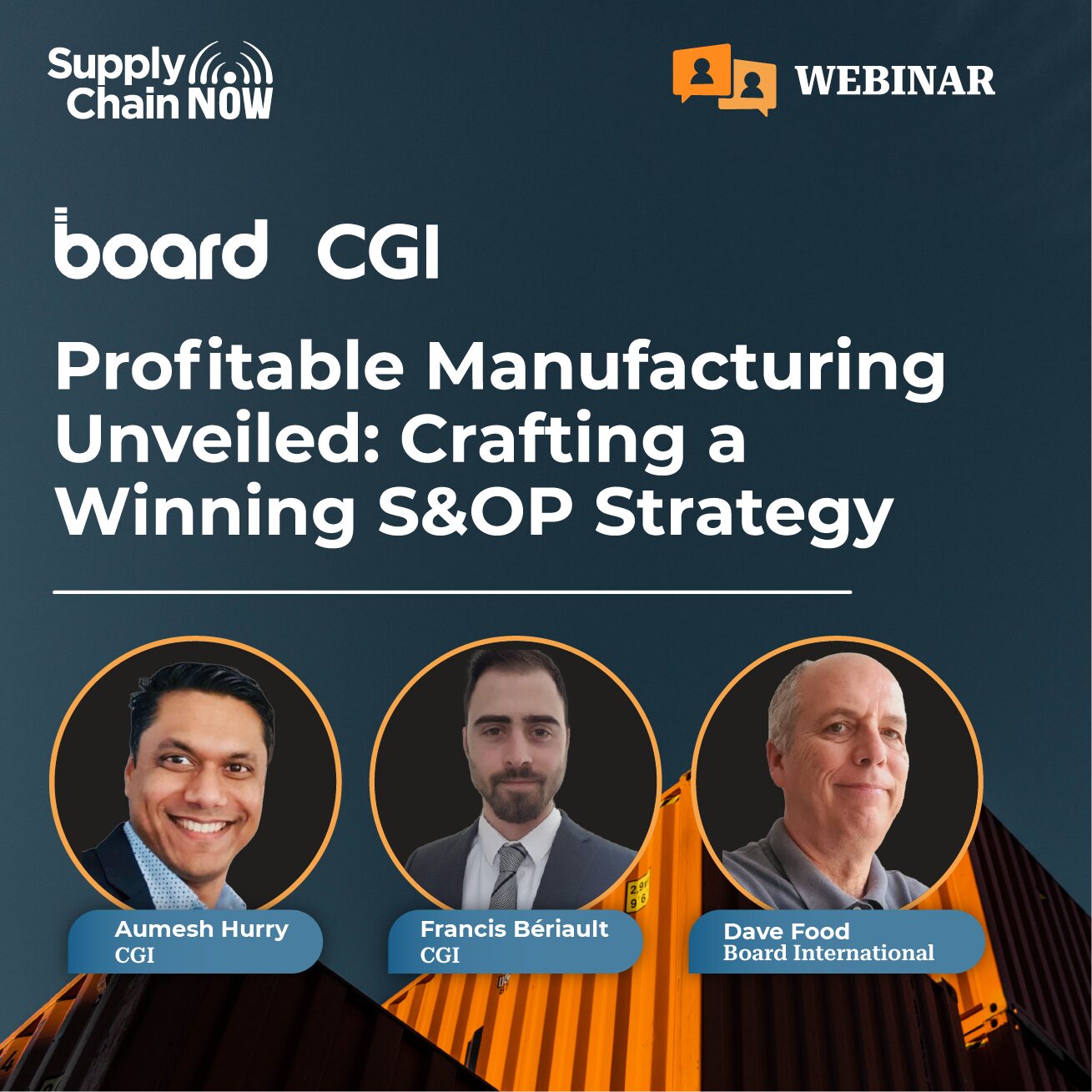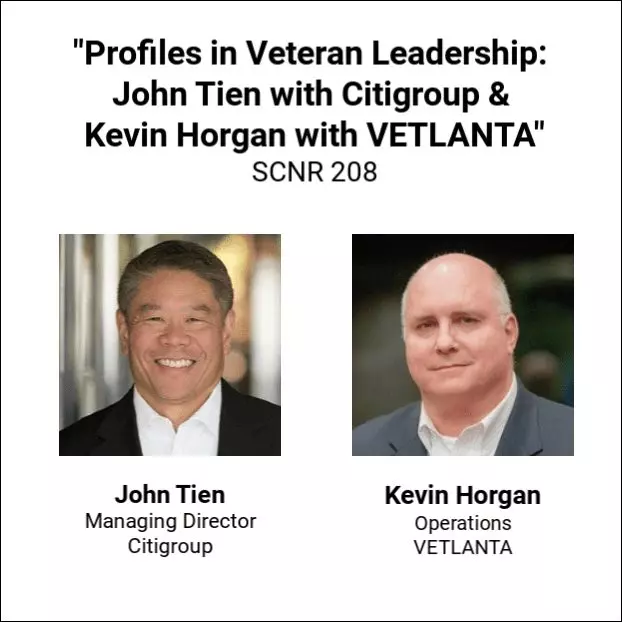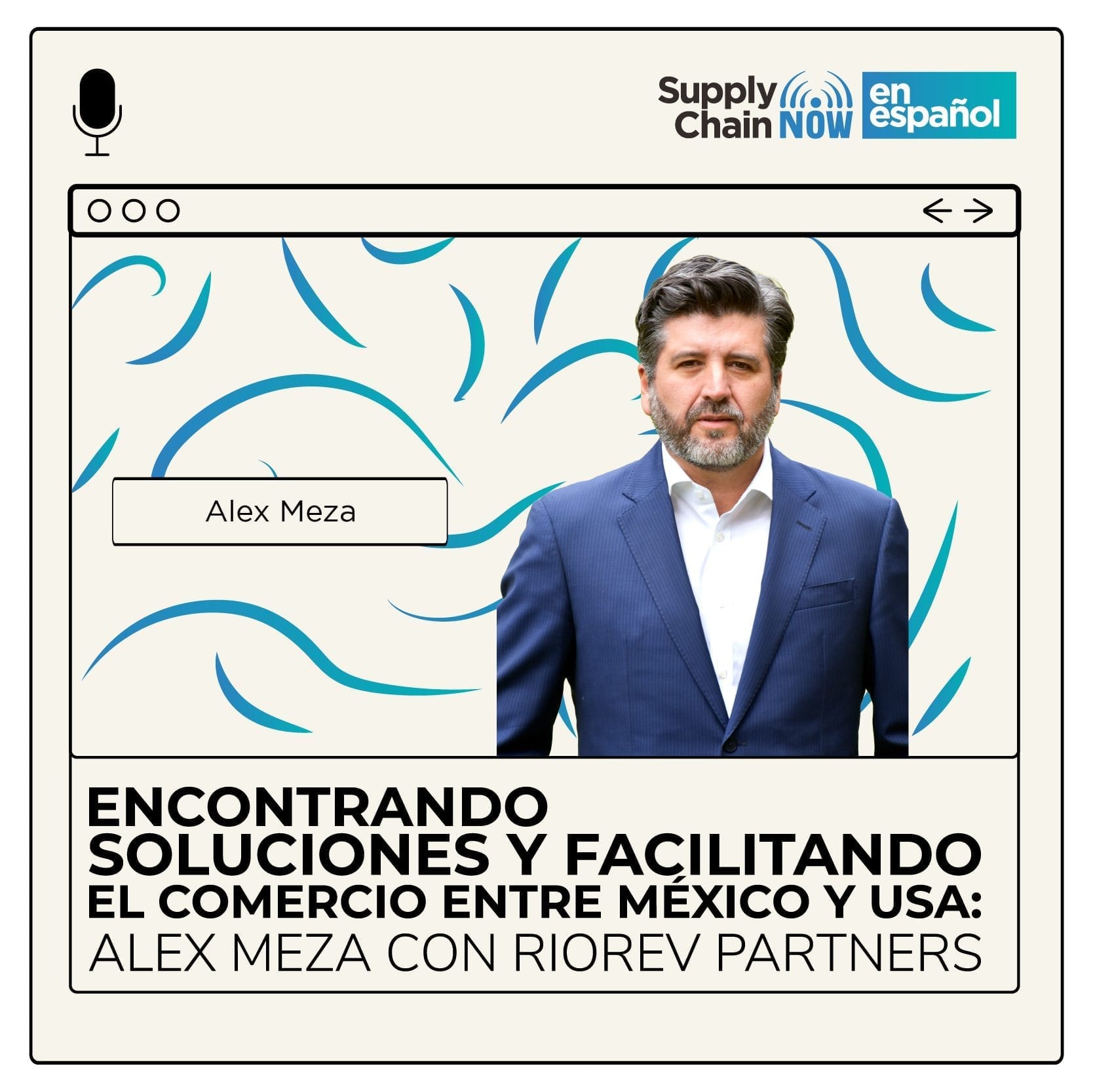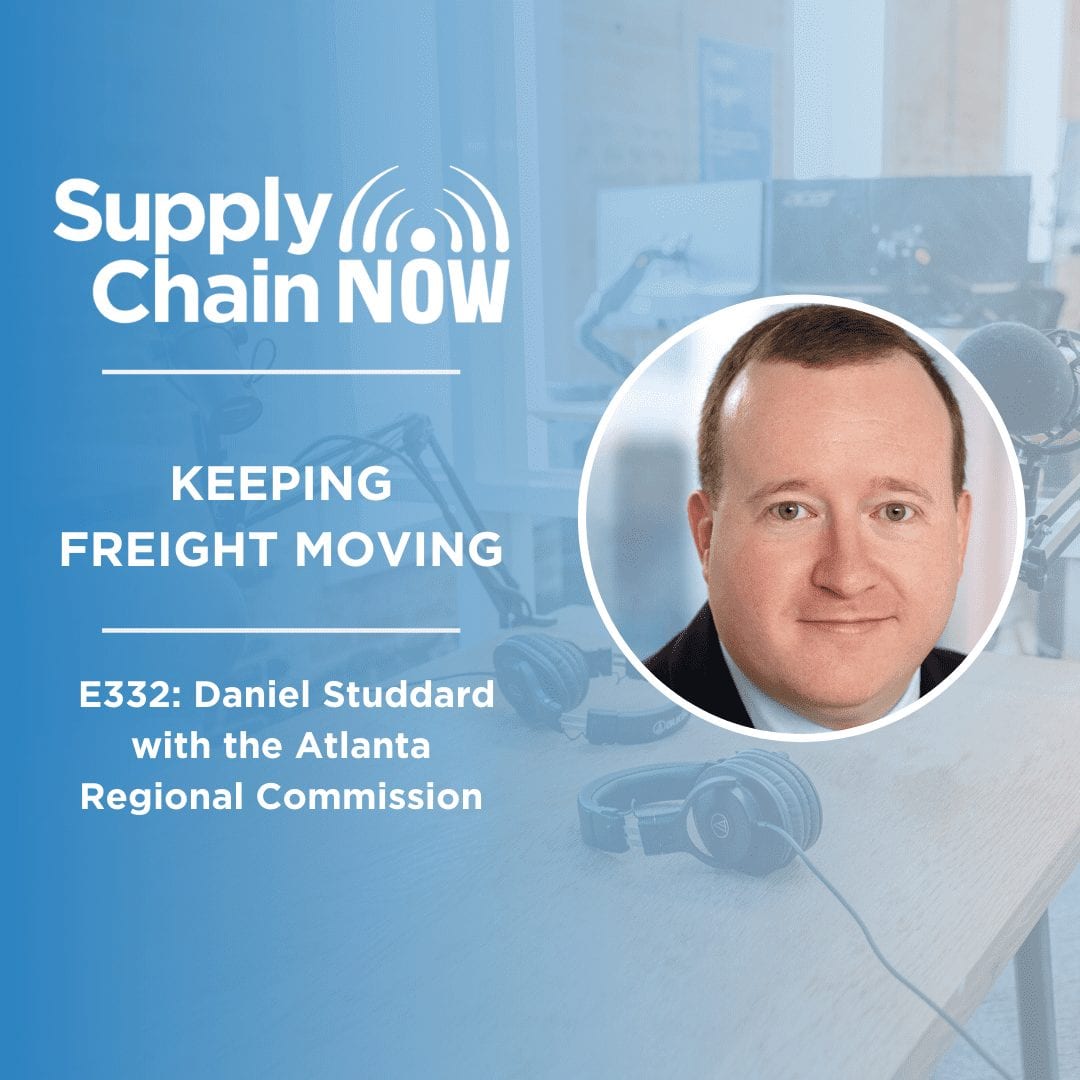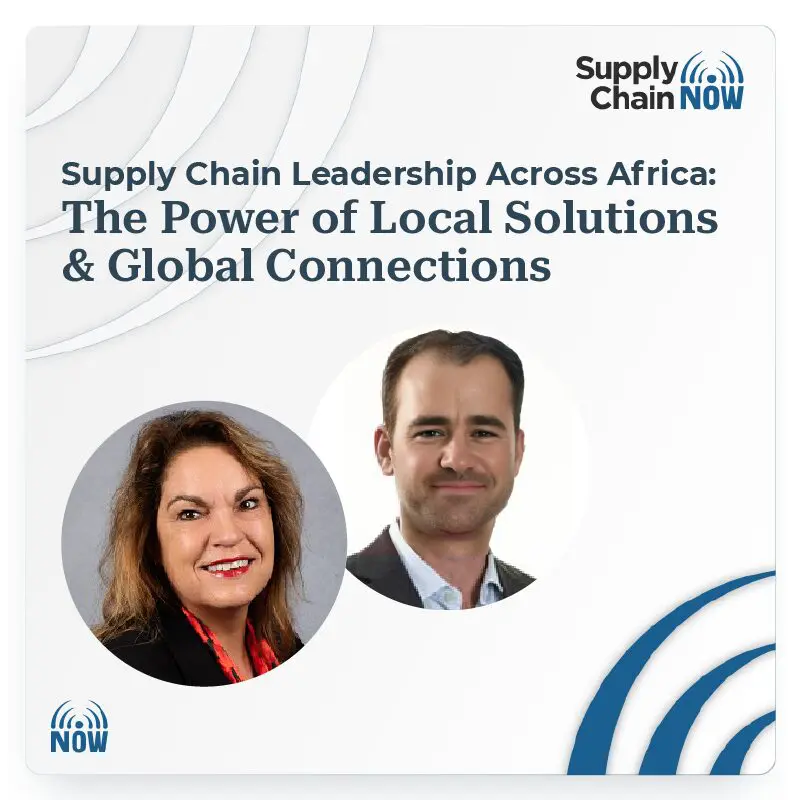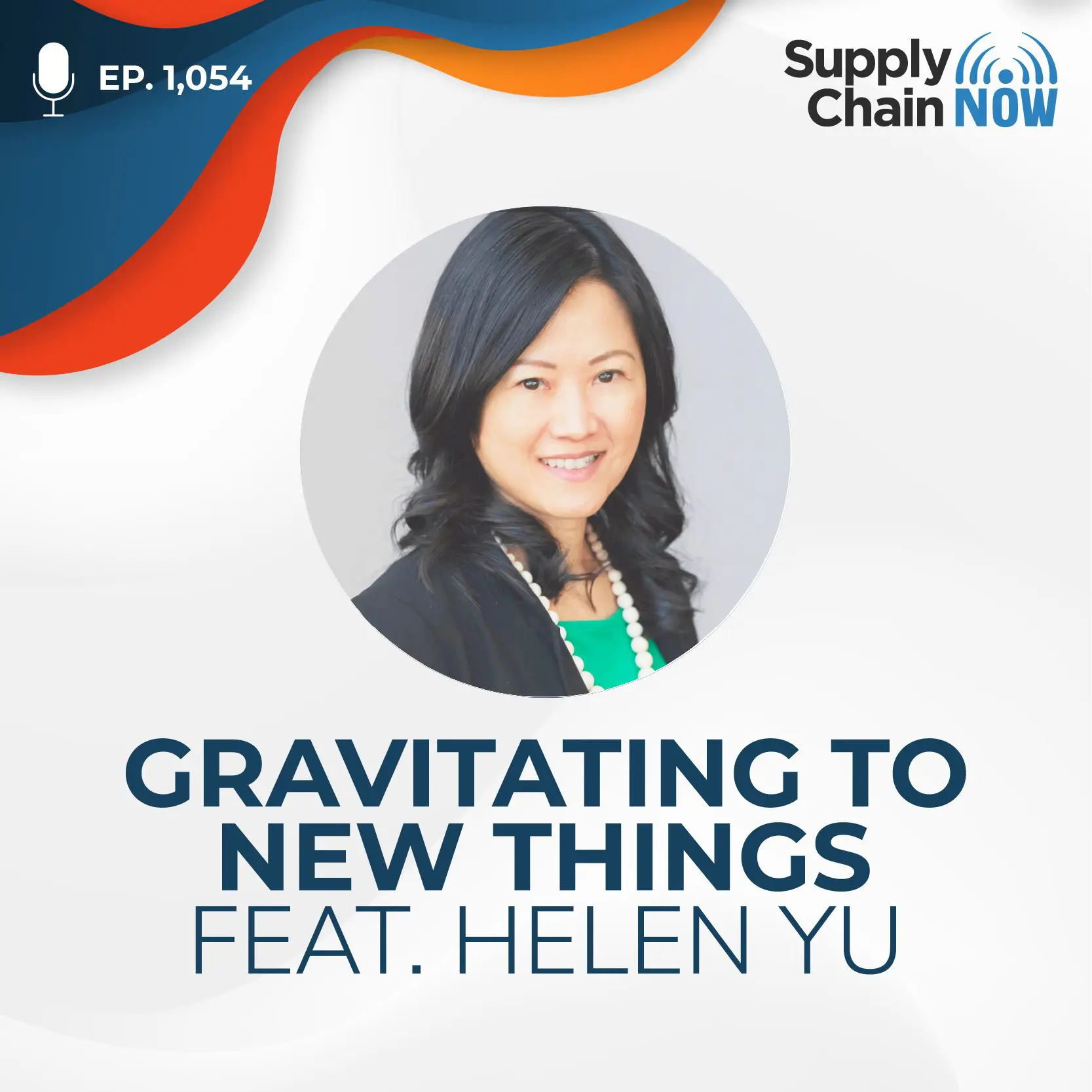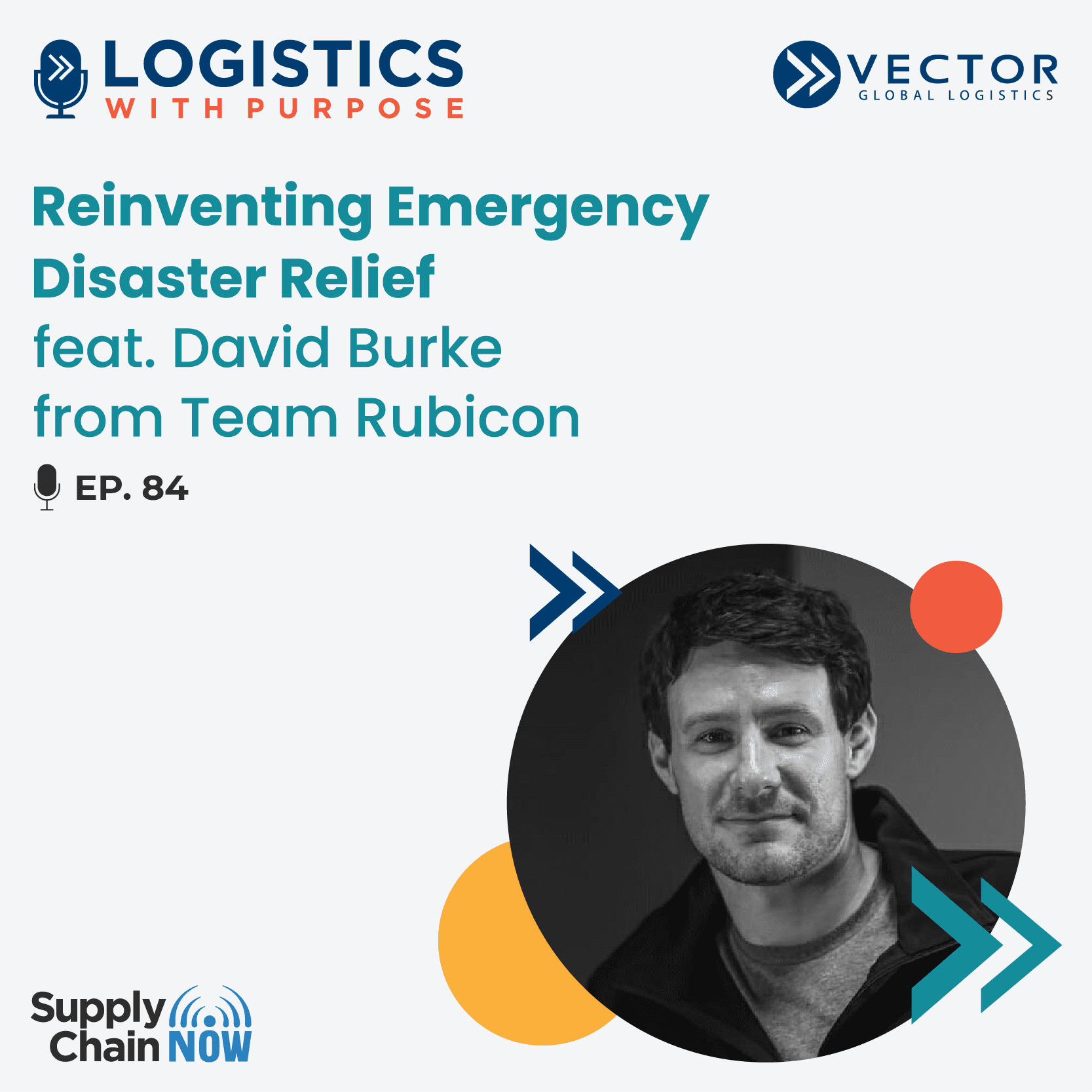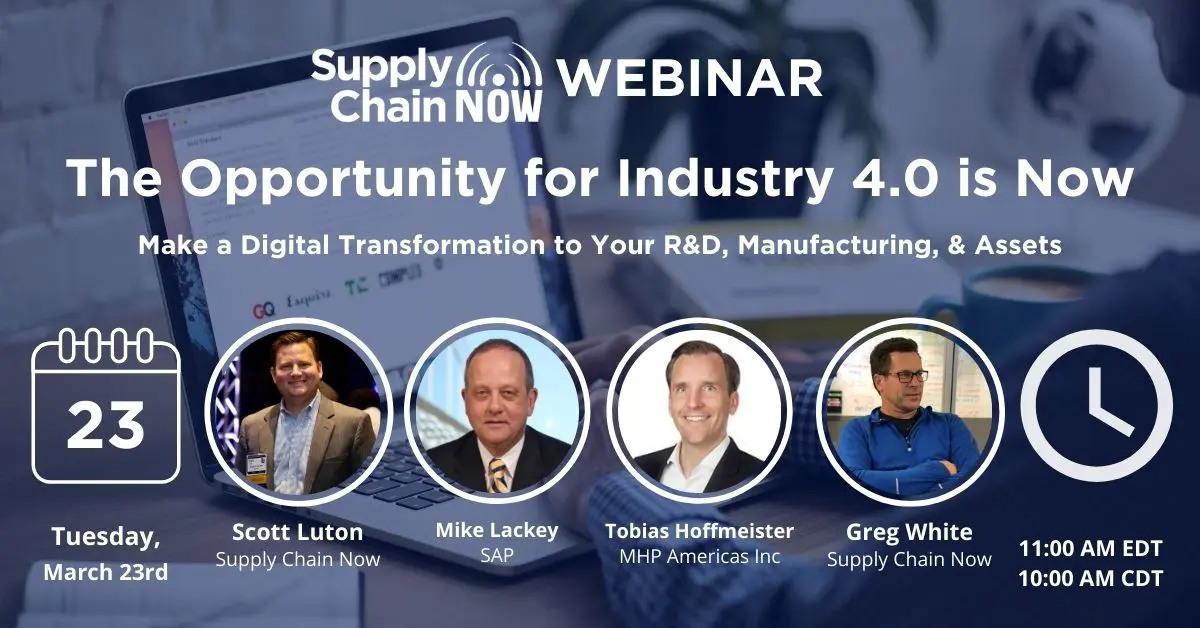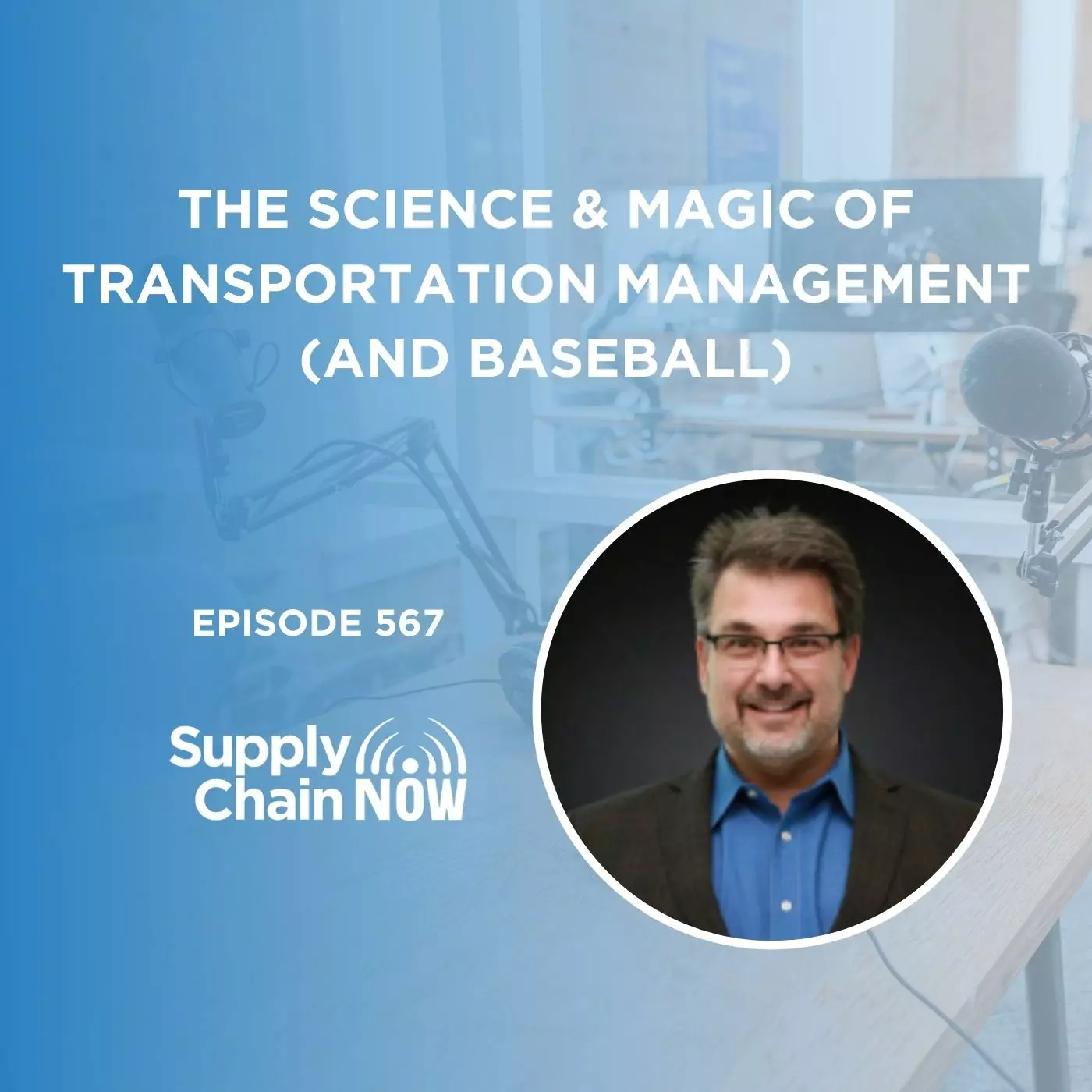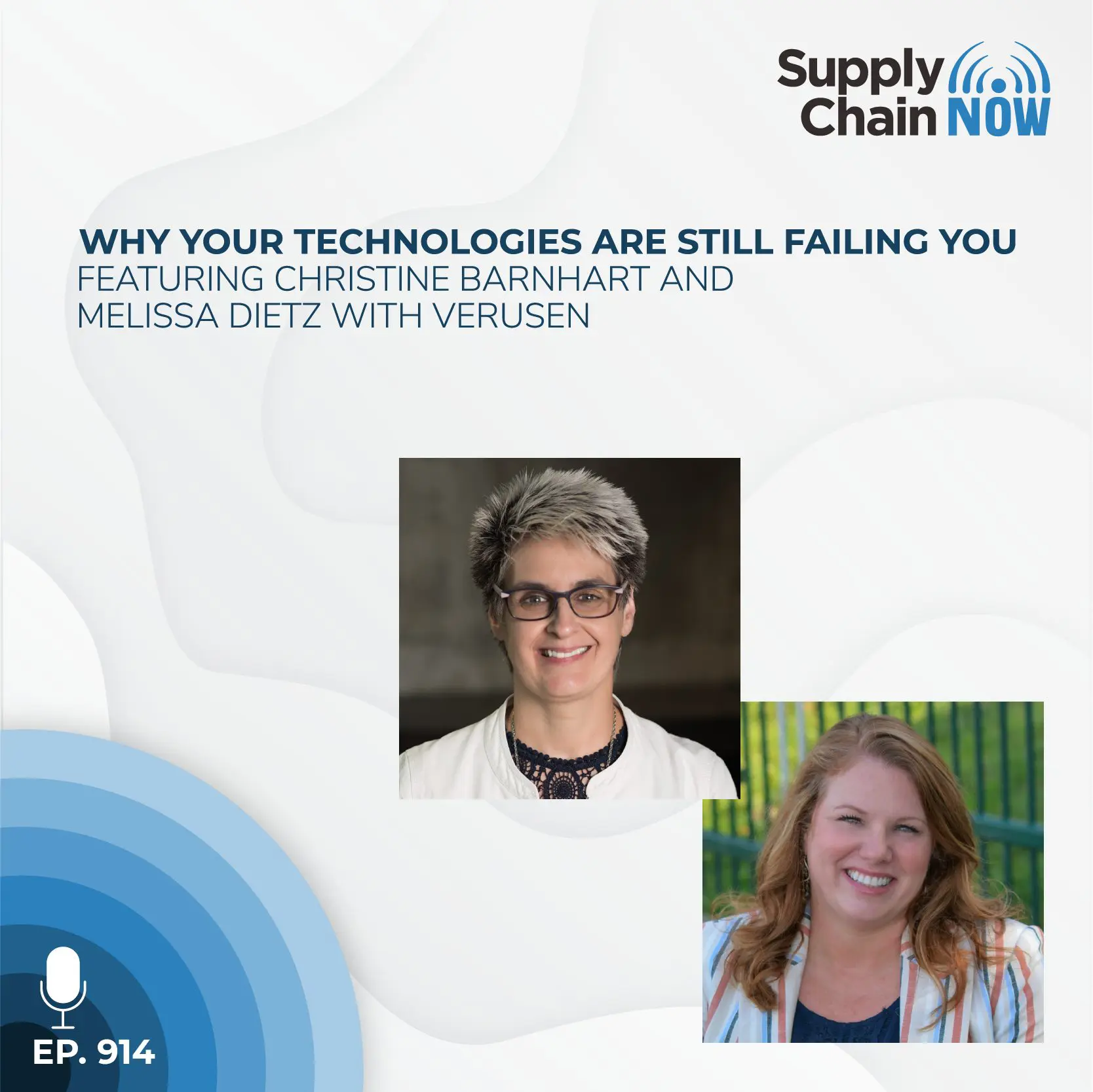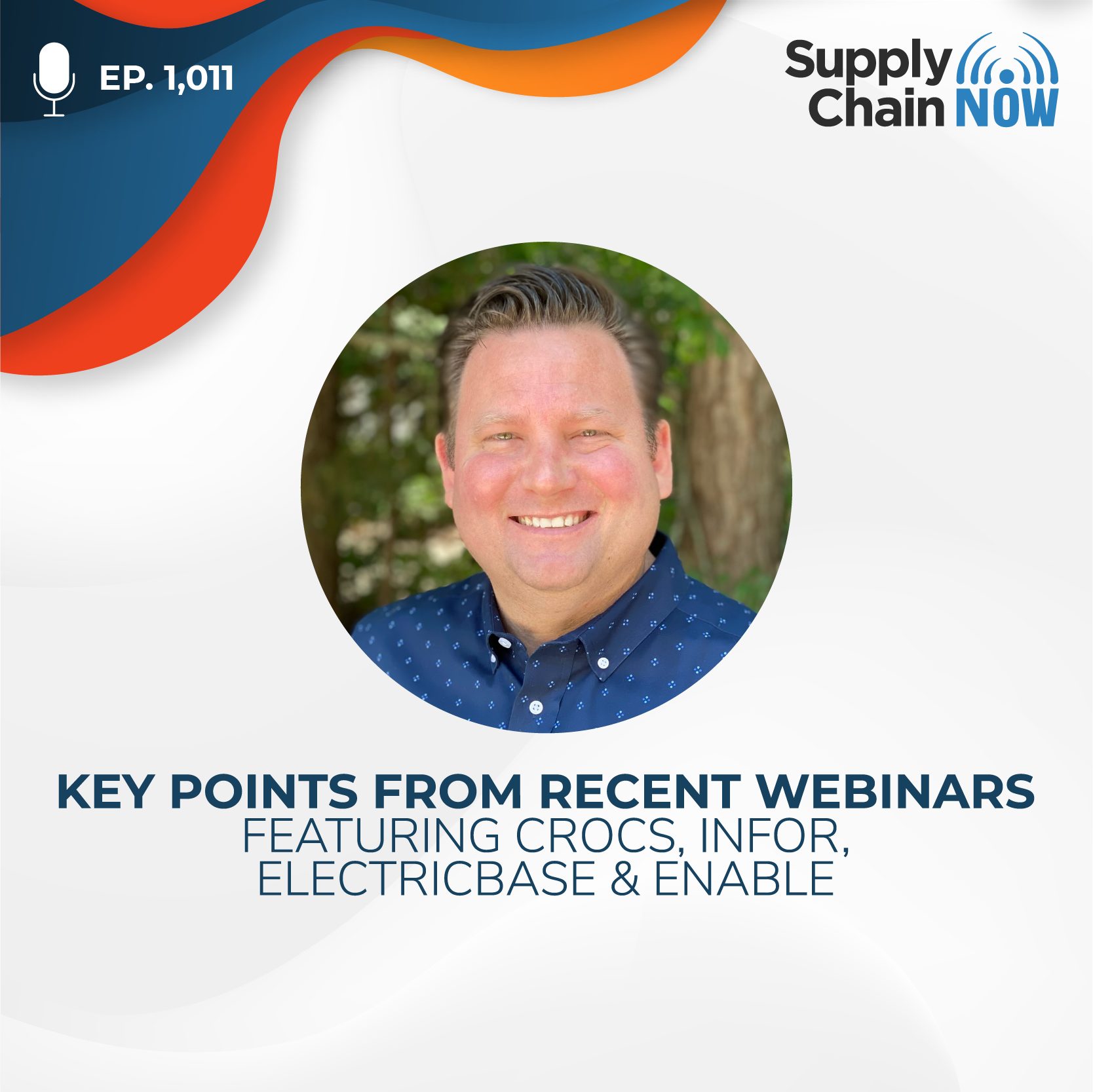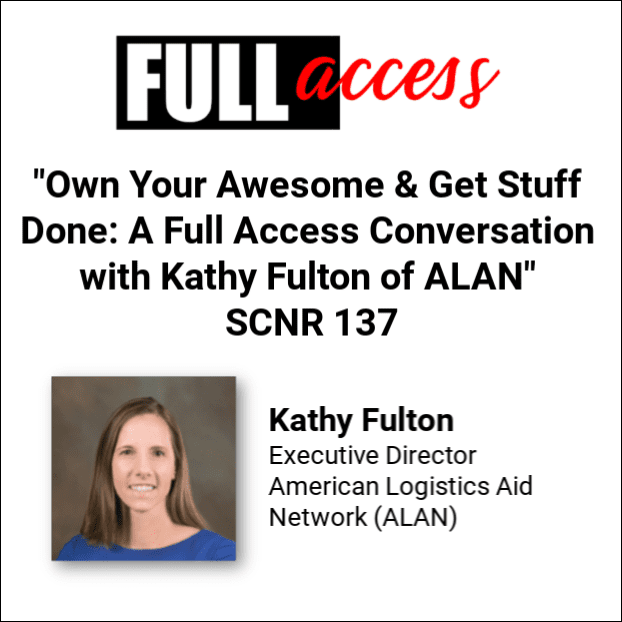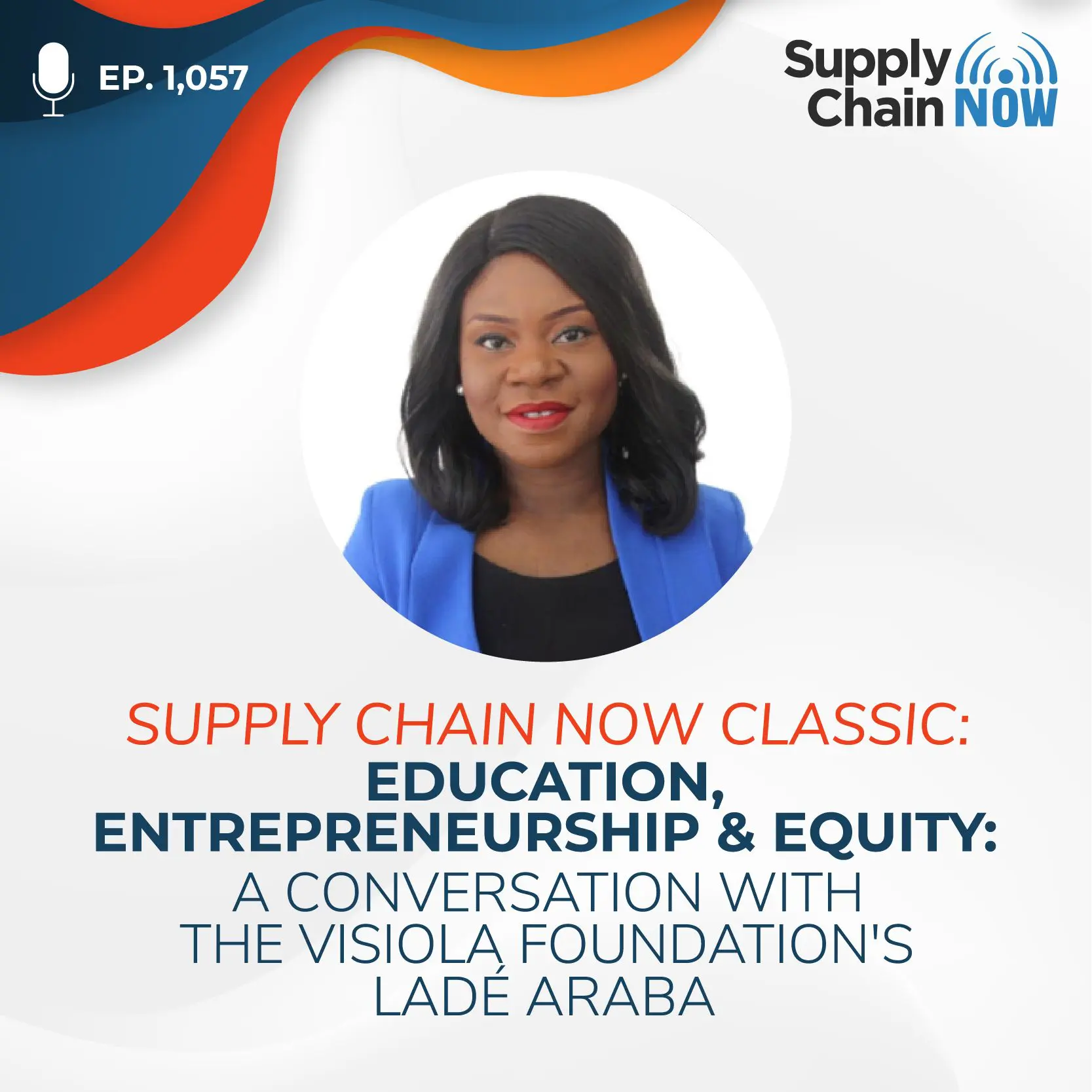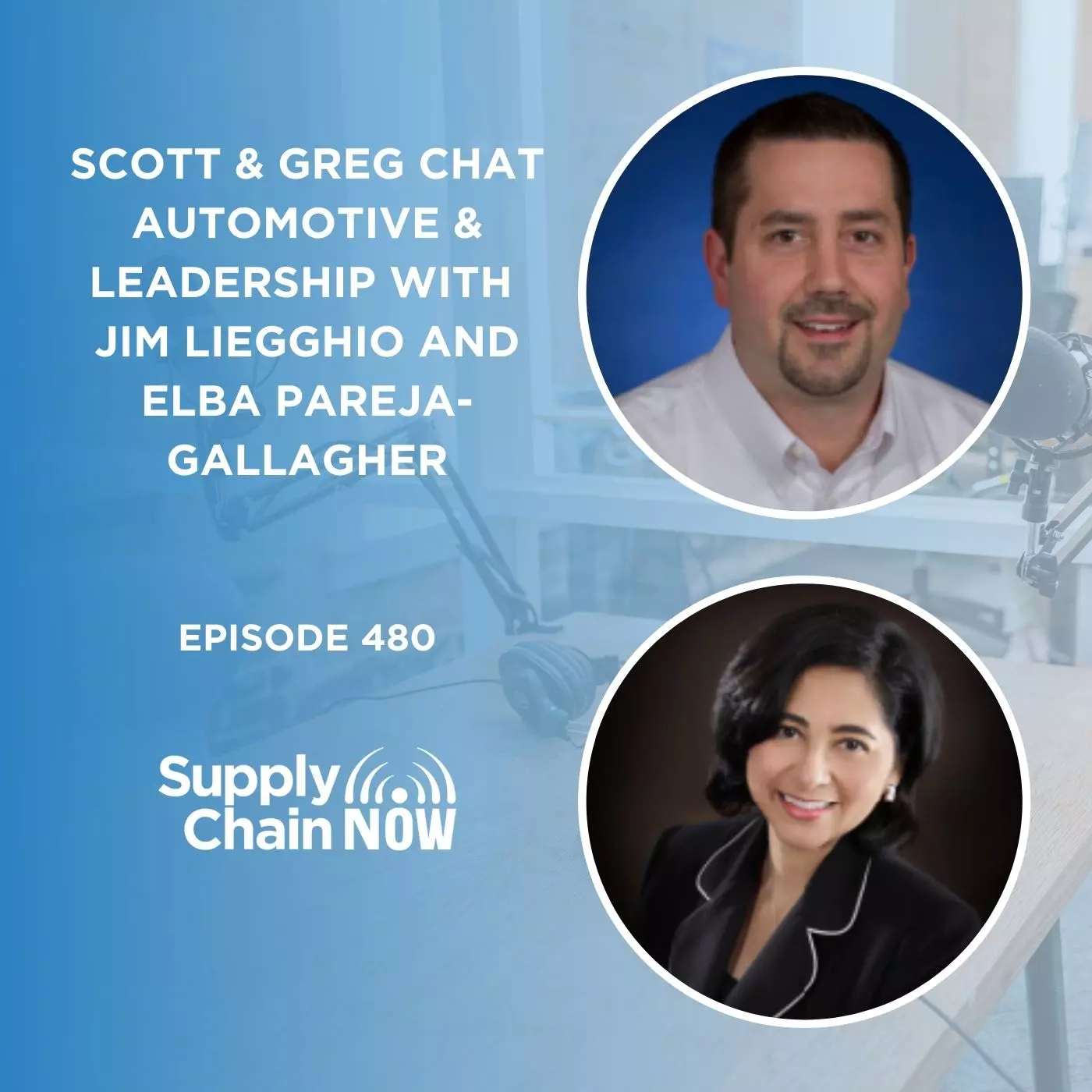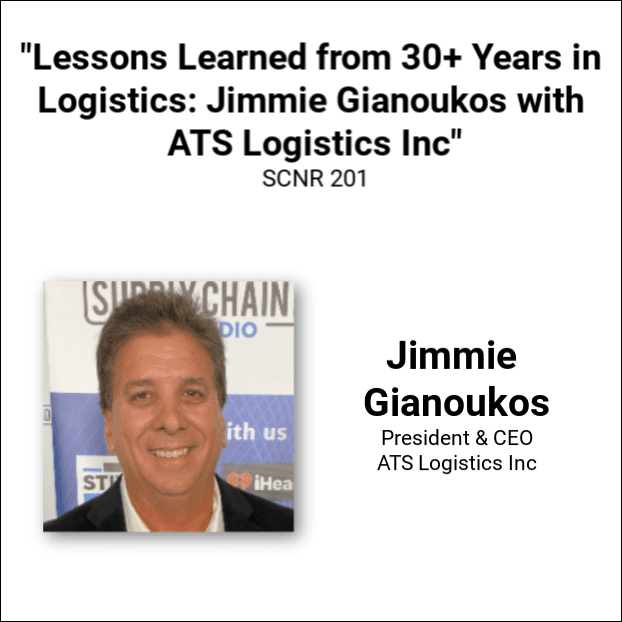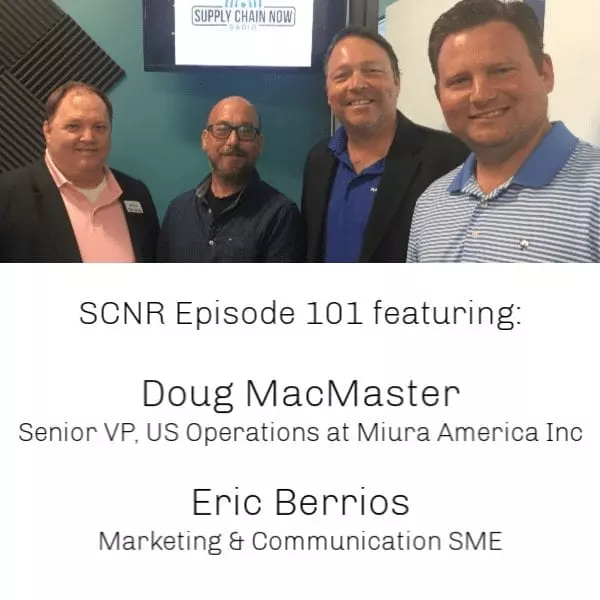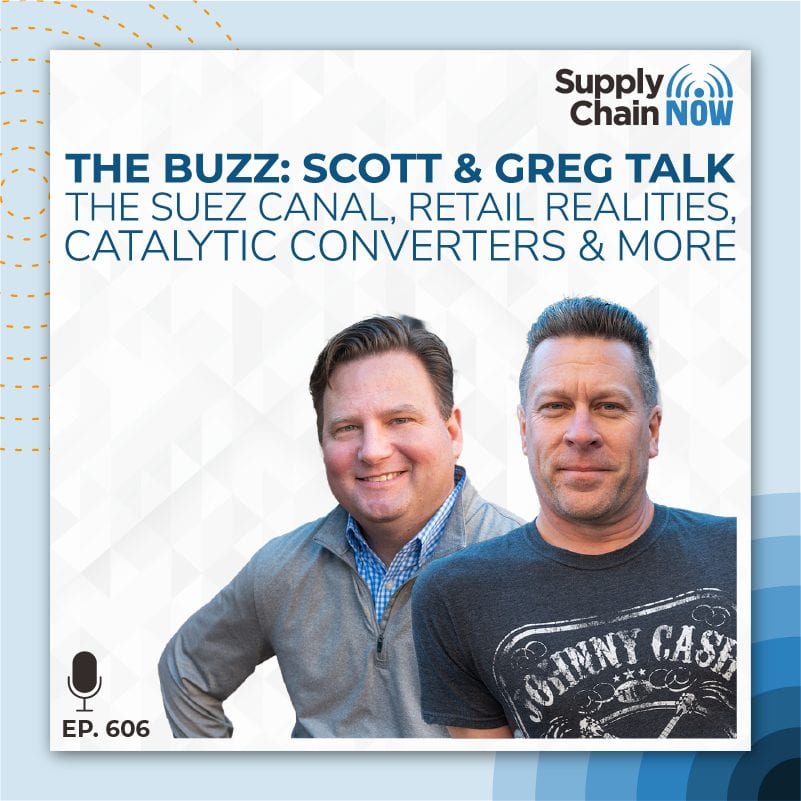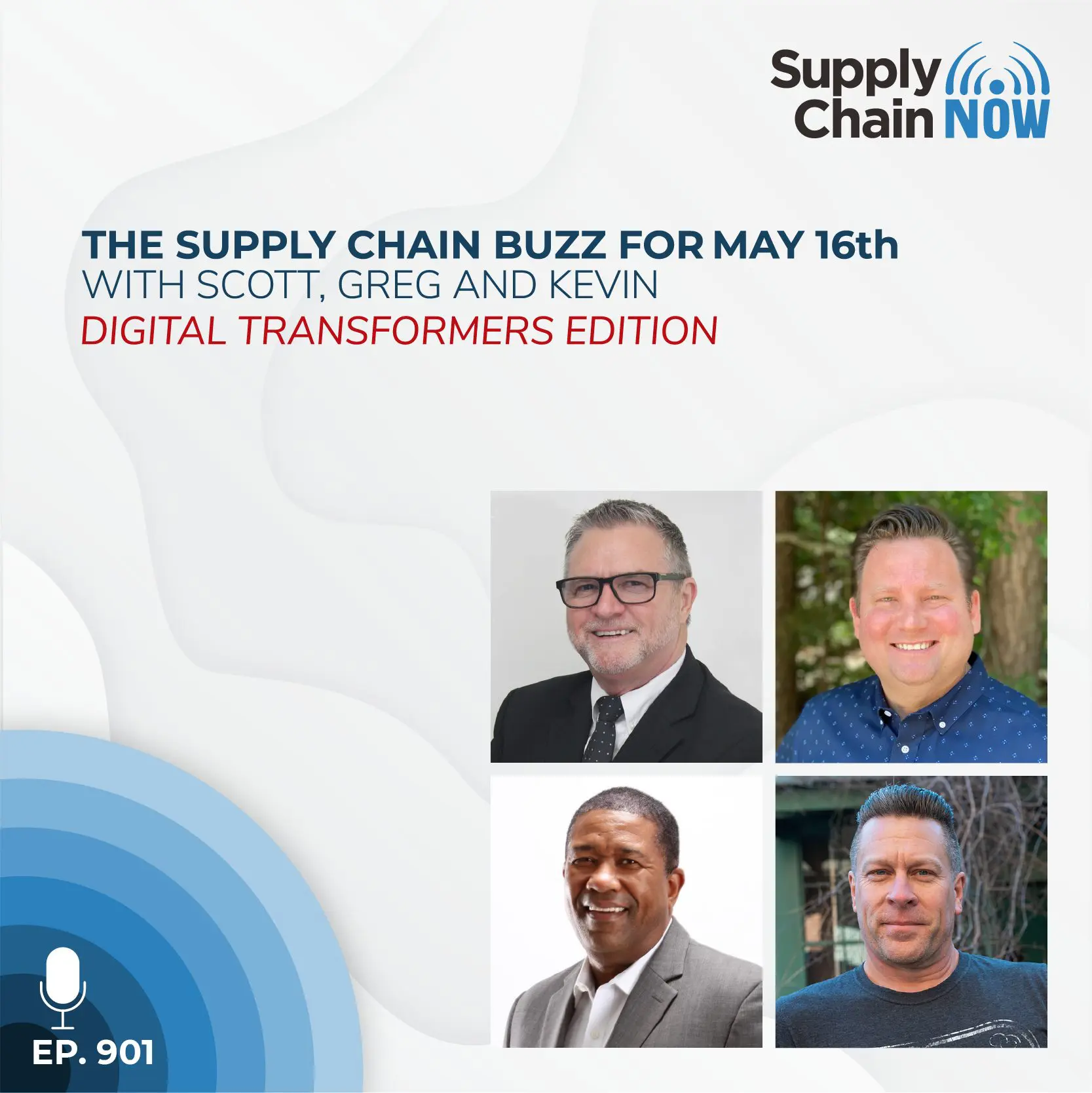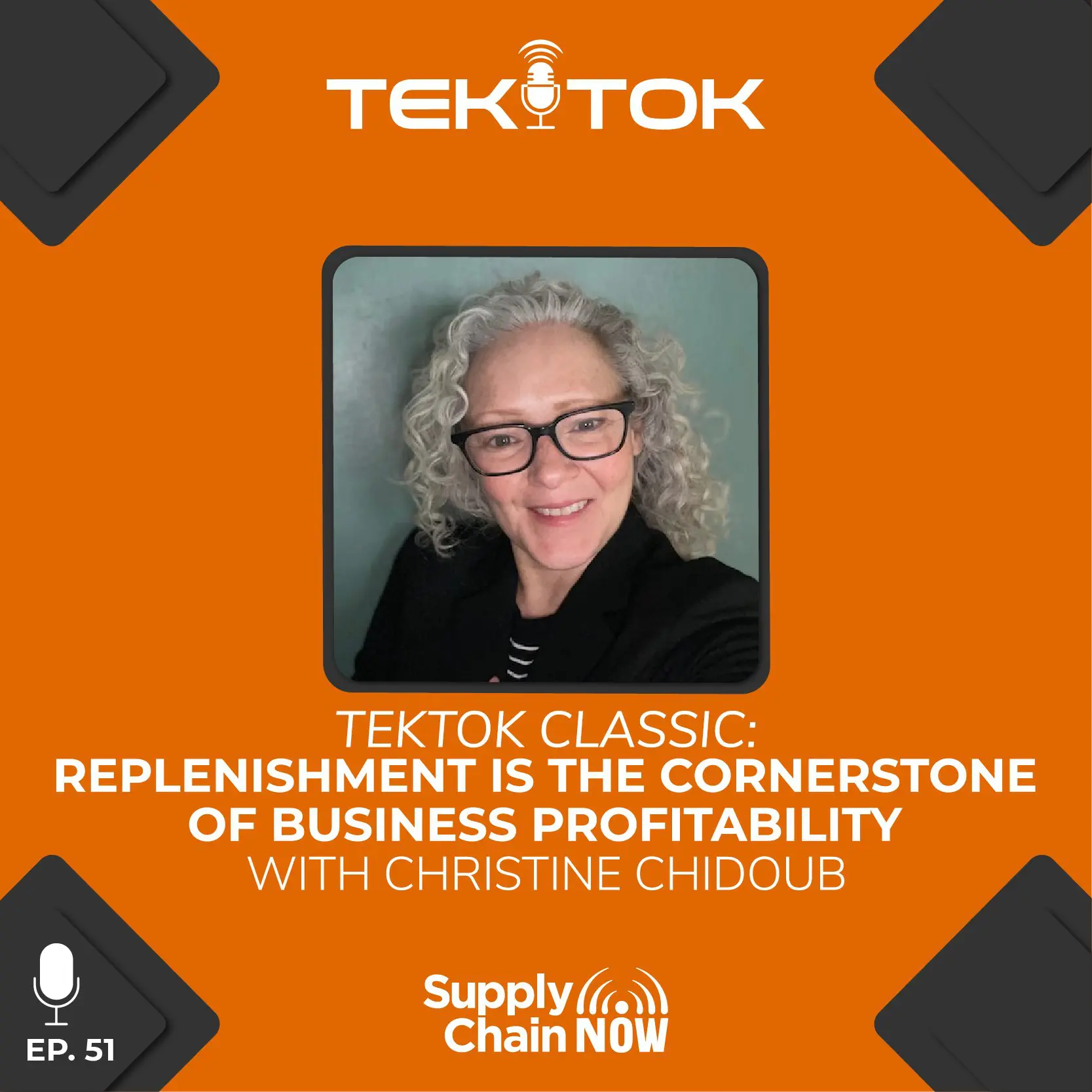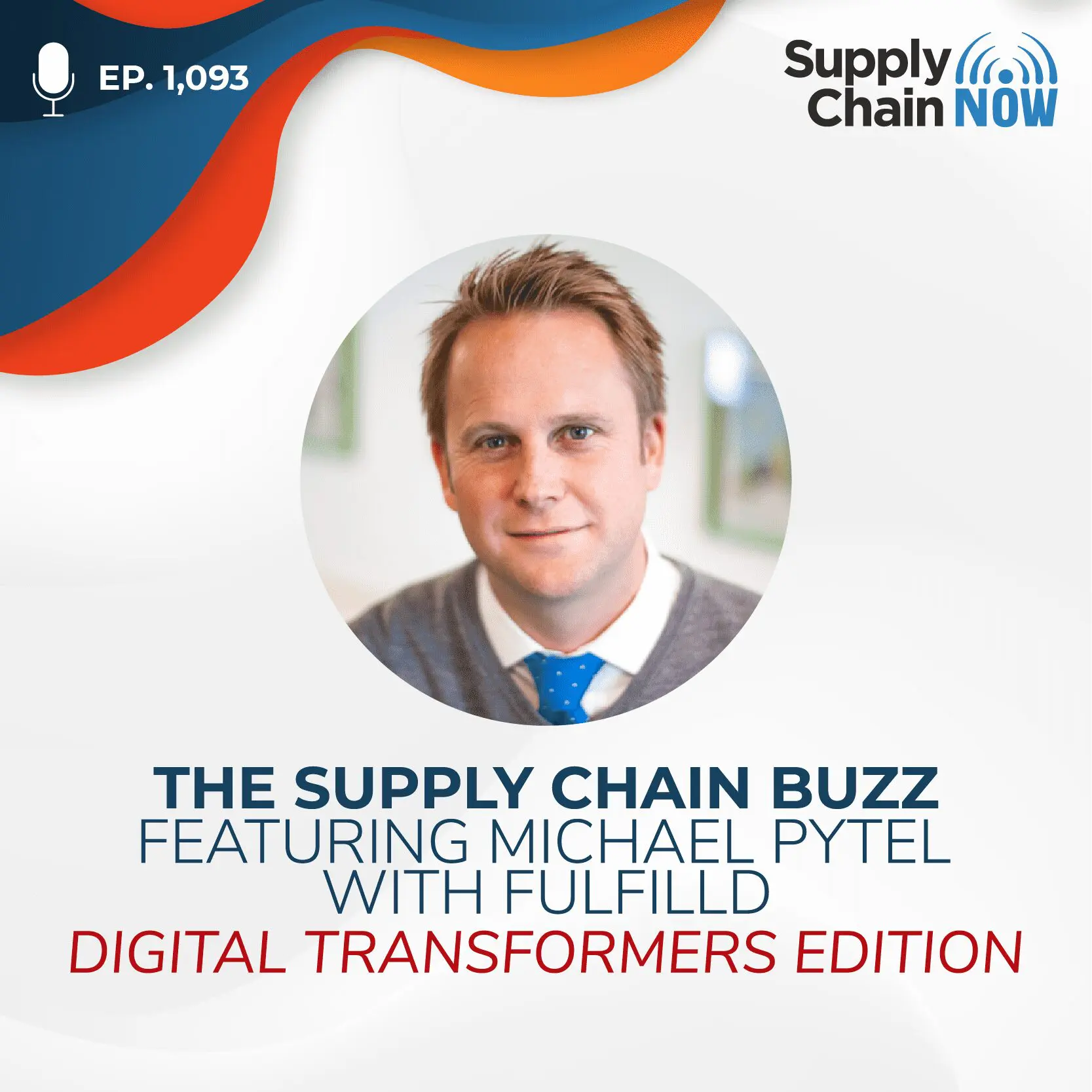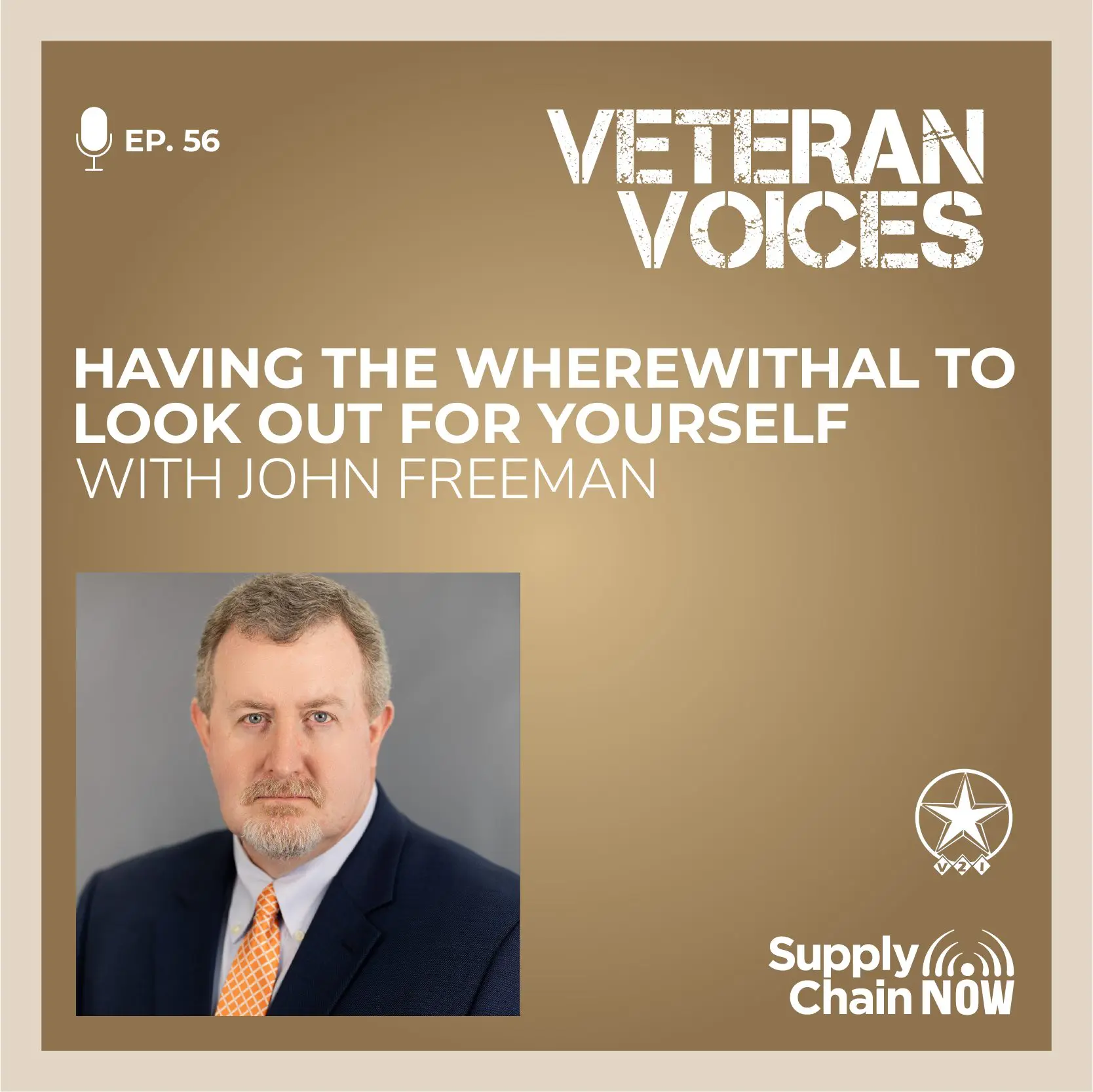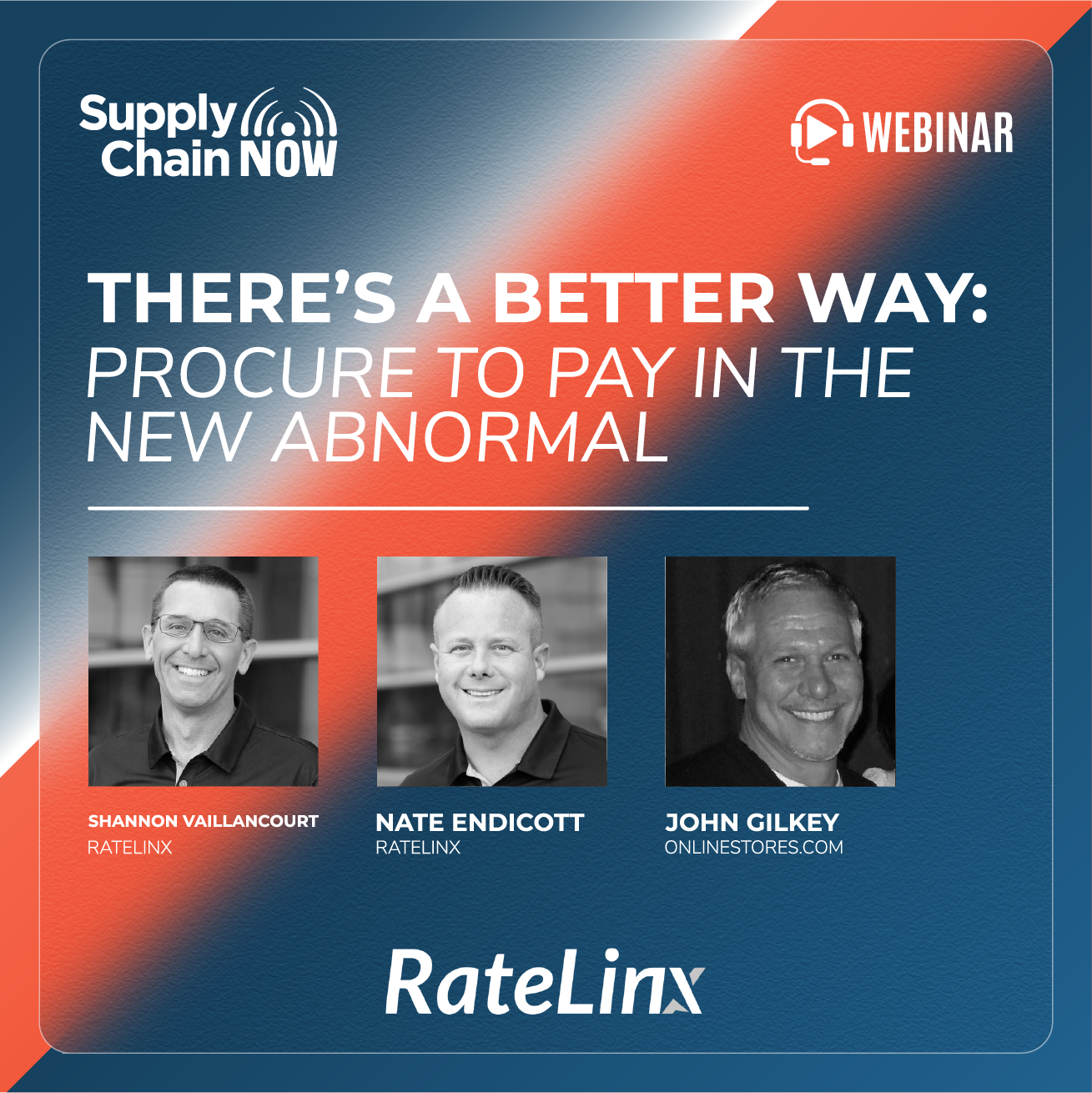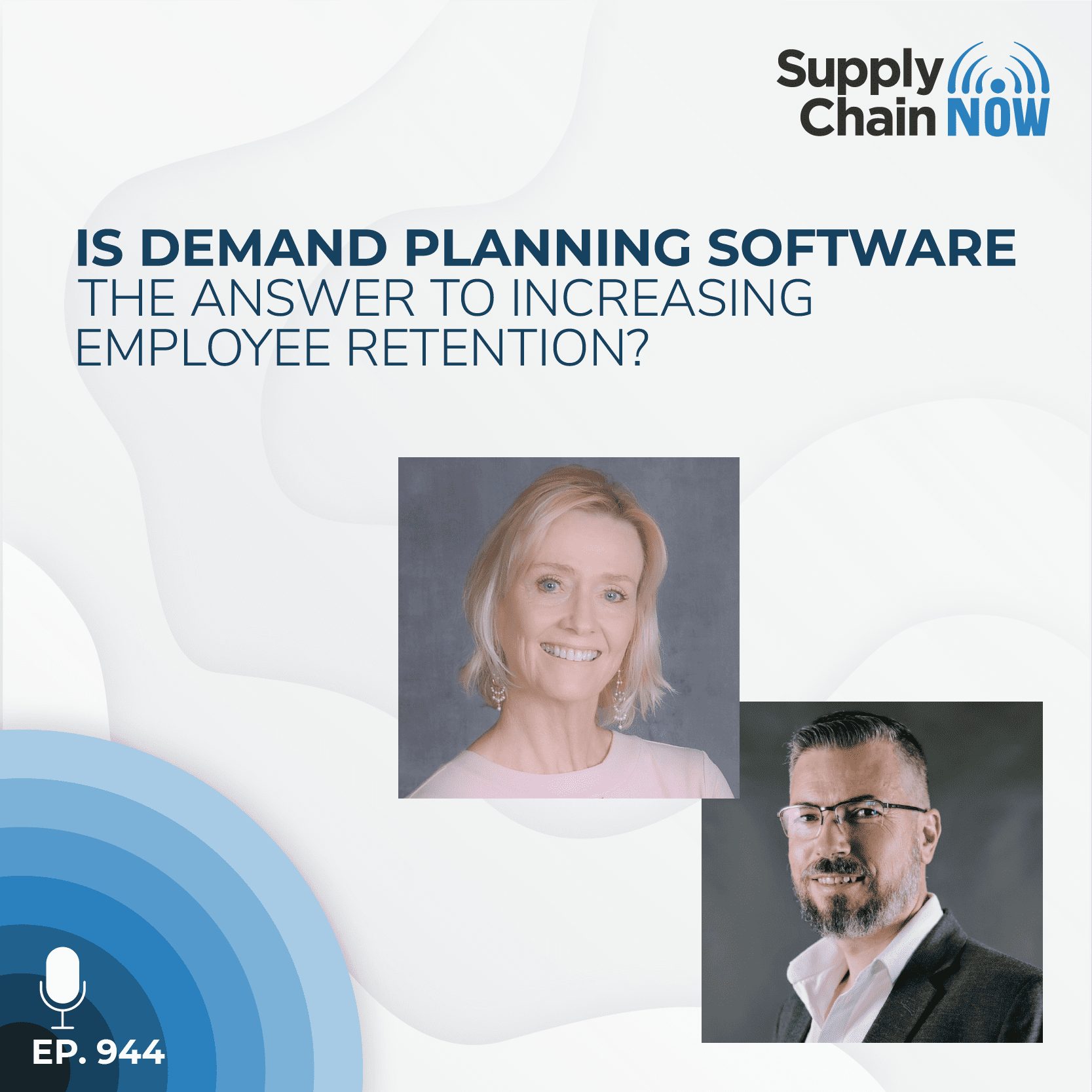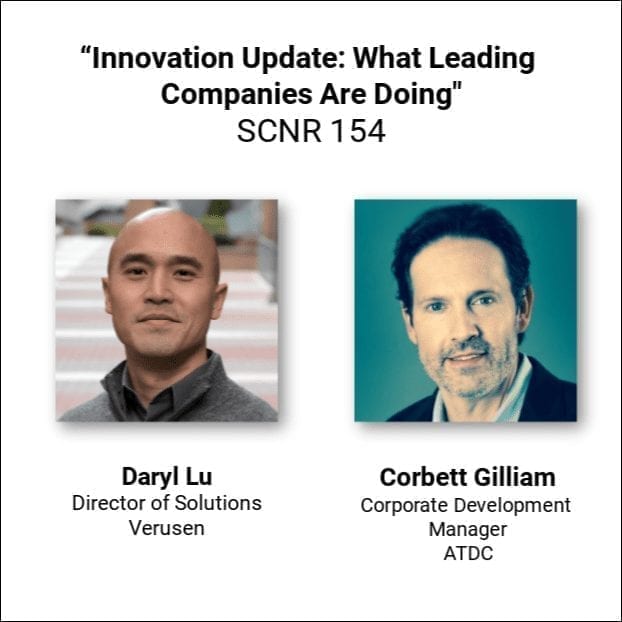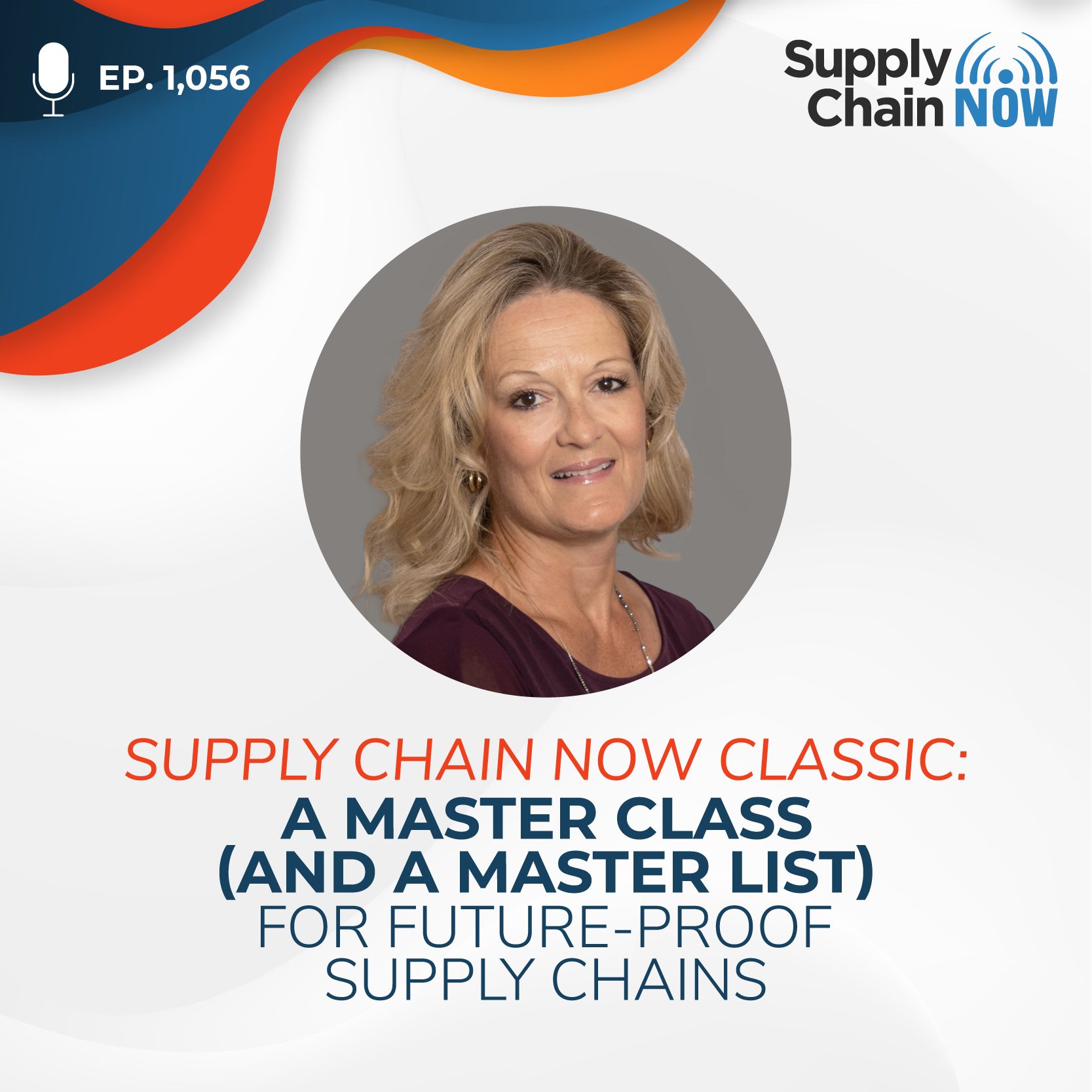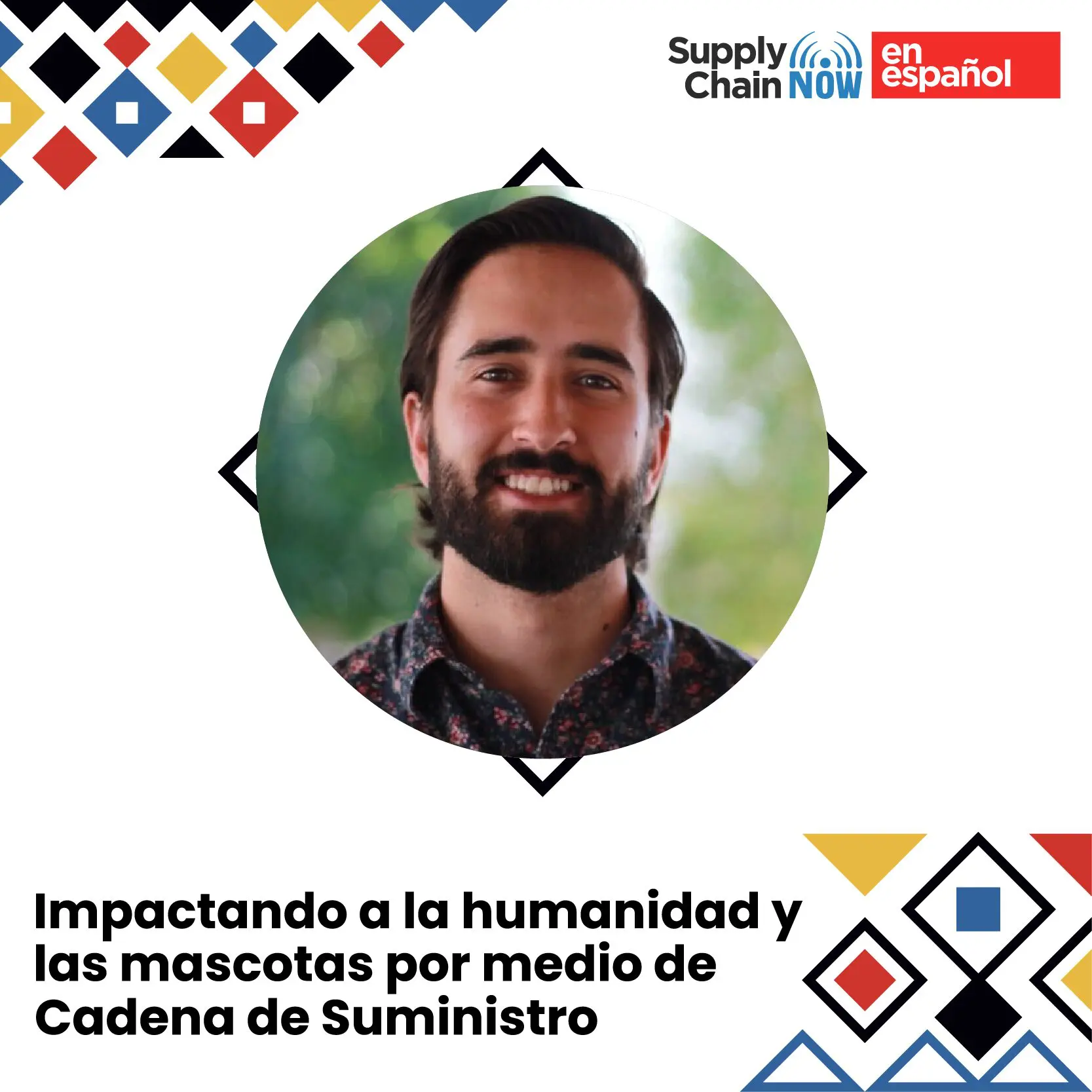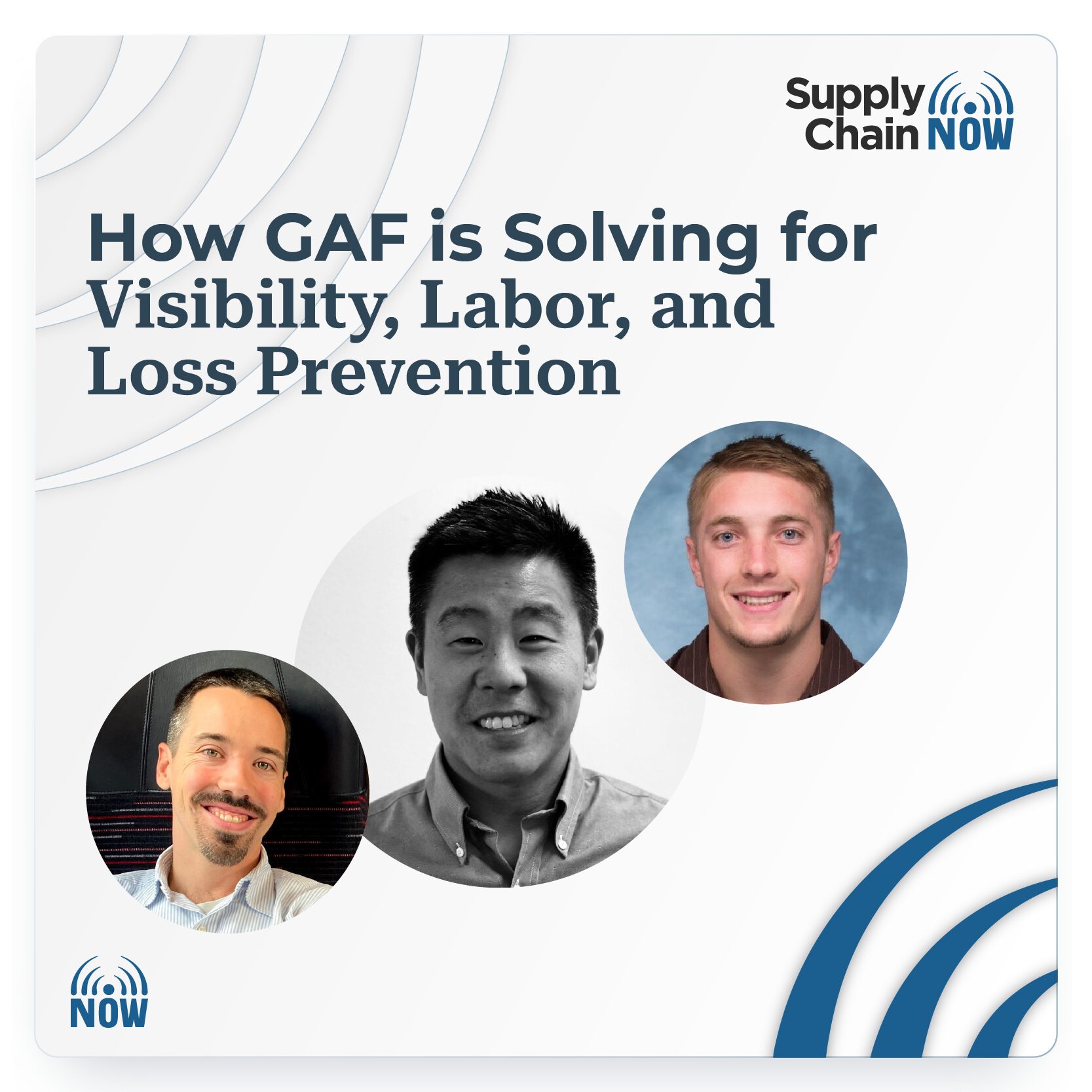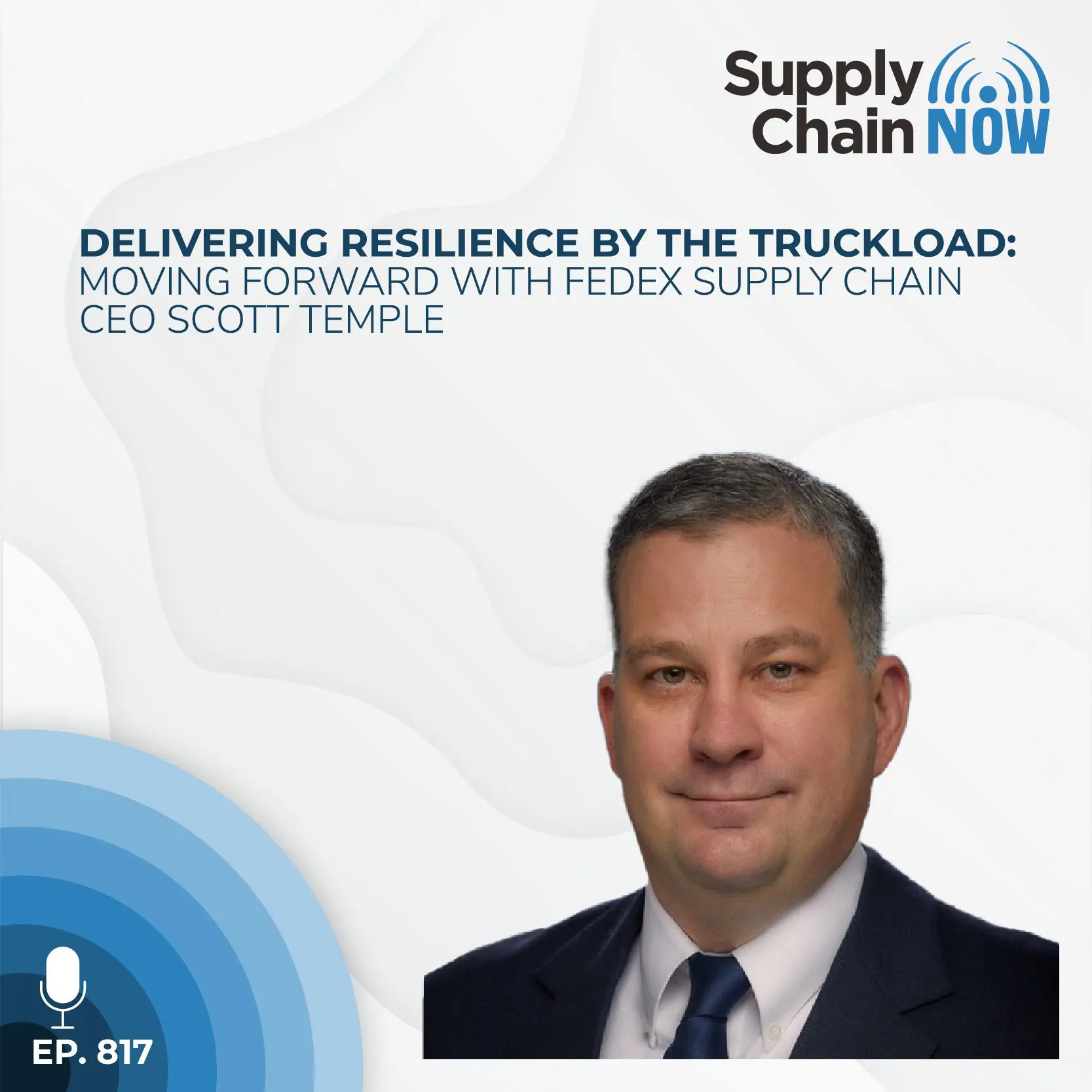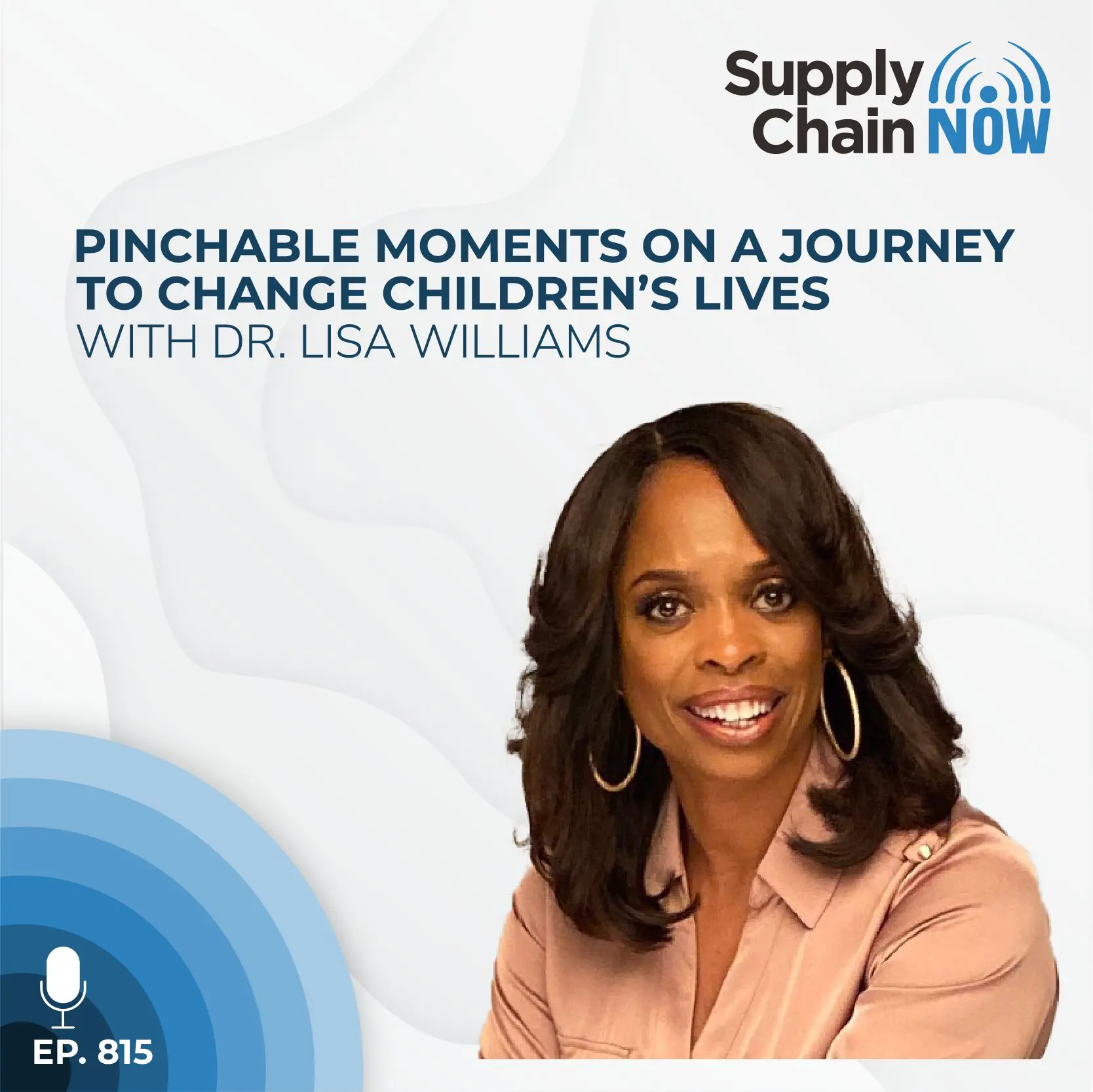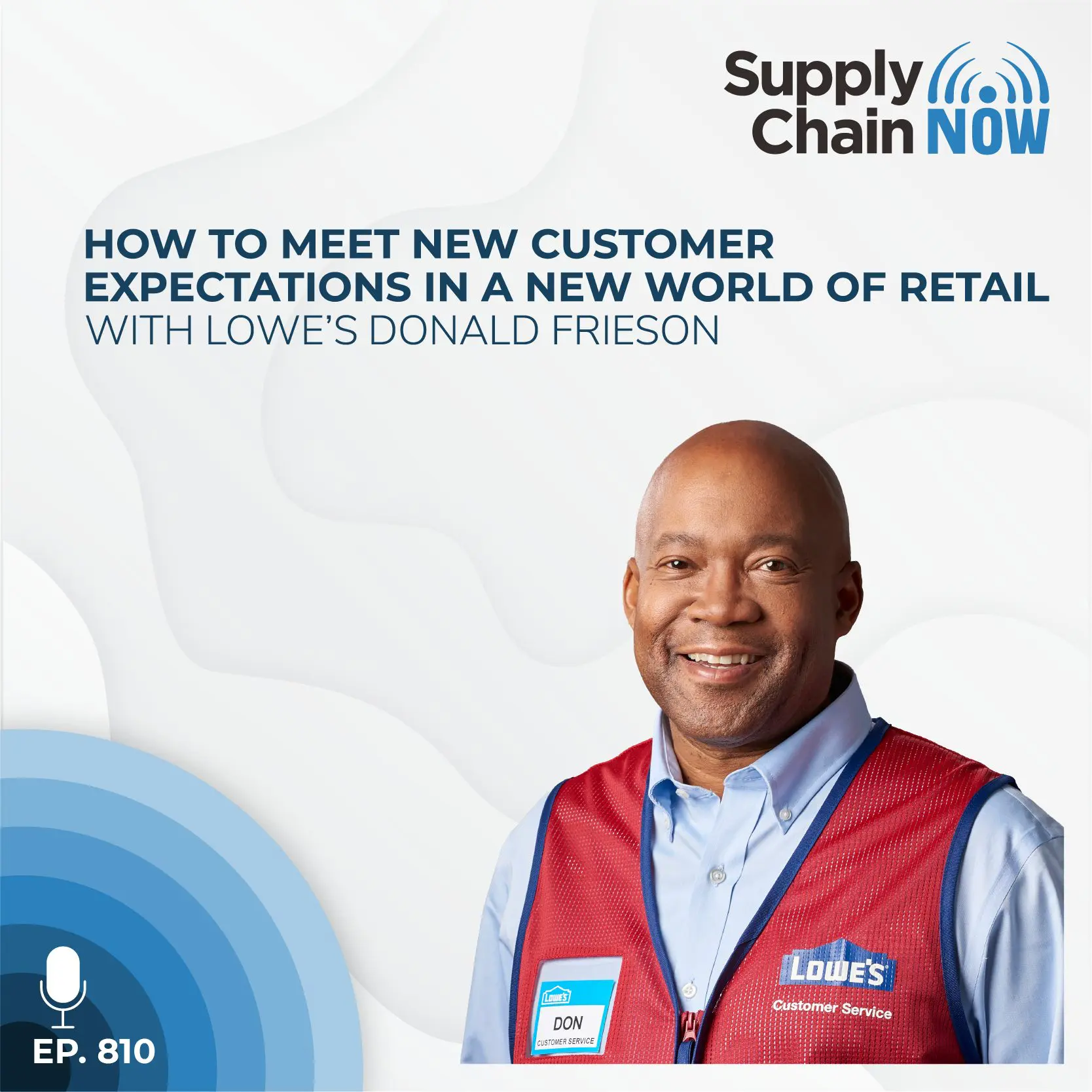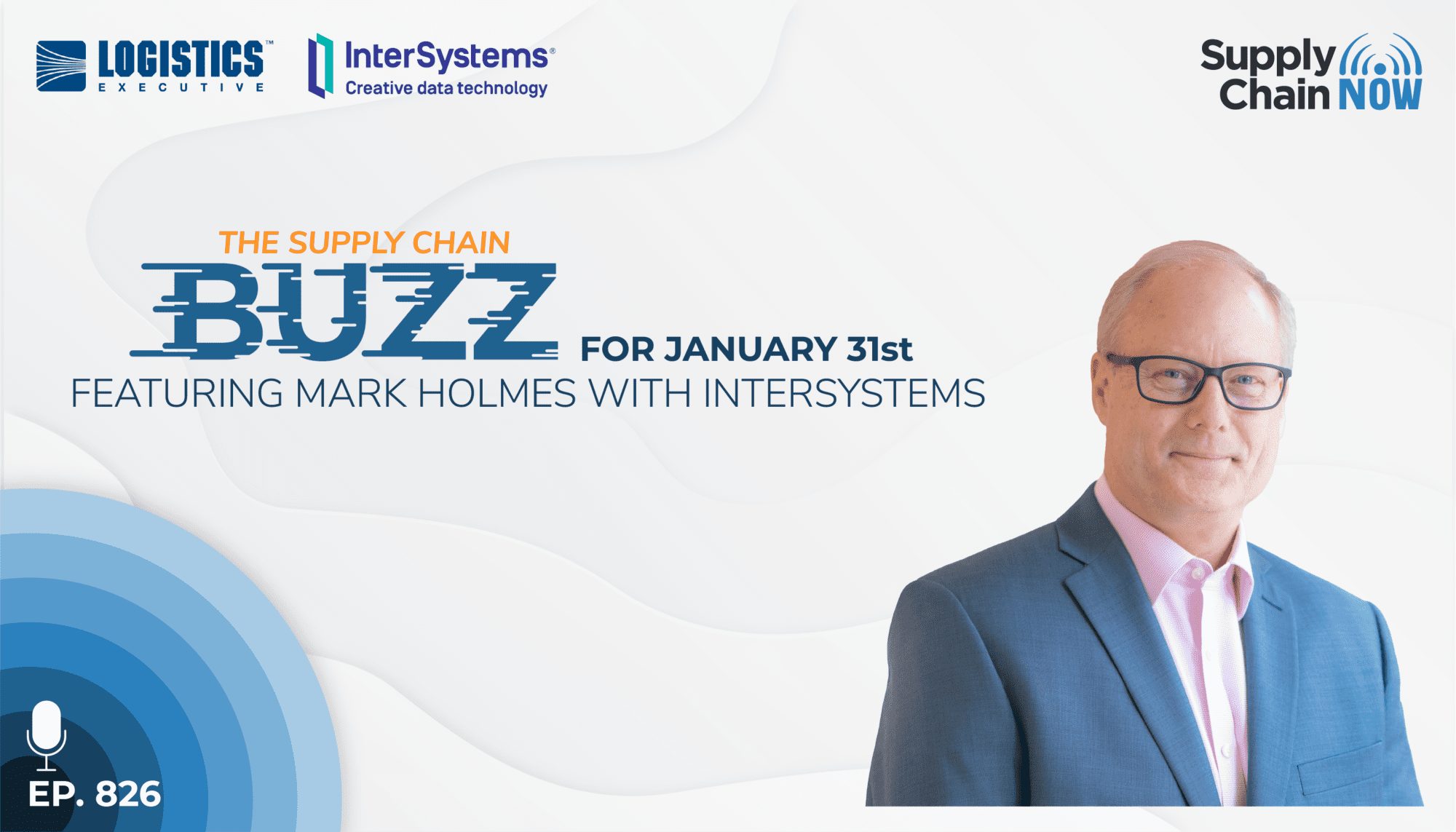
How do we make our supply chains not only more real-time but make the data more accurate and useful so that you can create intelligence in the next steps to be able to optimize your decisions?
-Mark Holmes, InterSystems
Episode Summary
As supply chain disruptions continue to challenge global commerce, new strategies are popping up around the globe, including a shift to air cargo and the rise of the professional stock hunter. Join Scott and special guest host Kim Winters of Logistics Executive Group as they discuss the headlines of the day, the promise of a smart data fabric architecture and the need to rebalance the supply chain with InterSystem’s Mark Holmes.
Episode Transcript
Intro/Outro (00:00:03):
Welcome to Supply Chain Now, the voice of global supply chain. Supply Chain Now focuses on the best in the business for our worldwide audience, the people, the technologies, the best practices, and today’s critical issues, the challenges, and opportunities. Stay tuned to hear from those making global business happen right here on Supply Chain Now.
Scott Luton (00:00:31):
Hey. Hey. Good morning, Scott Luton and, special guest host, Kim Winter here with you on Supply Chain Now. Welcome to today’s livestream. Kim, how are we doing?
Kim Winter (00:00:39):
Hey, Scott. [Foreign language] from Abami evening here in Dubai this evening, about 80 degrees Fahrenheit, and having a good time. And just a special hello to everybody on. Happy Lunar New Year in Asia.
Scott Luton (00:00:54):
Excellent point. And, Kim, it’s so great to reconnect with you and have you here on The Supply Chain Buzz. I think this is your first time on The Buzz. So, Kim always delivers. He’s much like the postal service here in the states, always delivers. And, of course, you’ve got an award-winning podcast, leading Logistics Executive Group. We got you up in the middle of the night there in Dubai joining us to bring your goodness here at The Buzz. So, I’m convinced you’ve got a couple of clones to help keep everything moving. Is that right, Kim?
Kim Winter (00:01:25):
Total pleasure. Yeah, absolutely. Absolutely. Help is everywhere, you just can’t see them.
Scott Luton (00:01:31):
Wait. Kidding aside. Great to have you here. But, folks, it’s The Supply Chain Buzz, every Monday at 12:00 noon Eastern Time, we bring some of the leading news of the day across global supply chain. As Kim’s appearance here proves that out. We’ve got special guest – times two today – Mark Holmes with InterSystems is going to be joining us about 12:25 Eastern time. So, buckle up and get ready, he’s going to be talking about, amongst other things, the supply chain spider web. Is that intriguing or what, Kim?
Kim Winter (00:02:01):
That sounds pretty exciting to me, Scott. Let’s bring it on. Tarantula, hopefully.
Scott Luton (00:02:06):
Supply chain superheroes here, certainly. We’re going to say a hello to a few folks that are tuned in, in just a second. But before we do, let’s share a couple of quick things we’ve got coming up, Kim. Of course, we’re talking about supply chain data a lot over the next couple weeks. We invite folks to join us for our webinar with our friends at Infor tomorrow, the 1st of February – already, Kim, the 1st of February, 2022 – join us at 12:00 noon Eastern Time as Karin and I chat with Monica Truelsch with Infor. You can learn more about that via the link in the show notes.
Scott Luton (00:02:42):
And we mentioned, Kim, Mark Holmes – well, guess what? – we got a little bonus for folks today. Not only are you going to hear him here at the bottom of the hour – I think that’s roughly about 12:25 p.m. Eastern Time – but equally as important, he’s going to be joining us on a webinar next week, February 11th, talking about Data at The Heart of Supply Chain Resiliency and Agility.
Kim Winter (00:03:06):
Yeah. I got to be up for that one.
Scott Luton (00:03:09):
Oh, man. Yes. Yes. We have to wake Kim Winter up once more to join us for this webinar on the 11th. Let’s see, what else? The Reverse Logistics Association, their 18th Annual Conference and Expo. Kim, you ever been to Las Vegas?
Kim Winter (00:03:25):
I’ve been to Las Vegas. I love it. I’m ready to come back anytime.
Scott Luton (00:03:30):
We’ll have to go together next time. But we’ll be there, Amanda and I will be there, next week as we’re interviewing some of the movers and shakers across this really important space that’s only gaining in its importance, returns management, reverse logistics, you name it, that helps power the eCommerce industry that we all love, for sure.
Scott Luton (00:03:50):
And then, finally, our 2022 Supply Chain and Procurement Awards Nominations are open, Kim. Folks, we’ve got nine different categories for both companies and individuals. There’s something for everybody. It doesn’t matter where your company is, you are able to nominate. And you can learn more at our website, supplychainprocurementawards.com. And, Kim, get this, the best part is we’ve got this nomination fee, all that gets donated to our friends at Hope For Justice, a powerful nonprofit doing some big things in the fight against modern slavery and human trafficking. So, looking forward to that.
Kim Winter (00:04:27):
I’m nominating a couple of people from the Asia Pacific basin just to get the donation in.
Scott Luton (00:04:34):
Man, you know, it is always set around here, if you want to get something to happen, if you want to make it happen, get Kim Winter involved. You always bring it. But let’s say hello to a few folks here. We’ve got Rajesh tuned in via LinkedIn from India. Great to have you here, Rajesh. Let’s see here, Zohaib is tuned in from Kuwait also via LinkedIn. Let’s see, James Doyle – you may know James – tuned in from Dubai.
Kim Winter (00:05:05):
I was with James this morning. He was hosting an ITP media event, a three hour roundtable, and I was sitting right next to him. There you go.
Scott Luton (00:05:13):
Well, James, thanks for staying up with us here, and looking forward to your perspective as we get through the conversation. Eugene from Kenya. Hello, Eugene – tuned in via LinkedIn. Great to see you here. Have you ever met Dr. Rhonda, Kim?
Kim Winter (00:05:29):
I don’t think I have.
Scott Luton (00:05:31):
Oh, you got to. She is doing some wonderful things from a wellness and a work-life balance perspective in supply chain. So, great to see you here, Dr. Rhonda Bompensa-Zimmerman. Ehsan is tuned in from Iran. Great to see you here, Ehsan, via LinkedIn. Kumar is tuned in. Roger Carr from the upstate of South Carolina. Roger, I’m surprised we didn’t get a weather report. But, I don’t know, Kim, we’re getting lots of snow here from what –
Kim Winter (00:06:01):
[Inaudible].
Scott Luton (00:06:03):
They’re calling it the –
Kim Winter (00:06:08):
The big fruit.
Scott Luton (00:06:08):
– bomb blast or snow bomb or something, I don’t know. But, Roger, hope this finds you well. Great to have you back. Tom Valentine, old TV is tuned in. He’s in the Atlanta area. A dear friend of the show. A mover and shaker out in supply chain. And you know Darryl, Kim?
Kim Winter (00:06:26):
I sure as hell do. I know him very well. I’ve known him since 1989.
Scott Luton (00:06:33):
Darryl, it’s been too long. Great to have you here today and looking forward to your contributions. And finally – I know we can’t hit everybody – but Helmut is back with us. And, Helmut, it’s always good for wonderful POV and perspective as we work our way through the topics of the day. Great to see here from France via LinkedIn.
Scott Luton (00:06:52):
Okay. So, Kim, we’ve got to get down and do our work before we have our featured guest popping with us. Are you ready to get to work?
Kim Winter (00:07:02):
Yes. Bring it on.
Scott Luton (00:07:04):
Let’s do that. So, I want to start with a little factoid – you know, we’re big fans of all types of trivia, but especially supply chain trivia – and I’m going to start with this little factoid here. Check this out, this is from our friends at Wall Street Journal – for anyone that might be listening to this in a replay in the future – according to the IATA – which was pointed out last night, IATA. It’s IATA – the International Air Transport Association, 18.7 percent is the growth in air cargo traffic worldwide in 2021 over 2020. And not only is that an increase year-over-year, but that’s a 6.9 percent gain over, even, the pre-pandemic measure in 2019. So, air cargo is hot, Kim.
Kim Winter (00:07:53):
Off the rails. And, actually, when you’re talking about Darryl before, Darryl and I used to be in the airline industry in the 80’s in New Zealand. And Darryl is very heavily involved in consulting in the space. I’m surprised if we don’t see some more numbers coming out from him. But, look, it’s off the hook. Air cargo, of course, as well as the sea carriers, have been benefiting hugely during COVID, and everybody is scrambling for aircraft at the moment.
Scott Luton (00:08:26):
Yes. Well, that is a great segue, Kim. An unplanned segue to, really, our first story. So, you all remember the 18.7 percent? As Kim mentioned, we’re going to see a lot more about air cargo in the months ahead. So, check this out, according to CNBC, Airbus is betting big on air cargo. In fact, it’s creating its own air cargo line that it’s going to call Airbus Beluga Transport. So, when they launched that Beluga aircraft, I don’t think Beluga was part of the name. The market coined that and so they just embraced it, I believe that’s how that story goes.
Scott Luton (00:08:59):
Kim, the air cargo market stayed steady, as we were just talking about, through the pandemic with many things, influx – as we all know, we don’t have to rattle them off – certainly port traffic. But because of all that, shippers have turned more and more to air cargo to get around delays. All those certainly paying a lot more forward. Now, Airbus has older Belugas – I didn’t realize they started producing Belugas back in the mid-90’s. The initial one was based on the A300 wide-body aircraft. And the newer ones, the Beluga XLs – that’s a hot phrase lately – are based on the A330s. As I mentioned, they’ve been producing since the mid-90’s. Air Beluga Transport, Kim, will focus on large cargo for the space of oil and gas in military sectors. So, your thoughts on what Airbus is doing.
Kim Winter (00:09:52):
Well, it’s almost a natural progression, I guess, Scott, because the capacity issue has just gone through the roof. The demand has not been able to be met by supply and air capacity. We talked about sea before as well, we know it’s happened to sea cargo rates, both on reefer and on normal containers they use. But back to the air, I mean, rates in the air gone 300, 400, 500, 600 percent during COVID just because of the increased demand. And we can talk a little bit today, I’m sure, with Mark about why that is. Natural progression, those aircraft are they comparatives to the Antonovs? Of course, with the big wide aircraft and they’ve got plenty of capacity.
Scott Luton (00:10:36):
Yeah. Agreed. And, man, the things you could fit in a Beluga XL – look at this thing. I was telling Greg – you know, so Greg was in Kansas City with his Chiefs and the Bengals game, and I texted him and said, “Hey, we got to get one of these Belugas and take the whole team and a studio and then some to a football game.” But it’s amazing.
Scott Luton (00:10:56):
I’m going to share a couple quick comments. Let’s see here, Dr. Rhonda – hey, I appreciate these comments – “I’m ready to listen and learn today.” She says, “Thank you for all the insightful experiences with you and your guests and the team.” You are welcome. But thank you. I really appreciate all the folks that show up in the cheap seats, the skyboxes, and share comments. And I have enjoyed your interviews and your streams. So, great to have you here.
Scott Luton(00:11:19):
So, Darryl – right on point, Kim, as you shared – says, “Return of the freighter over passenger capacity.” He says, “They used them to shuttle Airbus wings and fuselage equipment around to assembly lines.” Yeah, you got lots of room for that, right, Kim?
Kim Winter (00:11:35):
That’s it. That’s it. Now, they’re opening them up as such a successful aircraft. I’d be interested to know, Darryl will probably go and find out for us right now how many they’ve got, but they’ll have [inaudible] out there. Don’t worry.
Scott Luton (00:11:46):
Well, it’d be interesting to see how Boeing responds. Of course, Airbus and Boeing are big competitors these days. Now, here comes from a shipper. So, Roger says, “We use air cargo on all overseas medical laboratory supply chain. Worth the extra cost to meet the ever growing demands.” Excellent point there. And, Kim, you may not know Roger. One of the things he does is they process a lot of COVID tests at their operations. So, Roger, thanks for sharing that. Lucy – great to see you – from Dubai. Kim, do you happen to know Lucy?
Kim Winter (00:12:26):
Sure as hell do. Yeah. There’s only about 10 million people here, Scott. So, [inaudible] New Zealand, there’s only five of us. We know everybody and the sheep.
Scott Luton (00:12:38):
So, really quick, Kim, Dubai is a fascinating place, all the innovation, including supply chain, and other parts, other business sectors. It’s really intriguing. How long have you been in Dubai?
Kim Winter (00:12:52):
We set up business here 18years ago, so we came in early. Early business license, and part of our 12 office network around the world. Everywhere, but in the U.S. of A at the moment, Scott, so every other continent. I mean, I was at a nightclub on Saturday night, there were only three nightclubs when we came here in 2004, now there’s 303.
Scott Luton (00:13:17):
Supply chain folks have to have a place to take the stress off, right?
Kim Winter (00:13:25):
Yeah. But explosive growth, Scott. And a really well-organized city. And we’ve done very, very well with COVID, with central direction from the government, lockdown early, and major, major inoculation. So, we’re doing real well and have done right away from [inaudible].
Scott Luton (00:13:42):
Excellent. Excellent. Well, who knows? We’ll have to do a supply chain buzz episode from Dubai at some point soon, but great to have you here. And, Lucy, again, welcome. All right. We got to keep on working. Our bosses are really tough on us here. Kim, I want to talk about this story from CNN Business. So, consumers, as you might expect, are finding more and more ways to get around these ongoing supply chain challenges. And unsurprisingly, of course, they’re going to use more and more tech to do just that.
Scott Luton (00:14:17):
So, Kim, check the story out. You’re going to learn some things, I bet, because I learned some things as I was diving a little deeper. So, the modern day consumer, as we know, is savvy and enterprising. And when we, as consumers, encounter obstacles to getting what we want when we want it, of course, we’re going to find work arounds. The inventory challenges in recent years – get this – have created an army of what they are calling professional stock hunters. Professional stock hunters. So, if you’re looking for a PlayStation 5, or shirts, or face masks, or I should say Nintendo Switch for my son, Ben, who’s a big Switch fan. And he’s gotten into Fortnite now, Kim. But I’ll save that story for later. But these hunters have set up platforms to offer market Intel. Some use social and platforms, like Substack, to communicate their findings and their data. Other hunters have created apps, like StockDrops and HotStock, the article from CNN Business speaks to.
Scott Luton (00:15:13):
And that leverages not only the business partnerships, those organizations, those apps, create with the retailers, but, of course artificial intelligence to share inventory Intel with consumers. All these resources helping consumers battle what has been deemed – get this – Grinch bots. Grinch bots, I’m not making this up. Automated buyers of certain products that allow some folks to manipulate and make money off of limited availability of products. So, I’m going to turn it over you, Kim, but I’m going to start with I wonder how Dr. Seus would take one of his most popular characters being used to describe bots. I don’t know. Kim, your take?
Kim Winter (00:15:56):
Really, it’s right out there, isn’t it? I mean, it’s all about data, Scott, as you know. And, you know, five years ago, everybody was talking about you need to digitize your supply chains. Well, now, if you haven’t digitized your supply chain, then you’re probably on your way out of business. So, it’s really has been a massive change. But to flip that, obviously, getting to the core of inventory, following supply capability, especially consumer demand, is the name of the game.
Kim Winter (00:16:28):
And, as I said, the ITP FireEye, which is a software company in India, sponsored this ITP media event I was on this morning on a channel. And what we’re finding out now is that we’ve got mobile inventory and fulfillment to the level through data, through predictive data, and analytics. So that within a few minutes now, not only within a day or an hour, you’ve got somebody turning up with whatever it was that you’ve ordered. So, you’ve got mobile inventory in vehicles and on people for consumer electronics. So, it’s just going right off [inaudible].
Scott Luton (00:17:04):
So cool. It’s how you’d expect Buck Rogers, maybe, to be running their supply chains or something. It’s fascinating. It’s an intriguing time to be in supply chain, challenges and all, and to hear the innovations that’s coming out of this. And some of this, as we mentioned, Mark Holmes with InterSystems will be joining us in about eight, nine minutes to speak to some of this, including the supply chain spider web. So, I’m looking forward to that.
Scott Luton (00:17:32):
All right. In just a second, I’m going to get some of your observations on the talent side, the labor market side. It’s also fascinating right now to see what’s going on there. But before we do, Jose is tuned in from Southern California. I’m getting this wrong, Jose, but it’s like Coffee Talk with Logistics or something. Jose, drop that link in there. I love your weekly livestreams focused on the wild world of logistics.
Scott Luton (00:17:56):
Let’s see here. Also, I wanted to point out, Darryl’s posing a tough question to you here, Kim. Let’s see here, what do you make of today’s announcement that the UAE will introduce its first tax on corporate profits for non-free zone companies from mid-2023? What’s this going to do – he says – to the UAE, which is a gateway hub between Asia, Europe, and Africa? Your thoughts there, Kim?
Kim Winter (00:18:39):
I think five years ago, people had said that the UAE – which has been built at spectacular pace width from depth over the last 20 years, probably one of the fastest, if not fastest growing city in the world – was going to introduce tax. A lot of people wouldn’t have come here, but the advantages of what the UAE has built in the middle of this region and as a global hub – I personally think there’ll be a lot of debate about this tomorrow because it just broke today – this has been a tax free haven globally. I think it’s going to go okay. You know, companies are here for the right reason. It’s one of the world’s biggest logistics hub, road and now rail. And I think it’s going to go okay. I saw it and I had a look at it and I said, “What’s it going to do to affect us?” And, you know, I think it’s fine. All the big companies in the world are here, and lot of regional companies, business to be done.
Scott Luton (00:19:35):
Right. Well, we will keep our finger on the pulse. I appreciate y’all bringing that late breaking news for the UAE and we’ll see how it plays out. As I mentioned, I got Jose’s show wrong, CoffeeBreak Logistics. So, y’all got to check that out on LinkedIn, always great conversations, great guests. Dr. Rhonda says, “This consumer -” meaning herself “- wants to know what’s going on with pasta shortages. My husband lost a bet with me and supposed to make me Fettuccine Alfredo. He’s willing to pay whatever. He’s not a cook – this is a first – so you can mark the price up and he’d never know.” I love that, Dr. Rhonda. We will keep our finger on the pulse of that bet and see when your husband makes good for. But I’m not sure – and, Kim, I don’t about you – I haven’t seen any pasta shortages where we live. Anything on your side of the park?
Kim Winter (00:20:33):
No, we’re well stocked here. There’s actually no shelves be short of anything in this part of the world. And an actual fact, when COVID struck, the governments right across the Seven Emirates and the Federal Government here went full on into food security. And there’s been billions spent in the UAE to manage and make sure the food security once that glitch occurred in the early COVID period. So, you know, it’s all about food security.
Scott Luton (00:20:58):
All about food security. Good stuff there. Okay. So, final question, and I want to pose this to you, Kim, before we bring on our guest here today, Mark Holmes with InterSystems. Clearly, one of the big things that Logistics Executive Group does is help organizations find talent. So, you and your team have got the finger on the pulse when it comes to the talent market globally. So, what’s a couple observations you could share with our listeners about what you’re seeing here as we get through the first month of the year?
Kim Winter (00:21:27):
Sure. Thanks, Scott. Okay. So, 22 years in executive search, pretty much everywhere around the world, even a little bit in the U.S. even though we’re not there, one word, explosive. Logistics and supply chain and, any recruiters, or anybody to do with HR inside of organizations, government, private sector, whatever, will agree with me, I’m sure. Let’s see if they do with any comments. It is explosive. There has never been such a high demand for talent. But it’s not your normal traditional supply chain logistics transport type requirements. Everything’s going digital. Everything’s going technology. Everybody’s going data. It’s the e-commerce drive, of course. And what’s been driving that in places like Australia, for example, they’ve been paying people so much during the COVID. I think they said it was 300 billion that the Federal Government today said we’re not spending anymore money. But people have been going out and spending that on goods because they can’t travel. And I’m sure [inaudible].
Kim Winter (00:22:27):
So, demand is high right across e-commerce, soft skills. People are more now looking at the millennials because they’re much quicker on the tech, they’re much quicker on decision making – the baby boomers like me. And, effectively, what we’re seeing is this massive swing, 30 percent maximum of the talent we were recruiting before COVID would’ve been in the area of tech and that area of the supply chain and data and eCommerce. Now, it’s 70 percent. And it’s just a massive step change. So, demand is high. I don’t know of a market, honestly, anywhere in the world where there is not a shortage of talent right across the supply chain. I mean, you guys have got your tracker problems, you’ve got all sorts of issues in terms of retail, whatever, that’s being played out right across the world.
Scott Luton (00:23:21):
Right. You know, to see some of the dynamics going on in the talent marketplace, whether you’re from The Great Recession to the challenge of bringing people to supply chain, maybe them or their parents have different preconceived notions of the opportunities in supply chain. And as you and I both know, our industry globally has got to compete for the best of the best to do some of these things that we’ve already talked about today, and some things that we’ll be talking about with Mark, to drive this innovation to meet the consumers where they want to be met, to power all aspects of supply chain. So, I bet you can write a book about what you’ve been seeing in the last year or so.
Kim Winter (00:24:05):
Plenty people are, and I might contribute a chapter here and there. But I’ve done that before and it’s too hard. So, at the end of the day, the big message is that, if there is such a thing as a silver line as something as disastrous as COVID globally, it is the fact that logistics and supply chain, as we know, has a much high profile. Now, a lot more people understand the industry that we’re in, which is about 30 percent of any given economy. And young people are being attracted in a bigger way than we’ve ever seen in the last 30, 40 years that I’ve been in it.
Scott Luton (00:24:36):
And we’re going to wrap there with that good news. That is certainly some of the great news, the pulling people in, driving innovation, the industry is going to be stronger as we’ve gotten through this global storm together. So, we look forward to more updates from you on the labor side of things.
Scott Luton (00:24:56):
Really quick, Gene Pledger, good morning to you. I think you came into Atlanta last week and right back out, back home to, I think, Northern Alabama. I hope this finds you well and good to see you. Dr. Ronda says – back to pasta – “We’re still experiencing pasta shortages in Arizona. Lots of disruptions continue.” True.
Scott Luton (00:25:18):
And I think that is a great segue for our guest here today. We’re going to be talking about some of what we’re seeing in grocery stores and beyond. So, Kim, are you ready for me to introduce our big guest here today on Supply Chain Buzz?
Kim Winter (00:25:31):
Bring it on, Scott. Let’s bring Mark on.
Scott Luton (00:25:33):
Let’s do it. Let’s buckle up. Let’s welcome in Mark Holmes, Senior Advisor of Supply Chain for InterSystems. Hey, Mark. Good afternoon. How are you doing?
Mark Holmes (00:25:44):
Good. Very good. I love that swoosh.
Scott Luton (00:25:47):
You know, it’s the small things in life as that swoosh has certainly illustrated time and time again with our team. But great to see you here today. I have enjoyed our prep conversations as we kind of share what we’re each seeing in the industry. And what we’re talking about before we went live here today, Kim, is football games with the weekend here. American football games got everybody’s attention here in the states. Mark, the Bengals and the Rams have broken through, huh?
Mark Holmes (00:26:15):
Yeah. I tell you, I watch, obviously, both games. And Cincinnati, I have to give kudos to them. That was a big turnaround. And I think it’s going to be a tough fight, though, in the Super Bowl.
Scott Luton (00:26:28):
Agreed. Agreed. Now, Kim, the Super Bowl here in the states is coming up, big global event. Do you have any traditions on your end, Kim, for watching Super Bowl?
Kim Winter (00:26:40):
Yeah. Well, I was playing rugby in the early ’80’s in San Francisco and nearly got snapped in half by a good iron player, so I ended my professional rugby career. It was fantastic sport, really good. But I’ve been to the Super Bowl down in New Orleans and I follow it very, very closely, and see all the news about retirement of your greatest player at the moment. But before you guys get too far into the American football, let’s not forget about the fantastic Australian Open that took place yesterday. Nadal, one of the greatest games ever, five-hours-30-minutes, against Medvedev. And that was unbelievable. I was at a bar over here and sort of stick around for five-and-a-half hours. So, that’s another story. But then, we had Ashleigh Barty, Australian woman, been one of the number one for about two years, and won the Australian Open. One of only three women to win on all three services. Very insane.
Scott Luton (00:27:43):
Wow. Records being set right in front of us. And we’re going to have to hear some of your rugby stories later, Kim. But, Mark, going back to football, going back to the Super Bowl. Big global event, folks are going to be stocking up for their Super Bowl parties. But according to USA Today, we’re finding out that there may be some disruption for our Super Bowl parties. Is that right?
Mark Holmes (00:28:11):
Yes, indeed. You know, this article really intrigued me in a very good way from the standpoint of the whole aspect around data. But what we saw was that they’re talking about the shelf continues to have shortages. And they were talking about – very interesting – a perfect storm of which I know we’ve all been dealing with, but it continues, and in some ways enhanced around weather and labor shortages. In fact, Kim was just talking about labor shortages, and production supply continues, port congestion continues. And what I thought was interesting about the articles is all the different impacts that it’s having on baby formula and getting baby formula. Cream cheese is an issue, chicken tenders, we just heard pasta. We have to add pasta to the list. Aluminum shortage. Now, aluminum shortage is causing an issue for there’s a shortage in beer.
Scott Luton (00:29:11):
Okay. Hang on a sec. Time out really quick. Because as we know, man, when the beer supply chain gets messed with, the world stops for at least a second. We can’t have that, can we, Mark?
Mark Holmes (00:29:21):
No. No. In fact, I’m booking a flight to Dubai, because it sounds like maybe the shortages aren’t there.
Scott Luton (00:29:29):
If you see Kim, for anyone listening, he was like, “Shh. Don’t tell anybody. It’s our little secret.”
Kim Winter (00:29:34):
Keep going to Australia. Keep going to Australia.
Scott Luton (00:29:38):
So, all kinds of disruptions continue to play out. And you named a bunch of the products that it’s impacting here, there, and everywhere. What is being done about it? What do you think supply chains are doing about it to remedy these issues?
Mark Holmes (00:29:56):
Yeah. Kim did talk about it, too, it’s a data play. It’s a huge data play. And there’s tons of data out there. And when you talk about all these different types of baby formula, the cream cheese, the beer, that’s a huge ecosystem around the world. There’s thousands and millions of transactions that are taking place. So, it’s like, “How do we bring all of that together and manage with actionable insights disruption to mitigate disruption?”
Scott Luton (00:30:26):
Really quick, when you say actionable, that makes me think of the comment Kim made about different generations of talent making decisions faster. But to your point, Mark, they got to have insights and data, not all the noise, but actionable information at their fingertips. Is that right?
Mark Holmes (00:30:48):
Yeah. And, in fact, you used a good term in the very beginning about a spider web, right? So, we do what’s called a Smart Data Fabric Architecture. We use that. So, Smart Data Fabric Architecture, it’s like a connected web. You know, how do we bring in all of this data from all these disparate data sources and be able to harmonize and normalize that data, but then use within the platform? We use embedded analytics with AI, and ML, and BI, and then embedded interoperability to deal with all those different workflows to then create intelligent actionable insights.
Scott Luton (00:31:26):
All right. So, Kim, I’ll get your take. When I hear harmonize and normalize, it makes me think I’m listening to a Stevie Wonder tune, the iconic Stevie Wonder. But I love those words, we can use more harmony everywhere, but certainly in supply chain. Kim, your take on what Mark is sharing?
Kim Winter (00:31:44):
Yeah. I mean, this is the thing, what we are seeing, we’re seeing things from a lens of an executive search firm, but also with the consulting side of our business, corporate advisory, and M&A. And what we’re seeing around the M&A, and most particularly globally, is that when companies are going in to do their DD into the data warehouse, it’s now just how advanced and how integrated is the dataset, it’s a software that organizations have got, how quickly can they integrate.
Kim Winter (00:32:19):
We’ve talked previously, Scott, about the cold chain and the two big American companies, Americold and Lineage Logistics, rolling up the entire world’s cold chains at the moment. And they’re going great gods. I’m happy to work with those organizations, by the way. And at the end of the day, the speed to acquisition by companies, like Lineage in particular, is all about how do they integrate the data and how can they move so quickly.
Scott Luton (00:32:44):
So, Mark, I’m going to get you to respond to that, because we’re talking about powering supply chain. But Kim is kind of adding this wrinkle of, you know, fueling M&A work, and acquisitions, and you name it. Speak to that a little bit, Mark, if you would.
Mark Holmes (00:33:00):
Well, I think if I just keep it from a data perspective within what we can do around actual insights is, I did hear a little bit, Kim, what you just said about real time, because you want to be able to. And earlier you talked about, too, around a talent issue, we can’t get enough of the talent that we need, and we hear that so often. And especially with all these shortages and disruptions is causing regional issues on demand fluctuations. And how can we use that whole aspect of getting to prescriptive analytics. So, determine in real time what’s happening now and use the software itself to be able to leverage that prediction and that prescriptive capability to understand where there is going to be disruption, and how to mitigate it, and turn that into intelligent actionable insight.
Scott Luton (00:33:54):
I love that. Okay. I got to bring this comment in, Koray Kose with Gartner is back with us here. I love his POV here. And I think this is him. Y’all hit me in the private chat. And big thanks by the way to Amanda, Chantel, and Catherine for driving the production on the other side. But Koray says, “Created my own supply chain for baby formula made in Switzerland, and sent through Germany to the U.S., from order to delivery three days. My wife’s comment was, ‘Supply chain folks, ah.'” Plus, ordering in bulk, he got a discount. And he changed his 3PL once for lower costs in the last couple years. They must be going through some serious baby formula, Mark and Kim. You must have an army of babies there, Koray. But thanks for tuning in.
Scott Luton (00:34:44):
So, kidding aside, Mark, actionable insights, everything is kicking off data it feels like these days, right? Between sensors and, even, we’ve seen some right there from the store shelves, we’ve got some new innovation where the sensors right from the time you pick a can off the shelf, it’s shooting a sensor back up to the supply chain teams. Fascinating ain’t it, Mark?
Mark Holmes (00:35:12):
Yeah, it is. And, in fact, a lot of that technology, you know, Amazon does that when you go grab and go. And it’s giving you that information of, not only so that you can walk out in a frictionless way – you can walk out the door and it just automatically connects into your iPhone – but what do you do, though, to get the product even to there? It’s efficient at that point, no doubt. But that data, it’s a broader perspective because you’re not going to worry about the rest of the ecosystem of how am I going to replenish that product when it’s being used and being able to sense way beyond that.
Mark Holmes (00:35:51):
And a term I like to use a lot is rebalance. How can I rebalance my supply chain in the most optimal way to be able to meet, ultimately, that on-shelf availability, or we hear so much around on-time and full?
Kim Winter (00:36:07):
I think one of the big trends we’ve seen there, Mark – a couple of big things there. Talking to what you just mentioned, there’s one with the likes of the big move by Amazon – and others – as the lead in that space of getting to the micro-fulfillment centers, using data predictive analytics to be able to move much, much closer to the customer to get this whole thing passed overnight into the morning or out in the afternoon, whatever it might be, much, much closer to the requirement of the customers.
Kim Winter (00:36:37):
And the other thing we’re seeing major, major driver on data is the fact that the big carriers, especially the ocean carriers of this massive, massive trend of them, of course, jumping right across the entire supply chain. So, a lot of the sea/ocean carriers now, end-to-end supply chain companies, and using data to be able to make sure they can manage the bookings with limited capacity. And we’ve seen what’s happened in pricing in terms of capacity, but the data is driving that whole equation.
Scott Luton (00:37:08):
Excellent point. Your response, Mark?
Mark Holmes (00:37:11):
Yeah. Actually, I was just going to jump on that. Very interesting, you know, we’re working with – which just became the largest container company in the world – and to your point, exactly is the reason why we’re working with them is the whole aspect of supply and demand forecasting. I mean, you can imagine being the world’s largest leader, the amount of transactions that are coming in, and knowing when it’s coming through the ports, and knowing for every single customer helping the end customer really manage their inventory. That’s what it’s all about is that end customer being able to manage. So, ultimately, that shelf is filled with the product that they need on-time and full down to item level.
Mark Holmes (00:37:53):
And, again, it’s all of the data play, how can you really create the most simplistic integrated platform that’s going to take all of that together. We talked about that ingestions of data, harmonization and normalization, embedded analytics, and embedded interoperability and workflow, all together, and then be able to accelerate what time to value, how can we do something quickly in the environment that we’re in now.
Scott Luton (00:38:21):
Mark, you paint such a pretty picture. It’s like supply chain poetry. Really quick though, I got one last question because I want to shift over to an item we haven’t rattled off just yet. The supply chain spider web, is that something supply chain superheroes with capes and costumes might play in?
Mark Holmes (00:38:45):
Absolutely. And it goes back to exactly what I’ve been talking about, the spider web is a connected web. And that’s exactly what we do, that whole Smart Data Fabric aspect of what we’re doing, where we implement using that architecture and technology with our data platform. Using exactly that connected web of bringing those four capabilities that I’ve talked about together of making those real time intelligent decisions that we call actionable insights to impact, ultimately, within manufacturing or the end customer.
Scott Luton (00:39:23):
I love it. All right. So, it sounds like to me that supply chain was doing metaverse before metaverse became a thing a little bit there.
Mark Holmes (00:39:31):
That’s right. That’s correct.
Scott Luton (00:39:33):
All right. Really quick, a couple comments here. Hey, Marta, thanks for tuning in via LinkedIn from Bulgaria. Great to have you here. We look forward to any of your observations. Eyhab, it is interesting stuff, isn’t it, what Mark and Kim and we’re all chatting through? It’s fascinating time. And Dr. Rhonda speaking to what both of y’all are sharing. And, Mark, probably the Smart Data Fabric, yes, that is uplifting. And it brings some serenity now to our daily fights in supply chain.
Scott Luton (00:40:03):
Okay. So, I want to shift gears, so initially, Mark, we were talking about this USA Today story that kind of had some broad reaching implications. I want to chat about a particular supply chain, Super Bowl party supply item. Because we love our guacamole. Man, Amanda makes incredible guacamole. But as our friends at Supply Chain Dive are pointing out, we’re going to be paying more for our avocados this year. Is that right, Mark?
Mark Holmes (00:40:34):
Yeah. You know, it’s not only paying more for avocado, but it’s even a shortage of avocados. Because what we’re noticing from this article that I talked about is that, you know, earlier we just talked about a lot of the geopolitical, so there’s a lot of the environment issues. So, severe drought in California has caused a significant decrease in avocado production. I mean, quite significant. They had one supplier – I was looking at my notes here – that was, like, 4,000 production Q4 when it used to be 387,000 pounds of avocado. So, it’s unbelievable. So, now, what’s happening is to be able to meet customer demand is start doing overseas. So, how do I help to fill that gap by going overseas to avocados?
Mark Holmes (00:41:19):
But the article goes on to say, okay, they have all these containers of avocados coming in, but guess what? They’re sitting out in the ocean because they can’t bring them into the ports. And guess what? That’s got a spoilage factor. Even though it might be refrigerated, there’s still a spoilage factor on it. So, it is a real big disruptive issue, again, that is causing an impact on our potential lack of avocado for the Super Bowl.
Scott Luton (00:41:46):
All right. Kim?
Kim Winter (00:41:49):
Well, I can tell you guys, the best avocados in the world are from Kenya. We get all of our avocados here from Kenya. Let’s get a boat up and running and get it over there. Get a hold of [inaudible] and get a ship over there with those avocados.
Scott Luton (00:42:01):
I love it. Hey, place me an order. I’ll take three boxes or maybe even three pallets. We love it that much around here. Really quick, Mark, you’re kind of speaking to, you know, when you look for different suppliers, different sources to address gaps and address shortages, it can and oftentimes does introduce new complexity into your supply chain, right?
Mark Holmes (00:42:31):
Right. You know, it is all about that complexity because, look, disruption is going to happen. It’s no doubt. And it has been happening for many, many years, but it’s certainly gotten to the point where it’s the worst it’s ever been. Right down to chips, trying to get a refrigerator – for goodness sakes. So, the point is, is that, that disruption, which is going to be there, how do you best mitigate it? And that’s what we’ve been talking about of providing – as we call – the Smart Data Fabric Architecture into data platform that provides all those things we talked about.
Mark Holmes (00:43:07):
We’ve heard so much about the Smart Data Factory or Smart Factory, right? But I call it the intelligent supply chain. How do we make our supply chains, not only more real time, but make the data more accurate and useful so that you can create intelligence in the next steps to be able to optimize your decisions?
Scott Luton (00:43:29):
Yes. Mark, well said. Kim, I’m going to share a couple comments then I’m going to come to you to get your response to some of what Mark is sharing. Couldn’t you just hear Mark narrating a book? He’s got this soothing voice that if you’ve got a headache, it’s going to melt away. So, Mark, you got to keep the good stuff coming.
Scott Luton (00:43:47):
Let’s see here, Greg says – and great to have you here, Greg – ” Communication forward and backward and back up the supply chain trust.” I’m with you, Greg. Trust, you can move mountains when you’ve got trust. I believe this is Koray once again, he says, “Having a database that’s flexible and easy to create and compose fit for purpose applications is key. Mark’s comments spot on. Not every solution comes from the outside.” Excellent point, Koray. Let’s see, Jose says, “Avocados has been a prime commodity for several years. China and the Middle East are great buyers now.” That’s a great point there, Jose. And Rhonda found emojis, lots and lots of avocados there. All right.
Scott Luton (00:44:29):
So, Kim, based on some of what Mark was just sharing, anything else you’d like to add?
Kim Winter (00:44:35):
Yeah. Just the discussion about risk is really important, and we see more and more of that coming from even the executive search side. A couple of our biggest clients globally now are all about trade compliance. When anybody goes to our website or they see us on LinkedIn at the moment, they’ll see all these adverts up there at the moment, trade compliance, laws, regulations, and that’s all about mitigating risk and insurance, all of the sort of things that you know you need to have in the chain.
Kim Winter (00:45:13):
And just as a segue, Mark, are we seeing the end of the terminology supply chain? Are we going to supply web now? Is this the program? Was this the time? Is today the day?
Mark Holmes (00:45:26):
Yes, it is.
Scott Luton (00:45:23):
Let’s do it. So, Mark, kidding aside, I want to go back to a point you alluded to a second ago. And I can’t remember exactly how you put it – it was always so eloquent, Mark -but it it’s about more disruptions coming. We’re not reverting back to how things were in 2019. Some of the things Kim has spoken to, some of the things that organizations are managing and managing different these days, we’re not going back. The genie is out of the bottle. So, speak to that, and maybe the importance of leadership and organizations taking action rather than sitting and waiting for things to never go back. Speak to that, Mark.
Mark Holmes (00:46:07):
No, that’s good. It’s a really good point. In fact, I was making a couple notes down. Look, it’s going to be the new norm, you know, disruption. It’s not like 2022, it’s going to be gone. That’s not going to happen. This is going to go well into 2023. I think it’s like, how can we be best mitigate risk? Which we’ve been talking about, for sure, across industries, whether it’s retail, CPG, manufacturing, financial services, healthcare. So, it’s just something we have to manage.
Mark Holmes (00:46:37):
But there was a comment that I thought that was good is around its applications. So, I think talking about from a data platform standpoint, you don’t want to rip and replace. You’ve got so many applications that are out there that are really meant to do a really good job. I won’t mention names, but around demand and supply forecasting, no one is going to be in the mood and mode in this environment to start ripping and replacing. So, how can we take and just make them more effective in what they’re meant to do, I think is key. So, that was a good point.
Scott Luton (00:47:14):
Hey, really quick, Mark, if I can interject. For folks that are in that rip and replace mood and mode, it just creates more moda, a lot more wasted time, resources, stress, and anxiety. Kim, really quick, I think Mark’s got one more point from the comments. Kim?
Kim Winter (00:47:33):
So, one of the big areas that we are seeing that need in the application for risk management is in the last mile. Because first mile, mid-mile, okay. But in the last mile, which tends to be asset light, but there’s so many people playing in that space. And you’ve got your reverse logistics managing getting the data, analyzing it, deploying it, so that you can minimize what is a big risk on reverse logistics in particular. And we saw many companies struggle to make a profit. We’re seeing huge focus in that area across recruitment with people who have the skills to manage that risk in the last model.
Scott Luton (00:48:12):
Excellent point. Excellent point. Mark, I’m going to come to you, I think you had one more point. I want to share a couple of these quick comments. Rhonda is seeing more cargo theft claims, “It’s been somewhat stressful seeing this occurring.” I’m with you, Dr. Rhonda. TSquared – who holds down the fort for us on YouTube – he says, “New norm? More like the new abnormal.” Yes, that is right, TSquared. And, Kevan, you’d make him smile from cheek to cheek right now by you using that phrase. Greg says, “How much of that material on the ships -” that you are alluding to earlier, Mark “- is going to be obsolete before they unload and then they’re going to scrap it?” Greg, excellent point there. All right.
Scott Luton (00:48:53):
So, Mark, I think you had one more comment to share with us based on comments made.
Mark Holmes (00:48:58):
Yeah. We talked about reverse logistics – I couldn’t agree more by the way, Kim – that whole aspect is massive, especially in the whole omnichannel environment, where you can try five pairs of shoes. I mean, it’s across everything now. So, data is going to be key.
Mark Holmes (00:49:15):
But what I wanted to say an earlier comment, Scott, you were talking about – and maybe it was you, Kim – on top down. So, the top down, look, we’ve been hearing so much about this. I just met with 14 executives from 14 Fortune 500 companies in the last two months, and it was two things which I thought was very interesting. One, it does need to be top down. This isn’t a bottom up or in the middle, that if you’re going to be going through a digital transformation – and this is important – it has to be top down, number one. And it’s all around accelerating time to value, which means you don’t want to start big. Don’t boil the ocean. Let’s pick an area that needs to be improved, go after it, and then expand as you learn.
Scott Luton (00:49:57):
I like that. The rifle approach versus the shotgun is an old analogy that I’ve heard for years. And I think that pinpoint identify it. Don’t try to change the universe, start with a very focused targeted area. Kim, you’re nodding your head. You agree with what Mark is sharing?
Kim Winter (00:50:15):
Yeah. Absolutely. And I just want to jump on a comment there from Mark about the whole issue of data and working up the stream. I mean, you talked about supply chain transformation, Mark. I think we all agree, transformation is a continuous element now. You don’t transform and then stop. You’re just continually moving because the customer, the end user, the buyer, is continually transforming. And Greg White talks a lot about this on Supply Chain Now, all about the customer. So, I think what you’re talking about is the moving feast and needing to have the technology to be able to wrestle with and, in some way, manage what is going on. It’s for sustainable supply web.
Scott Luton (00:51:01):
Well said. Well said.
Mark Holmes (00:51:02):
You have another one.
Scott Luton (00:51:04):
All right. Hey, really quick, I want to just kind of put a period on our last discussion. We were talking a second ago about avocados costing more and maybe to having some shortages, but who knows? Maybe y’all have to reach out to Mark, who can offer up some ways to take action to protect that guacamole supply chain. But, Mark, I want to come back because we’ve got an upcoming webinar. I’m going to pull the graphic back up here in just a second. And we’re fortunate to have you back with us a second time next week, February 11th, Data at the Heart of Supply Chain Resiliency and Agility. Beyond what you’ve already shared here today, what else do you think will be an important message from our webinar next week?
Mark Holmes (00:51:50):
I tell you, I would like to go in next week into a deeper dive. We hear so much around data interoperability, but I really like to go into why is that so important now in supply chain. It’s around business processes and workflow. And I think sometimes we don’t put enough emphasis on that when you try to integrate real time data insight, but connect it into business processes and workflows to make that ultimate decision a right decision. It’s not about making a decision. It’s about making the right decision. We can make decisions all day, but it’s making the right decision that’s going to have the most optimal impact. So, I think next week, I’d like to go into a little bit more around that interoperability. How do those four capabilities work together to ultimately accelerate time to value? Nobody wants to see results six months from now, eight months from now. We want results in three months. Things are moving too quick, way too quick.
Scott Luton (00:52:52):
Well, hey, I’m sold. I’m going to register right now to be part of that webinar next week. But, folks, we make it easy. The link to learn more and to register – it’s a free webinar – is in the show notes. And I encourage y’all to check that out as we dive deeper and have more time with Mark on the 11th. Okay.
Scott Luton (00:53:11):
So, Kim, one final, I want to make sure folks know how to connect – I knew this time would fly by, and it has – with Mark in just a second. But interoperability, some of these things that Mark is talking about, Kim, it’s critical that organizations really are able to execute amongst a plethora of different systems and – goodness knows – spreadsheets these days, right, Kim?
Kim Winter (00:53:38):
Yeah. Absolutely. And I got a classic example for you. The darling of the Australian Share Market, ASX, is a company called WiseTech Global. Started by a guy called Richard, who used to string guitars for AC/DC, a multibillionaire now. And I’ve met him and he lives not far from where my place was in Sydney. And that company is up 45 percent in the last 12 months. And they’re up about 400 percent in the last two, three years. And they’re all about interoperability. They’re all about joining all of the different players, right around customs, all of the freight players, all the government entities, entering supply chain, it’s a Saas model, and it’s a classic example of the need for making it easy for organizations to work through the supply chain and get to the customer.
Scott Luton (00:54:28):
I like that. As Mark put it, not to just make decisions, but make the right decisions faster, because results are to be expected in a quarter or less. And, yes, I think this is Koray, “Interoperability is a complex word.” I’m surprised I’ve gotten it right and haven’t gotten tongue tied several times at this point.
Scott Luton (00:54:50):
But, Mark, we look forward to learning and hearing from your expertise and your experiences a lot more next week on the 11th. But outside of the webinar, if folks want to connect with you and the InterSystems team, up to some really big things, driving change, and you’ve got actionable insights factory, I think, as part of the Intersystem team. How can folks connect with you, Mark?
Mark Holmes (00:55:15):
Yes, we do. I think two ways. I think number one, you know, I’m a big LinkedIn fan and user, so please just reach out to me on LinkedIn. I will respond for sure. And, also, as you can see at the bottom of your screen, go to the www.intersystems.com. Either way, we will get back to you and love to work with you.
Scott Luton (00:55:32):
Wonderful. I appreciate that. How about that? We got a crawler, I had no idea. Well, Mark, a pleasure. I love ripping a couple of headlines and kind of talking through supply chain in a way that I think is really universal. And I really appreciate what you shared here today. Folks, make sure you connect with Mark Holmes and the InterSystems team. And, Mark, we’re looking forward to seeing you next week on February 11th. Actually, I keep saying next week, we got a little more time, about a-week-and-a-half, is that right?
Mark Holmes (00:56:06):
That’s right. Yeah, we have a little time. Thank you.
Scott Luton (00:56:08):
All right. Folks got plenty plenty to register. Stay safe and stay warm up there in the Boston area, Mark. See you soon.
Mark Holmes (00:56:15):
Yeah. For sure. For sure. Thank you very much. This has been great. [Inaudible].
Kim Winter (00:56:20):
Thanks, Mark.
Scott Luton (00:56:20):
All right. Man, I mean it, I think I could listen to Mark just about read through the phone book. I know we don’t have phone books anymore these days. But he he’s got a steady, just a serenity to how he communicates.
Kim Winter (00:56:38):
Uncle Mark. Uncle Mark doing the bedtime story for supply chain.
Scott Luton (00:56:40):
Uncle Mark. I love it.
Kim Winter (00:56:43):
[Inaudible].
Scott Luton (00:56:45):
Well, folks, hopefully, y’all have enjoyed this hour or so. It goes by so fast. Kim, whether it’s the stories we’re talking about or some of the great stuff that Mark shared with us here today, what were some of your favorite things you heard?
Kim Winter (00:57:00):
I think this issue of data was well discussed, and, to me, it’s just dramatic as a global search guy. You know, just so quickly in the last two years in particular with the escalation due to COVID, of the way the whole digitization and transformation of the supply chain has just rocketed ahead. And driven, of course, by people at home with money to spend. They’re not traveling, as I said before, so they’ve got to do something with it. So, they’re buying stuff and there’s not enough capacity around the world to carry stuff around.
Kim Winter (00:57:33):
So, this is what we’re seeing now. Of course, we’re seeing this massive issue of capacity. We’re seeing a massive issue of supply and demand around the human resources, massive shortages everywhere around the world in talent. So, for kids out there or anybody who’s not even a kid that’s wanting to change industry, get into supply chain because logistics and supply chain has become a lot sexier than what it used to. You can see how economies will rely on logistics and supply chain now right across retail, into the healthcare sector, and everything else with COVID, and what have you. So, get in amongst our industry.
Scott Luton (00:58:10):
Agreed. Agreed. Awesome, Kim. Well, I love a lot of what you shared, and Mark. I think it was a very complementary conversation. But in particular, I want to circle back, because it’s not about making decisions. It’s about making the right decisions, and that’s such an important point. And to do that, you’ve got to have the right data at your fingertips, so you can access the right data in time at the right time, so you can make a robust, and right, and beneficial decision.
Scott Luton (00:58:40):
Okay. So, Greg’s been dropping some outstanding comments throughout the chat here today. Greg says, “Take the leap, start small, do not get into that we need to study rabbit hole.” That’s a first for me. That going down the rabbit hole, we got to study this, study that, paralysis by analysis, no, don’t do that. “Trust your -” I think he meant to say judgment. I’m not sure. “Trust your judgment and your people,” which I love what he finished that comment on. Allison, thank you very much for your kind feedback. I appreciate that. I enjoyed Kim and Mark’s perspective here today. Dr. Rhonda says, “We do want to see results sooner rather than later. And how can we facilitate helpful progress?” Outstanding. All right.
Scott Luton (00:59:34):
So, Kim, how can folks connect with you, Darryl, and the heavy hitting Logistics Executive Group team?
Kim Winter (00:59:40):
Sure thing. So, LinkedIn, Kim Winter, Darryl Judd, and he heads up all of our corporate advisory business globally. He’s the MD of that business. And I head up the private search executive coaching. So, yeah, LinkedIn. logisticsexecutive.com is our website. And we’re always happy to help people out and give them information, share research, any suggestions, or answer any questions.
Scott Luton (01:00:03):
And I can echo that. If Kim’s not in your network, you’re missing out. So, y’all connect with Kim. I think we’ve got his LinkedIn profile in the show notes as well. And I appreciate this comment here from Koray Kose, “Great podcast. I always walk out smarter than an hour ago.” Hey, that makes our day around here, Koray. Kim, Koray Kose is one of our volunteer executive judges as part of our Supply Chain And Procurement Awards, and we really appreciate that, and his action towards working with us and out in the industry to eradicate modern slavery and human trafficking. We’ve got such more important work to do. So, Koray, thanks so much .
Kim Winter (01:00:48):
I’m looking forward to those awards. [Inaudible], again, Scott, just because I’ve got the time.
Scott Luton (01:00:53):
Yes. May 18th is the awards itself, the virtual awards. And we may do a hybrid, maybe. But more importantly, the nominations got to be in by March 1st, and that’s supplychainprocurementawards.com. Get those nominations in. It’s open wherever you are. We’ve got nine different categories. And the nomination fees all go to our nonprofit, Hope For Justice.
Scott Luton (01:01:21):
Okay. Big thanks, Kim Winter with Logistics Executive Group. Big thanks to Mark Holmes with InterSystems. That was worth the price of a mission here today. A lot of good stuff. Big thanks to the whole team behind the scenes helping to make production happen, Amanda, Chantel, Catherine, Karen. Big thanks to all those folks.
Scott Luton (01:01:40):
Folks, make sure you connect with Kim. Make sure you connect with Mark. Be like – be like these guys. Do good, give forward, be the change that’s needed. And on that note, we’ll see you next time right back here at Supply Chain Now. Thanks everybody.
Intro/Outro (01:01:54):
Thanks for being a part of our Supply Chain Now community. Check out all of our programming at supplychainnow.com, and make sure you subscribe to Supply Chain Now anywhere you listen to podcasts. And follow us on Facebook, LinkedIn, Twitter, and Instagram. See you next time on Supply Chain Now.
Featured Guests

Mark Holmes brings more than 25 years of experience in consulting, manufacturing operations, and software development from such organizations as Dow Chemical, GS1 (Brussels), Aspen Technology, and GSI. He specializes in working with manufacturers and retailers/CPG to solve their most difficult supply chain issues through digital transformation with a modern data fabric architecture. Breaking down data silos and leveraging artificial intelligence and machine learning to drive actionable insights throughout an organization’s global supply chain, Mark has delivered value to companies like Tyson Foods, Ferrero Roche, TJX Companies, Hard Rock Café, and Albertsons. Mark joined InterSystems in 2021 to broaden InterSystems global market in supply chain. Holmes has been a board member for the Association for Supply Chain Management and is APICS certified in Transportation, Logistics, and Distribution (CTLD) from the same organization. He earned a BS degree in business administration from Indiana University in Bloomington, Indiana, and an MBA from Bentley University in Waltham, Massachusetts. Connect with Mark on LinkedIn.
